The Female American; Or, The Adventures of Unca Eliza Winkfield
(Vol. I)
By
Unca Eliza Winkfield
OR, THE ADVENTURES
OF UNCA ELIZA WINKFIELD,
COMPILED BY HERSELF.
IN TWO VOLUMES.
VOL. I.
LONDON:
Printed for FRANCIS NOBLE, at his Circulating
Library, opposite Gray's-Inn Gate, Holbourn;
AND JOHN NOBLE, at his Circulating Library, in
St. Martin's-Court, near Leicester-Square.
MDCCLXVII. i ADVERTISEMENT.
THE following extraordinary History will prove either acceptable or not to the reader; in either case, it ought to be a matter of indifference to him from what quarter, or by what means, he receives it.
But if curiosity demands a satisfaction of this kind, all that he can receive is only this, that I found it among the papers of my late father.
Upon a perusal of it, I found it both pleasing and instructive, ii not unworthy of the most sensible reader; highly fit to be perused by the youth of both sexes, as a rational, moral entertainment; and, as such, I doubt not, but that it will descend to late posterity, when, most of its cotemporaries, founded only in fiction, will have been long forgotten.
The EDITOR. 1 THEFemale American;
OR THE
ADVENTURES
OF UNCA ELIZA WINKFIELD. CHAP. I. Motives for writing this history; discovery of Virginia; the author's grandfather settles there; he is killed by the natives; his son is taken prisoner, but is saved by one of the king's daughters.
THE following history of my life I never completely related but to one person; and at that time had no intention of committing it to writing: but finding the remembrance of 2it burdensome to my memory, I thought I might, in some degree, exonerate myself, by digesting the most material events in the form of an history; for which purpose I collected together such loose memorandums as I had occasionally made, which have enabled me to render the following relation more regular and complete than otherwise it could have been, had I been obliged to trust only to the power of recollection: how, and why, I afterwards came otherwise to dispose of it will appear in due time. The lives of women being commonly domestic, the occurrences of them are generally pretty nearly of the same kindwomenwomenThis introduction into the novel claims to make space for women within parts of life - and within literary genres - where many thought that only men could go. Mary Helen McMurran calls The Female American "an irresistible antidote to the two pillars of the eighteenth-century development of the realist novel: masculine individualism and female domesticity" ( "Realism and the Unreal in The Female American", 324). - [UOStudStaff] ; whilst those of men, frequently more vagrant, subject them often to experience greater vicissitudes, many times wonderful and strange. Though a woman, it has been my 3 lot to have experienced much of the latter; for so wonderful, strange, and uncommon have been the events of my life, that true history, perhaps, never recorded any that were more so. However, I shall not endeavour to extort the reader's credence of them, if such my work should ever have any, by solemn professions of veracity; for, perhaps, they may never be read; but if they should, I think the greatest sceptic will allow, uncommon as they are, that they do not exceed the bounds of probability. Here are two ends they cannot fail of answering, rational entertainment, and mental improvement. To proceed then:
The peaceful reign of king James I of
England gave opportunity to the first attempt of the English to
make a settlement4 [page breaks after 'settle-']
in the Indies, at a
place called, originally, WingandacoaWingandacoa
Wingandacoa
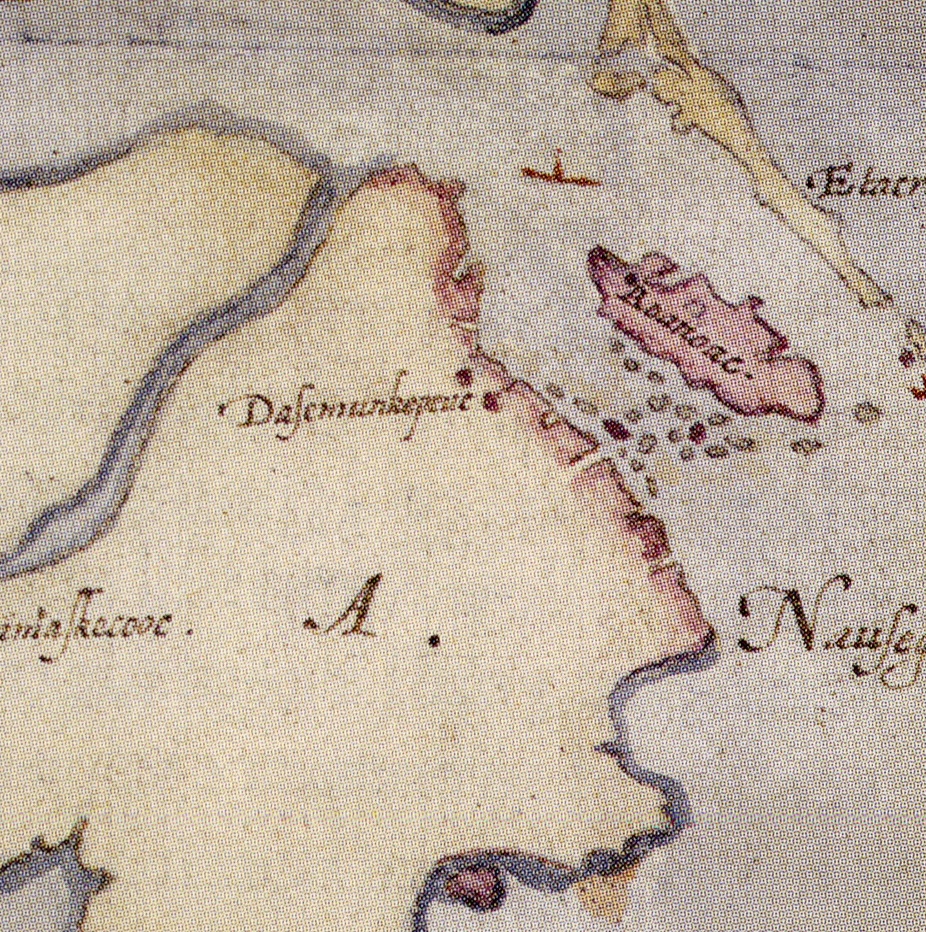 According to the Joyner Library at East Carolina University, "Wingandacoa" is
another name for the mainland of Virginia. - [UOStudStaff], part of the continent
adjoining to Florida, called
afterwards Virginia, in honour
of our maiden queen Elizabeth,
of blessed memory. As this place was first discovered by the great Sir Walter Raleigh, he obtained
letters patent to settle a plantation there, Anno Dom.
1584. But it was some years after that time before any
colony was sent there. The first plantation that proved successful, was began in 1607: at this time a colony arrived there of about an
hundred persons, among the conductors of whom was Mr. Edward Maria Winkfield, my grandfather; but
as many of these died, a further supply was sent the year after, under the care
of captain Nilson and again more in 1610, 1611, 1612.
According to the Joyner Library at East Carolina University, "Wingandacoa" is
another name for the mainland of Virginia. - [UOStudStaff], part of the continent
adjoining to Florida, called
afterwards Virginia, in honour
of our maiden queen Elizabeth,
of blessed memory. As this place was first discovered by the great Sir Walter Raleigh, he obtained
letters patent to settle a plantation there, Anno Dom.
1584. But it was some years after that time before any
colony was sent there. The first plantation that proved successful, was began in 1607: at this time a colony arrived there of about an
hundred persons, among the conductors of whom was Mr. Edward Maria Winkfield, my grandfather; but
as many of these died, a further supply was sent the year after, under the care
of captain Nilson and again more in 1610, 1611, 1612.
In 1618, the settlement was thought of consequence enough to receive a governor from England. A very large colony arrived there two years after; and now the newcomers formed themselves into corporations. The first, and principal town, was honoured with the name of king James. But the happy prospect, with which the newcomers flattered themselves, was unhappily obscured by the native Indians, who came unexpectedly upon them, and massacred three hundred of them; but this loss was soon repaired by a fresh recruit from England.---Thus much for the first peopling my native country.
The plantation which my grandfather first began, and which was the largest and most successful, devolved in a flourishing6 [page breaks after 'flou-'] state to my father, Mr. William Winkfield, of whom I must relate a very extraordinary adventure, as it gave occasion to his growing more suddenly rich than he could have done by an infant plantation, and gave birth to me; and in the consequences of it effected a more happy issue to my future adventures than could otherwise have happened.
At the time of the massacre, mentioned above, my grandfather was killed, and my father, with a few more, was taken prisoners by the Indians; and as it was a very dark night, was hurried along many miles before he could perfectly discover any objects: at length the rising sun discovered to his view, at some distance, a large river with a great number7 [page breaks after 'num-']number of boats on it; into one of these he was forced, and then bound hand and foot. In a little time all the boats were in motion, and for some hours continued to go with great rapidity. My father had now but too much time to reflect on his unpromising situation, and recalling to his mind the words of his elder brother, whom he had left in England, he thought them unhappily predictive.
He was a clergyman, and one of true piety and sound erudition. When his brother, my father, was about to quit England, with their father, to settle in this new discovered country, "My dear brother Bill," said he, "I know too well my duty to my father to remonstrate against any action of his, 8though in secret I may dread the consequence; but as I am your brother, and your elder, I may presume to give my opinion; may it not be prophetic! We have no right to invade the country of another, and I fear invaders will always meet a curse; but as your youth disenables you from viewing this expedition in that equitable light that it ought to be looked on, may your sufferings be proportionably light! for our God is just, and will weigh our actions in a just scale."
My father at this time was about twenty years old, of a remarkable fair complexion for a man, with brown hair, black eyes, and was well shaped. I 9should not give a description of his person, but that to it he owed, as it seems, his future preservation. The Indians continued their voyage above four or five hours, when they stopped on the same side of the shore on which they had embarked. As soon as they were landed, my father, with five other English captives, tied one to another, were drove, like sheep, many miles up the country, and then lodged in a cabin till next day; however, in the interim, they were plentifully supplied with dried Indian corn, dried goats flesh, and a kind of small wine, but thick, though well flavoured. They had heard that some of the Indians were men-eaterscannibals cannibalscannibals - [UOStudStaff], and thought these were such, or that they would not have fed them so plentifully but to render 10 them, as we do hogs, the better food: however, in this they were mistakenmistaken mistakenWinkfield’s father and companions are referred to twice in this passage as livestock (sheep, then hogs). Winkfield alludes to, then quickly dismisses, the possibility that the Indians are cannibals. The early rejection of a 'savage cannibal' trope in The Female American fundamentally changes Winkfield’s experience living on the island compared to Robinson Crusoe and the portrayal of the 'Indians' she encounters. - [UOStudStaff].
The next day, soon after sun-rising, my father and his five unhappy companions were brought out of their cabin; their cloathscloaths cloathsclothes - [UOStudStaff] were taken off, and they placed in a circle formed by a great number of Indians of both sexes, all naked, except a small covering of foliage about their middle, which decently covered the distinction of sexes. This local covering of several of the females was composed of beautiful flowers. The unhappy captives flood amidst this assembly a considerable time, whilst a venerable old man seemed to address them in a pathetic manner, for tears accompanied his words. He was, as my father afterwards learned, their king, 11 and of a very numerous people; and the purport of his long speech was this:
"Men, for I see you have legs, arms, and heads
as we have, look to the sunfirstfirst
The Indigenous king is the first character in the book to speak, giving him a voice not
just literally, but metaphorically. Adding further weight to his words is the power he
wields to order execution, as he threatens to do. Winkfield's choice to make this the
first line of spoken dialogue in the book lends the king power and respect, and it may
appear to foreshadow the centering of Indigenous voices as the story unfolds. At the
same time, there is an element of ableism,
as the king makes worship contingent on having limbs. - [UOStudStaff],"
here he pointed up to that luminary, "he is our god, is he yours?sun
sunAncient Israel was surrounded by peoples who worshiped solar deities.
Abrahamic religions thus condemn solar cults and other forms of animism,
viewing nature-worship as a form of idolatry. (See Deuteronomy 4.19, 17.3). The narrator equates the Indigenous
people’s religious practices with the enemies of ancient Israel, a
connection that is explicit in Chapter XI when she compares island natives
to the prophets of Baal.
Biblical passages quoted by the narrator do not
perfectly match the wording of any English translation. Here and throughout,
we have chosen to link to the King James Version, which was the official
Anglican Bible in the eighteenth century. - [UOStudStaff] He made us, he warms us, he
lights us, he makes our corn and
grass to growcreation. creationAllusion to Psalm 104.14, probably to further underscore that they mistakenly
worship the creation instead of the creator. - [UOStudStaff], we love and praise him;
did he make you? Did he send you to punish us? if he did, we will die, here are
our bows and arrows, kill us." Saying this, they all threw their bows and arrows
within the circle, between themselves and the captives. Not then knowing their
meaning, they stood silent; the king then continued his speech, "Our god is not
12 angry; the evil being who made you
has sent you into our land to kill us; we know you not, and have never offended
you; why then have you taken possesion of our lands, ate our fruits, and made
our countrymen prisoners? Had you no lands of your own? Why did you not ask? we
would have given you some. Speak." It seems they had no idea that there are more
languages than one; therefore taking their silence for a confession of guilt,
their king proceeded, "You designed to kill us, but we hurt no man who has not
first offended us; our god has given you into our hands, and you must die."
This said, the Indians took up their bows and, arrows, whilst others bound 13 my father and his five unhappy countrymen, and cut off the heads of the latter, one after another. My father expected the same fate; but just as the executioner was about to give the stroke, a maiden, who stood by the king, and whose neck, breast, and arms, were curiously adorned with jewels, diamonds, and solid pieces of gold and silver, and who was one of the king's daughters, stroked my father with a wand. This was the signal for deliverance; he was immediately unbound, and a covering, like that the Indians wore, was put round his body, and a kind of chain, formed of long grass, round his neck, of a considerable length, one end of which the princess took hold of, and gently led him along, till she came to a bower composed of the most pleasing greens, 14 delightfully variegatedvariegated variegatedconsisting of many different types of things, markings or persons - [UOStudStaff] with the most beautiful flowers; a shady defense from the sun, which then shone with uncommon heat. Beneath, was a large collection of leaves, which covered the whole surface of the ground to a great depth; here she made him sit, none present but themselves. She seated herself by him, viewed him with great attention from head to foot, felt his face and hands, but with the greatest modesty. She then arose, and going out returned presently with a cocoa nutcoconut coconutcoconut - [UOStudStaff] shell, and drinking first, presented him the remainder of a liquor of most delicious taste, of the vinousvinous vinousderivate of wine - [UOStudStaff] kind; at the same time offering him a basket of various fruitsfruitsfruitsAhuja, author of the article "Coconut - History, Uses, and Folklore," describes the best environment that coconuts thrive in, which includes "free-draining aerated soil often found on sandy beaches, a supply of fresh groundwater, humid atmosphere, and temperatures between 27°C and 30°C" (221). Given that the characters are in Virginia, a climate unsupportive of growing such fruits, Indigenous people would be unlikely to have access to the coconut during this time period. The action is also set during the first attempt of the English to make a settlement in the area. Later, tropical plant species like the coconut palm would become an important part of the colonial fruit hierarchy. To have tropical fruits imported from Caribbean islands to colonies like Virginia was considered a luxury and a way to show off wealth and status. - [UOStudStaff]. My father freely accepted of both, and found himself surprizingly refreshed. She then made a sign to him to lie 15 down, and with looks of ineffable tenderness, retired; having first laid her bow and quiver filled with arrows by him, and fastened the door of the bower with a twig.
This tender and extraordinary treatment had so far composed my father's mind, that, joined with the excessive heat of the day, and the wine together, he was so much overcome, that he insensibly fell asleep, amidst his reflections on this strange adventure. When he awoke, he found two Indian slaves fanning and defending him from the flies; which in that country are very hurtful. No sooner did they perceive he was awake, but one of his attendants withdrew, and presently returned, I cannot say with his fair, but with his black deliverer, who, smiling, gently pulled him by his chain, and led him, now willing and fearless, to a neighbouring16 [page breaks after 'neigh-'] cabin, greatly distinguished from those about it, both by its largeness and elegance.
Here he again saw the king, before whom he bowed; whilst his patroness presented the end of the chain she held to her father, who with much seeming affability returned it to his daughter. By this act my father understood he gave him as a captive to his daughter, who, immediately breaking the chain from around his neck, threw it at his feet, making a motion to him that he should set his foot upon it, which he having done, she clapt her hands, and cried out, Hala pana chi nu, language languageDespite Unca Eliza’s many references to her ability to comprehend and speak a multitude of languages of American natives, this is the only instance in Vol. 1 where the author provides a written version of a “native phrase”. However, this is most likely a fabrication. In "Realism and the Unreal in The Female American" (2011), McMurran points to the presence of "chi" and "nu", the written pronunciation of Greek letters, as evidence for this. - [UOStudStaff] "great peace be to you."
Though my father did not then understand her words, he could not but 17conceive her actions as declarative of his liberty; for actions are a kind of universal language: he therefore threw himself at her feet, when she in return offered him her hand to rise, and then led him into another cabin, completely furnished after the Indian manner. Here he found the two Indian slaves who had attended him in the bower: these the princess presented to him, and whom by the homage they paid him, he understood he was to consider as his slaves. His cloaths which had been taken from him, together with those of his less happy companions, were brought to him.
The princess continued some hours with him, and they participated of a collation of fruits, whilst the princess continually talked to him, as if he had 18understood her language. This agreeable society continued several weeks, she visiting him every day, shewingshewing shewingshowing - [UOStudStaff] him the neighbouring fountains, woods, and walks, and every thing that could amuse. At last my father began to understand her language, which redoubled all her past pleasures, when, according to the simplicity of the uncorrupted IndiansprimitivismprimitivismThis sentence reflects the concept of primitivism: “A preference for the supposedly free and contented existence found in a ‘primitive’ way of life as opposed to the artificialities of urban civilization” ( Oxford Reference). Primitivism celebrated the perceived simplicity and purity of Indigenous cultures while upholding colonists' belief that their culture was much more advanced than others. Seeing Indigenous people as primitive also agreed with the religious movement of the Puritans, who believed they could reverse the corruption of the English church by Catholic influences: “Sermons emphasize renewal, regeneration, and the recovery of a lost, primitive, edenic purity” ( Hutchins, Inventing Eden, 180). - [UOStudStaff], she declared that love for him, which he had long before understood by her actions.
Though a complexion so different, as that of the princess from an European, cannot but at first disgust, yet by degrees my father grew insensible to the difference, and in other respects her person was not inferior to that of the greatest European beauty; but what 19was more, her understanding was uncommonly great, pleasantly lively, and wonderfully comprehensive, even of subjects unknown to her, till informed of them by my father, who took extraordinary pains to instruct her; for now he loved in his turn: and sure he must have had a heart strangely insensible if such great kindness, joined with such perfections, had not had that effect.
They had now lived together six months, and understood each other tolerably, when Unca, for that was the princess's name, proposed their marriage. As she was a Pagan, though my father sincerely loved her, and wished for that union, he could not help shewing some uneasiness at the proposal20 [page breaks after 'pro-']. This the observant princess instantly saw. "What," cried she, "does not my Winka," so she called him, "love me?" My father caught her in his arms; "Yes, my dear Unca, cried he, I do, but my God will be angry if I marry you, unless you will worship him as I dopagan pagan Framed by the narrator calling her mother a “pagan,” this may be an allusion to 2 Corinthians 6.14 where first-century Christians are advised to marry other Christians instead of Greek pagans. - [UOStudStaff]." This gave birth to a long conversation, in which, though my father was a very sensible man, and had enjoyed a good education, being very young, he found it not a little difficult to teach another what he yet firmly believed himself; but as we readily believe those whom we love, he was more successful than he expected, and in a little time the princess became convinced of her errors, and her good understanding helped to forward her conversion.
21Thus love and religion agreeably divided their time; and so happy was my father with his princess, that he almost forgot his former situation, and begun to look upon the country he was in as his own, nor indeed did he ever expect to see any other again; and he now loved Unca as much as she did him, and was therefore willing to make her and her country his for ever; but an unexpected event soon gave a different turn to their affirs.
22 CHAP. II. The king's eldest daughter conceives a passion for him, which produces disagreeable consequences, from which he is delivered by Unca.MY father had never seen any other of the king's daughters since the day of his deliverance from death, but his dear Unca, till one day sitting in a wood to shelter himself from the excessive heat of the sun, the king's eldest daughter approached him. As soon as my father saw her, supposing she was one of the king's daughters, he arose to salute her with the profoundest respect. "Winca," said she, "I have long sought for such 23 an opportunity as this; let us therefore retire further into this wood, that we may converse with more freedom." My father, unsuspecting the occasion of this visit, obeyed, when the princess thus began: "Winca, it is our custom to be silent, or to speak what we think; we are of opinion that nature has given us the same right to declare our love as it has to your sex; know, Winca, then, that I have seen you, and that the oftener I have seen you the more I love you; I know my sister loves you, but I am my father's eldest daughter, and as he has no son, whoever marries me will be king after his death."
My father was so much surprized at this unexpected declaration, that he was not able immediately to reply; but as 24 soon as he was a little recovered, he endeavoured to excuse himself as well as he could, by pleading his love and prior engagement to her sister; but it was in vain: all he could say tended but to provoke her anger. At last, in a rage, not to be described, she cried, "If you will not love me, you shall die; my sister shall never enjoy an happiness that I aspire to; nor shall my vengeance be long delayed; this instant shall put a period to your life." However menacing these words were, my father was not greatly alarmed, as they were uttered by an unarmed woman, and which he conceived to be only the effect of passion, and unluckily smiled. "What! cried she, do you scorn my love, deride my power? know wretch, Alluca can despise love and death at her will."
25Saying this, she clapt her hands together, and immediately six male Indians appeared from behind the trees, where they had stood at some distance unperceived by him. "Seize that white infidel," cried she; and in an instant all power of defence or flight was equally taken from him. She then took a pomegranate-shell out of a kind of pocket that she wore by her side, and going up to a poisonous herb, squeezed the juice of it into it; then advancing to my father, "Here," said she, "be mine, or drink this; I offer you love and death; make your choice." "I can love none but Unca," replied he.
She then ordered four of the slaves to hold my father whilst the two others were about to force the poisonous 26 draught into his mouth. "Hold," cried my father, "if I must die, I will drink it myself, I cannot do too much for Unca; she gave me life, and for her sake I will lose it--I drink Unca's health; her love shall make it sweet," He drank it, and I suppose the ministers of his intended death soon left him; for not long after he awoke, as it were from sleep, and found himself in the arms of his dear Unca, when in a languid tone he uttered, "What! do I meet my dear Unca so soon in another world? this was worth dying for." He then sunk again, as into a sleep.
It seems the princess Unca, having missed my father, arrived just after her sister and the slaves had retired, and saw him sink upon the ground. As she 27 was no stranger to her sister's love for my father, her quick apprehension soon suggested what had happened; and as the Indians are remarkable for their knowledge of poisons, and no less so for their skill in antidotesscience scienceIn the seventeenth century, science was not the well-established field we know it as today, and much work in the field more closely resembled philosophy. The reference here to Indigenous knowledges about the poisonous and antidotary plants could be a recognition to the validity of this information in respect to European modes of natural philosophy. While science is not yet formalized, the natural knowledges described by the narrator comprise the types of observations that began to solidify an American scientific tradition. (Reference: Alfred North Whitehead, Science and the Modern World) - [UOStudStaff], she instantly sought, and as quickly found, an herb whose salutarysalutary salutaryhaving a good effect on somebody/something, though often seeming unpleasant - [UOStudStaff] efficacy she was well acquainted with. She immediately squeezed the juice of it into his mouth, which soon reached his stomach, and made him eject the poison; but still his eyes were closed; a second dose revived him, and opening his eyes he uttered those words to the princess, just now related. "Heaven be praised heaven-be-praisedheaven-be-praisedUnca saves William Winkfield from fatal poisoning using natural antidotes, yet she praises Heaven for his survival. The characters use nature here in a practical way but involve religion in a moral/philosophical sense. In “Curiosity and the Occult,” Barbara M. Benedict describes the complex relationship between science and religion in the context of the Royal Society, which was founded in 1660 with the goal of learning more about the natural world through scientific experimentation. Although scientists championed this experimentation as a way to better understand God’s power, other members of society “regarded it suspiciously as a usurpation of God’s role” (351), attitudes that continued into the eighteenth century as well (360). Though published in 1767, The Female Americanis set prior to the founding of the Royal Society and may reflect a fantasy of returning to a simpler time of connection between religion and nature. - [UOStudStaff]," said the princess, " my dear Winka, that I came time enough to save a life dearer to me than my own; suck more of this juice, and you will be entirely recovered."28 [page breaks after 're-'] He did so, and was soon able to get up and walk; but with a slow tottering pace, like a man whose brain has been hurt by the fumes of wine. The princess perceived his condition, and as they passed along gathered some flowers, the smell of which quickly dispelled the fumes, and fortified his brain so powerfully, that he was soon perfectly recovered, and his strength and understanding both entirely restored. Having returned the princess ten thousand thanks for thus giving him life a second time, they walked lowly homewards.
During their short walk, my father related to the princess Unca all that had passed between him and the princess Alluca, her sister. When he had 29 finished his relation, the princess replied, "I will take effectual care for your security to-night, where my sister will not be able to discover you, and to-morrow I will consult my father what further measures we shall pursue." She then led him through some bye-paths of the wood, to the hut of an honest Indian, in whom she could confide; here she left him, with a caution not to stir out till her return next day.
Early the next morning the princess Unca, and her father, came to the hut where his daughter had concealed my father. Here a consultation was begun. The king said, "He could no more blame his eldest daughter than he did his younger, for loving my father; that Alluca had conceived an affection for 30 him at the same time that Unca had, and at the instant that she touched him with her wand, Alluca was about to have done the same; that he highly condemned her intention to poison him; yet as she was tenderly beloved by him, as well as Unca, and his heir, he hoped my father would not desire him to inflict any punishment on her, since the loss of her lover would be a sufficient one." My father frankly declared that his regard for him, and his love for Unca, were sufficient motives to induce him to forgive her. The king then proposed that, to prevent all future danger, my father and the princess should be immediately married; and that they should both set out instantly for the place of my father's abode, and that, on his account, he would enter into a treaty 31 of friendship with his countrymen; and added, that he would give him a portion worthy of a princess.
As my father considered marriage as a civil, as well as a religious, ceremonymarriage marriage The author’s discourse on marriage may be a response to Daniel Defoe’s Religious Courtship (1722). Puritan dissention toward liturgical practices meant that matrimonial ceremonies were modest, private engagements in the presence of a minister. Although its ritual was informal, marriage was regarded as the cornerstone of civic development through family building. This scene could perhaps be read as pushing Puritan logic ad absurdum: if a minister is merely witness to the marital vows, any kind of witness would do. Anglican matrimony, by contrast, would be facilitated publicly by a priest according to the ceremony prescribed in The Book of Common Prayer. This also might be read as the set-up to a joke mocking Puritans, completed in a few paragraphs. - [UOStudStaff], and found, by their discourse, that their matrimonial ceremonies had nothing in them contrary to his own religion, he very readily consented. An Indian priest was sent for, and the ceremony was soon performed. A proper cabin, or hut, was immediately prepared for the reception of the new-married couple, and they were securely guarded, to prevent further mischief, till such time as the necessary preparations were made for my father's return, with his bride, to his own plantation. In a few days, every thing was ready for their departure.32 [page breaks after 'de-'] They took an affectionate leave of the old king, and got into a canoe provided for them, attended by several others, in which were several Indian maidens to attend Unca, and men slaves for my father, and a considerable baggage, the contents of which my father was then unacquainted with. Taking the advantage of wind and tide, they in a few hours arrived, without any accident, within a small distance of my father's plantation, to which he was heartily welcomed by his neighbours, who never expected to see him again. They were greatly surprised at his extraordinary adventure, and very glad that it proved the means of a friendship between them and the Indians.
33My father being again settled with his dear Unca, in his own habitation, they were now married, according to the rights of the church of Englandceremony ceremonyHere the joke, “My father considered marriage as a civil, as well as a religious, ceremony” comes full circle. The first matrimonial service in the presence of Unca’s kin was “civil.” The second matrimonial service—the legitimate one for the Church of England—is the “religious” one. The joke is that if civil and religious categories of marriage are distinct, two ceremonies might be appropriate. - [UOStudStaff], by an English chaplain belonging to one of the men of war that then lay in the harbour. Now they began to examine tha017e presents that the king had made them, and found them to be very valuable, consisting of a great quantity of gold dust and precious stones, and many curiosities peculiar to the Indianswealth wealthThe references herein offer an interesting muddling of natural and colonial forms of wealth that the author uses to describe her legacy from the Americas as well as a participation in several now-centuries old tropes describing indigenous Americans. The references to Eliza’s mother wearing diamonds and the “gold dust and precious stones” are not consistent with known mineral wealth that could have been acquired in Virginia at this time. The author could be engaging with literary propaganda about forms of wealth associated with the Indigenous stemming as far back as 1605. See Beeman’s "Labor Forces and Race Relations: A Comparative View of the Colonization of Brazil and Virginia" (1971). - [UOStudStaff]. However, my father thought it prudent to conceal the greater part of his riches from the knowledge of his neighbours, not knowing how strong a temptation a display of them might prove, as many of the colony were not only persons of desperate fortunes, but most of them 34 such whose crimes had rendered them obnoxious in their native country.
As my father had persuaded his wife to conform to the European dress, he provided for her as well as he could, till he had an opportunity of procuring cloaths more suitable to her dignity. He took every opportunity that offered to send part of his riches over to England privately, to be there disposed of, and such goods in return to be sent as he wanted; for it seems he had no inclination to leave his habitation, and the thoughts of it were highly disgusting to the princess: but had his own desires been ever so much for a removal, he would have sacrificed them to those of the princess, whom he passionately loved.
35My father built him a more elegant house, which was suitably furnished, and his plantation by far the best and largest of any about him. This was a work of time. In the interim, my mother, proving with child from the night of their marriage, was safely delivered of me. I was, a month after, baptized by the name of Unca Eliza. The king, my grand-father, frequently sent a messenger to inquire after his children, who always attended with some present of fruit, flowers, or something more valuable. Thus happily did my father and mother live together, till I was about six years old; during which time they never heard the least news about their sister Alluca: but at this period an Indian brought 36 the news of the old king's death, and that Alluca, still single, was received as queen.
A little after, as my father and mother were sitting in the garden, and I playing at their feet, a slave informed them that two Indians were come from the princess Alluca. As soon as they came into the garden my father was surprised to see that they had each of them a great coat on, contrary to the Indian custom: he had scarce made this reflection before one of them, being come close up to him, pulled a short dagger out of his sleeve, and made a push at him, which most probably would have proved mortal, had not he, by a sudden motion, avoided it. At the same instant my mother gave a loud 37 shriek, when my father, turning his eyes, saw her falling with a dagger in her breast, for the other assassin had been too successful in his murderous attempt. My father caught her in his arms, and received her dying blood and breath together. The slaves, that my mother's shrieks and my cries had brought to us, presently seized the two murderers. One of them, who dearly loved my mother, drew the dagger out of her breast, and plunged it into the heart of him who had assassinated my mother, and was going to have done the same by the other, when my father cried out, as loud as he was able, " Take him alive." He was instantly bound hand and foot, and carried to a place of security.
38What is human felicity? How often our greatest pleasures procure us the greatest misery! This moment behold a happy couple mutually endearing themselves to each other, whilst the infant offspring of their loves beholds their joys, partakes of, and adds to them. The next--but let the scene sink into darkness! 'tis too affecting for a daughter's pen to draw.
39 CHAP. III. Death of the Indian queen; Unca and her father embark for England; provides for his brother; a description of the person and dress of the female American; her father returns to Virginia; for which she afterwards sails, where her father dies.AS soon as my mother was buried, and my father a little composed, he called for the surviving assassin, and from him learnt that the princess Alluca had compelled him and his companion to be the instruments of her revenge on them, for his having slighted her love loveloveWinkfield characterizes Alluca as villainous and violent because Unca Eliza’s father "slighted her love." Winkfield writes a powerful woman of color but with a stereotypical motive that has been exhausted in the media: romantic or sexual jealousy. This stereotype can be related to the common trope found in literature and film of the "Jezebel," defined as a sexually deviant woman of color with little characterization other than love or lust. Harmful stereotypes of women of color in media such as The Female American can lead to negative perceptions in the real world. Additionally, this negative characterization of Alluca lends additional support to the growing scholarly consensus that Winkfield was not a woman of color. - [UOStudStaff]. My father consulted 40 with the rest of the planters, whether they should deliver the assassin up to justice, or let him go home. Considering the infant state of the colony, and the temper of the reigning princess, they thought it prudent to avoid every thing that might occasion a quarrel with the Indiansquarrel quarrelThe unwillingness to disrupt the tenuous relations between the indigenous peoples of North America and Europeans may also be a reference to a series of conflicts occurring in the ten years before the original publication of the novel leading into the Seven Years War. Confederations of indigenous peoples fought for and supported on both sides. - [UOStudStaff], and therefore agreed to give their prisoner his liberty. At his departure, my father charged the slave to tell his queen, that her God, the sun, had seen the murder she had commanded, and would revenge it.
It was not long after before my aunt the queen died of grief. A little before her death, she ordered, that after her decease her heart should be sent to my father with this message: "Receive a heart that, whilst it lived, 41 loved you, and had you received it, it had never been wicked. Forgive my revenge, and let my heart be buried with you when you are dead; but may the sun give you many days!" This was accompanied with a very great present of gold dust, and her bow and arrows, of exquisite workmanship, for me. The bow, and some of the arrows, I still have.
This renewed my father's grief, which had indeed but little subsided; therefore to divert his sorrows, and give me a better education, he determined to return to England. Every thing was accordingly prepared. I was about seven years old when we embarked, attended by several male and female slaves. We had a tolerable passage 42 to England, and found my father's brother in good health. He was, as I before observed, a clergyman, and had a living in Surry, where he constantly resided, had a wife, one son, and three daughters, the youngest of them elder than me. He was exceedingly glad to see his brother, and received me as if I had been a child of his own. He was an excellent divine, of great piety, and of uncommon learning, but ill provided for in the church. As my father was very rich, he gave him five hundred pounds for each of his children, and soon after bought the next presentation to a living of three hundred a year. The incumbent dying soon after, he presented my uncle to it, with a thousand pounds to pay the expence of removing, as he 43 said when he gave it. This occasioned our removal to a pleasant village near Windsor.
If I was kindly entertained by my uncle, I was little less caressed by the neighbours. My tawny complexioncomplexioncomplexionThe narrator claims to be of Indigenous descent, but Emelia Abbé discusses the ways in which this novel actually plays on the exploitation of Indigenous peoples through the lens of the colonial British perspective. - [UOStudStaff], and the oddity of my dress, attracted every one's attention, for my mother used to dress me in a kind of mixed habit, neither perfectly in the Indian, nor yet in the European tastehabit habit The “mixed habit” of Unca Eliza’s dress may reflect her identity as a biracial woman in eighteenth-century England. Unca Eliza recognizes herself as “neither perfectly” European nor Indigenous. She is brought up in English society but is othered by the community around her for her Indigenous identity. In “Models of Morality,” Victoria Barnett-Wood connects The Female Americanto the Bildungsroman genre. Similar to modern “coming-of-age” stories, the Bildungsroman centers around the growth of a character and their understanding of the world. In this context, Unca Eliza’s attention to her otherness can be viewed as an early development in her understanding and critique of the imperial world. - [UOStudStaff], either of fine white linen, or a rich silk. I never wore a cap; but my lank black hair was adorned with diamonds and flowers. In the winter I wore a kind of loose mantle or cloak, which I used occasionally to wear on one shoulder, or to cast it behind me in folds, tied in the middle with a ribbandribband ribbandribbon - [UOStudStaff], which 44 gave it a pleasing kind of romantic air. My arms were also adorned with strings of diamonds, and one of the same kind surrounded my waist. I frequently diverted myself with wearing the bow and arrow the queen my aunt left me, and was so dexterous a shooter, that, when very young, I could shoot a bird on the wing.
My uncommon complexion, singular dress, and the grand manner in which I appeared, always attended by two female and two male slaves, could not fail of making me much taken notice of. I was accordingly invited by all the neighbouring gentry, who treated me in a degree little inferior to that of a princess, as I was always called; and indeed I might have been a queen, 45 if my father had pleased, for on the death of my aunt, the Indians made a formal tender of the crown to me; but I declined it.
My uncle, who gave his daughters the same learned education with his son, desired I might make one of their society. This was very agreeable to my father, and no less so to me, who was very fond of my cousins, and willing to do what they did. I could already speak the Indian language as well as English, or rather with more fluency.
In this manner we lived near a year, happy I should say all of us, but my father, who, as he had no business to do, grew more melancholy: he therefore resolved to revisit the country 46 where he had left the remains of his princess. It was in vain to intreat his stay, my uncle and aunt's remonstrancesremonstrances remonstrancesprotests or complaints - [UOStudStaff] were lost, and only served to confirm his resolution of returning to his plantation. However, he thought proper to leave me with my uncle, to complete my education. Though I was unwilling to part with my father, I was as much so to leave my cousins, and therefore staid behind pretty contentedly. My father, before his departure, made great preparations for the improvement of his plantation, rather for his amusement, than from a desire of gain.
I continued here till I was eighteen years of age; during which time I made a great progress in the Greek 47 and Latin languages, and other polite literature; whilst my good aunt took care of the female part of my educationeducationeducationAt this time, it was standard for women to receive a different level of education from their male counterparts. Whereas men belonged in the public sphere, women's lives were centered on home life and the care and early education of children. In his influential work Émile, Jean-Jacques Rousseau (1712-1778) argues that any education of women beyond housework should aim to “make them more effective and stimulating companions for their husbands,” and only that (see An Oxford Companion to the Romantic Age: Education).Michèle Cohen argues that the limiting of the female curriculum was “not to meet the needs of femininity so much as to produce femininity” (322). A proto-feminist critic of this system, Mary Astell (1666-1731), protested as early as 1694 that women were being bred deliberately in “ignorance and vanity” (A Serious Proposal to the Ladies, 31). The emphasis here on the female education and its difference from that of men gives interesting insight into the role of women during this time period. - [UOStudStaff] with equal success. Tawny as I was, with my lank black hair, I yet had my admirers, or such they pretended to be; though perhaps my fortune tempted them more than my person, at least I thought so, and accordingly diverted myself at their expence; for none touched my heart.
Young as I was, I often thought on my dear mother, and honoured her memory with many tears. And as I found it was the custom in England to erect monuments for persons who often were interred elsewhere, I desired my uncle to erect a superb mausoleum in his church-yard, sacred to 48 the memory of my dear mother. It is a lofty building, supported by Indians as big as life, ornamented with coronets, and other regalia, suitable to her dignity. The form is triangular, and on one side is cut an inscription in the Indian language, containing a short account of her life and death. This I drew up and translated into Latin and English, which fills up the two other sides; on the top is an urn, on which an Indian leans, and looks on it in a mournful posture. The whole is surrounded with iron pallisadoespalisades palisadesPalisades are fences made of strong wooden or metal posts that are pointed at the top, typically used in the past to protect a building. - [UOStudStaff]. This I often visited, and here I dropt many a tear.
My father, by this time, begun to think my absence long, and desired my return, which was equally agreeable49 [page breaks after 'agree-'] to me; for though I was pleased with my situation, and the affectionate treatment of my relations, yet I secretly longed to see my native country, of which I retained a perfect idea, but more so to see my father. Every thing being prepared for my voyage, I, with my four slaves, embarked on board a ship for my return home, being then in my eighteenth year. However, my uncle insisted that his son John Winkfield, my cousin, should go with me to take care of me. His regard for me, and desire to see a strange country, made him very glad to accept of the proposal.
During our voyage, my cousin neglected no opportunity to renew his addresses to me, which he had before 50 begun in England. I gravely told him I would never marry any man who could not use a bow and arrow as well as I could ; but as he still continued his suit, I always laughed at him, and answered in the Indian language, of which he was entirely ignorant; and so by degrees wearied him into silence on that head.
I shall not trouble my readers with any particulars of our voyage, and shall only say, that after a tedious and indifferent one, I once more found myself in the embraces of a tender father. The fight of me revived in his memory the remembrance of my dear mother, which drew from him a flood of tears, with which I sincerely joined mine. As soon as these subsided,51 [page breaks after 'sub-'] his transports of joy were as great to see me returned in safety, and to much improved. He received my cousin with great affecion, and, on his return home, gave him a bill on England for one thousand pound sterling; which he might well do, for he was extremely rich. I on my part desired some considerable presents to be sent to my uncle and aunt, and to my cousins, with some of less value to my female acquaintance; together with some natural curiosities of my own country, as birds, shells, &cetcetcet cetera - [UOStudStaff].
There was one circumstance attending my education, whilst under my uncle's tuition, that, in justice to his memory, I ought not to omit, the religious part; and in this he was as 52 methodical and exact as though I had been to be a divine; nor did he inculcateinculcate inculcateto cause somebody to learn and remember ideas, moral principles, etc., especially by repeating them often - [UOStudStaff] religion as a mere science; but in such a warm and affecting manner, that whilst his lectures convinced the understanding, they converted the heart, and made me love and know religion at the same time. The happy effectts of his pious instructions I have experienced throughout my life; and indeed in one part of it they were not only of the greatest comfort to me, but of the highest use; as will appear hereafter.
But to return to my father: neither his riches, business, nor even my company, whom he most affectionately loved, could cure him of that melancholy under which he laboured from the decease of my mother. This, at 53 length, determined him once more to visit England, that new objects might divert his mind. With this view he soon found means to remove his great wealth to England, and prepared to dispose of his plantation; but by the time he had almost done the former, and had agreed to let his plantation, he grew so bad as to be incapable of a removal, and in a few days went to that happiness in another world, which he could not enjoy in this.
54 CHAP. IV. Unca buys a sloop, and embarks for England; the captain proposes a match between her and his son; her slaves and attendants massacred, and herself left on an uninhabited island.HAVING paid my father every funeral honour I could, and having nothing now to attach me to this country, and the bulk of my great fortune lying in England, I determined to embark for that kingdom, and to conclude my days in my uncle's family. But Solomon saith, "The heart of man deviseth his way, but the Lord directeth his going:"Proverbs Proverbs Proverbs 16:9 - [UOStudStaff] and so I found it. I was now in my four and twentieth55 [page breaks after 'twen-'] year. At this time an opportunity offered that favoured my intended voyage. There was a sloop in the harbour, a good sailing vessel, and large enough to carry me, my attendants, and effects. I chose an old captain, who had lately been ship-wrecked, and lost his all, and who wanted to get over to his son in England, to undertake the care of us, and as, a gratuity for his trouble, promised, if we arrived safe in England, to give him the ship, that he might once more be able to follow his occupation.
This proposal he accepted with great joy, and having got together a sufficient number of hands to navigate our vessel, I prepared to embark. Notwithstanding what my father had before sent to 56 England, I had yet a great many valuable goods to take with me, to the amount of near ten thousand pounds. These being safely lodged on board, I followed myself, attended by my two favourite female slaves, who had sailed with me before, and six men slaves, who begged to attend me; though I had offered them their liberty, if they chose to stay behind.
We sailed with the first fair wind, and had not been on our voyage above a daysailedsailedThese details situate the island on which Unca is eventually stranded in the Pamlico Sound region. During the seventeenth and eighteenth centuries, the average commercial vessel would be able to reach speeds of five miles per hour in fair winds. Given that the ship had been sailing for less than a day, the maximum range they could have reached would be 120 miles. The most popular Virginian port during this time period was located in Norfolk, and a return journey back to England would send the ship in a backwards "J" pattern starting by going south until roughly the oceanic region off the coast of South Carolina. - [UOStudStaff] before the captain, willing to lose no time, began to talk to me very freely about marriage. He did not indeed sollicit me for himself; but he made strong courtship for his son. I at first answered him with good humour, and told him I hoped he would let me 57 see his son before I determined to have him; and that if he could shoot with my bow and arrows, which then hung by me in the cabin, as well as I could, I would have him, were he ugly or handsome. But I soon found that he was too much in earnest, and I too much in his powergender genderDespite Unca Eliza's enormous wealth, extensive education, and physical ability with weapons, she still suffers the power disadvantages associated with her gender at this time. - [UOStudStaff]: for in a peremptory manner he told me, that if I would not immediately sign a bond to marry his son, on our arrival in England, or forfeit thirty thousand pounds, I should neither see England, nor return to my plantation. I wondered he did not propose himself, but I found afterwards that he was a married man, as he informed me. I did not know law enough then, or else I might have given the bond, and so have avoided the distress that my refusal occasioned, as in 58 equity I might have been released from the penalty; and the readier, as my two female slaves were witnesses to all he said. But as I persisted in my refusal, he grew incensed, and having I suppose gained the ship's crew by promises to assist him, at last told me he was come to a resolution, that as I persisted in my refusal, he was now very opportunely coming to an uninhabited island, where he would leave me to be a prey to wild beasts; and that as I had given him my ship, he would make bold to give himself the cargo. Two of my men slaves happened to come behind him just as he said these words, when one of them caught him in his arms, and the other opening the cabin-window, threw him into the sea. I know not. whether I was sorry for this, 59 at that instant; but I soon had occasion to be heartily so, for the consequence was fatal to them. As our ship, at this time made very little way, and the captain could swim, he presently got up to the ship, and being seen by some of the crew, who knew not how he got overboard, a rope was thrown out, and he quickly drawn up. In the mean time, one of the two men slaves went, and brought the other four into my cabin. Soon after the captain, and several of his men, armed with piltols and cutlasses, came into the cabin. The captain advancing up to him who threw him overboard, shot him dead, and now a terrible skirmish began. I indeed got no hurt, which was a wonder, for though no blow was aimed at me the close of the place exposed me to 60 imminent danger; and the two female slaves got several wounds. My men slaves were unarmed, and therefore soon overcome, three were killed outright, and the others, I suppose, mortally wounded. The poor faithful fellow who opened the cabin-window was hung up alive at the yard-arm, bleeding as he was, there to perish by hunger, thirst, and heat. This touched me more than my own misfortune, I offered the captain a thousand pounds to release him, and to let him be cured of his wounds. "Madam," returned the villain, "where are your thousand pounds? all you have on board is already in my possession."-Thus could I only pity, but not relieve.
61I now expected my own destiny; and it soon arrived. The captain, who had left the cabin, to dispose of his prisoners, returned, and once more asked me if I would sign the bond? I answered, no; and at the same time desired that my two maids might have some care taken of their wounds. He replied, he had no surgeon, and if they did not grow well soon he should throw them overboard; but if they recovered, he should sell them the first opportunity: he then left the cabin. A few hours afterwards we came to an uninhabited island, where he put me on shore, for nothing that I said could soften his heart. I begged hard for both, or one, of my maids; but all the favour I could obtain, was my bow and quiver of arrows: 62 page breaks after 'ar-' indeed he gave me a box of clothes; but for these I did not thank him, as I never expected to use them, thinking myself consignedconsign consignconsign: to make over as a possession, to deliver formally or commit, to a state, fate, etc. - [UOStudStaff] to some wild beast, whose prey I should become.
63 CHAP. V. She offers up praise to God; takes refuge in an hermitagehermitage hermitagea solitary or lonely habitation, possibly the habitation of a hermit. - [UOStudStaff], where she finds a manuscript left by the deceased inhabitant, in which are intsructions how to subsist on the island; reflections on her situation.THUS disconsolate, and alone, I sat on the sea-shore. My grief was too great for my spirits to bear; I sunk in a swoonswoon swoonBoth The Female American and Daniel Defoe’s Robinson Crusoe (1719) mention their main characters falling into a swoon or “fainting-fit” (Oxford English Dictionary). Crusoe faints as he braves a tremendous storm at sea, while Unca Eliza faints in instances like being stranded on an island, getting overstimulated, and thinking she sees a ghost. Crusoe faints in response to a proportionally more severe situation, which can be read as a commentary from Winkfield on the expected submissive roles of women in eighteenth-century life. Winkfield’s use of swoon contrasts the major themes of female authority and gender performance seen throughout the novel. - [UOStudStaff] on the ground: how long I lay in this senseless state I know not, or whether I might ever have recovered, had not a wave, brought on by the rising tide, and which broke over me, awaked me. I arose, hardly sensible where I was, or what I was doing, and ran to a rising ground, and here I 64 once again beheld my deplorable condition. A few minutes recollection brought me to a sense of my duty: for reflecting within my mind, that as the wicked captain could very easily have killed, or drowned me, it was a wonder that he should give me the least chance for life; that I ought therefore to thank God for this escape, and to commit myself to his providenceprovidence providencedivine direction, control, or guidance - [UOStudStaff]. Indeed, in the hour of affliction we are ready enough to pray to God for help; but are so taken up with a sense of our miseries, that we forget that we have any mercy to be thankful for. We should always sing a Te Deum before we sigh a litanyte-deum te-deumShort for Te Deum Laudamus, a traditional hymn of praise meaning, "We Praise You, O God." A litany is a prayer of supplication, or a request. - [UOStudStaff]; for our sighs will sink before they reach heaven, unless raised thither by the wind of praise.
65Filled with these ideas I fell on my knees, and thanked God, who had delivered me out of the hand of the wicked, and that now I was in his only. On this occasion, these words of David came into my mind; "Let me now fall into the hand of the Lord, for his mercies are great, and let me not fall into the hands of man."allusions allusionsA reference to both 2 Samuel 24.14 and 1 Chronicles 21.13 where David, the king of Israel, decides to take a census and build a temple. Winkfield’s comparison between her situation and that of King David’s may perform a sort of epic simile to mark the establishment of her religious authority on the island. - [UOStudStaff]At the close of my prayers, I solemnly committed myself into the hands of God. I now arose from my knees with a serenity by no means to have been expected. During this composure of mind, I advanced to the highest ground I could see, in hopes I might discover some place of safety, not considering the improbability of such a discovery. Though the sun shone very hot, which soon dried my wet clothes, yet I saw it 66declining apaceapace apaceat a considerable or good pace - [UOStudStaff]; I therefore kept looking about with eager expectation, when at last I saw, or thought I did, the ruins of a building. I advanced and saw it more distinctly: though it promised what I wished for, an asylumasylum asyluma place of refuge, shelter, or retreat - [UOStudStaff], yet I dreaded to go nearer. I looked, I stopped, I prayed, and then I moved again; thus strangely divided between hope and fear, I still kept going forward, and in an inexpressible agitation got close up to it, almost insensibly.
I was so near now as to perceive a door half open: I listened and heard no noise. Fearful to retire, or to enter, I stood trembling a long time. How long I might have remained in this condition I know not, had not a sudden noise behind me, like the hallooing of 67 a human voice, forced me precipitatelyprecipitately precipitatelyhastily, rashly - [UOStudStaff] to rush in, fearless of the danger within, that I might avoid that which threatened me from without. This double sense of danger deprived me of my senses, and I sunk down in a swoonswoon. As I recovered by degrees, I saw all within the apartment before I was quite sensible enough to be afraid of my situation, and seeing nothing to alarm, I grew quite calm, and observing a kind of great chair, formed of several large and less stones, and the seat covered with a great heap of leaves, I sat down, and rested my weary limbs and agitated spirits.
The sun still shone pretty bright through the holes in the wall, which was of stone, and perfectly discovered 68 every thing within. My fright had deprived me of the thought to shut the door: however, nothing came to hurt or alarm me. Before me was an heap of stones, on which laid a greater, which served as a table, and near enough to lean on. In a large fish-shell that lay on the table I perceived water, which I boldly ventured to drink of, and found myself instantly refreshed. I lifted upmy heart to heaven, with thanks, and bespokebespoke bespokerequested, asked for - [UOStudStaff] its further protection. On my right hand I saw a kind of couch formed, like the table, of a heap of stones, and the flat part, or surface, covered with moss and leaves. I now concluded that this was the habitation of some human being: but this gave me no alarm; for as I had read of hermitshermit hermitpeople who choose to live a solitary life for religious reasons - [UOStudStaff], who frequently retire from public life 69 to enjoy their devotions in private, I imagined, from what I saw, that this must be the habitation of such a one, from whom I did not doubt but I should meet with protection and spiritual consolation.
This reflection restored me to such tranquility of mind, that I rested myself with the pleasing expectation of his return, which, considering it was near night, I thought could not be long. As I had now fresh cause to be thankful, I was so; and found I had spirits enough to sing a short Latin hymn of praise. But still no hermit appeared, and the sun was now set; but the moon was risen, and shone with so much brightness into the cell, that I scarcely missed the greater luminary. As I thus sat waiting,70 [page breaks after 'wait-'] I observed a book lying on the table, which I had not before perceived, which I supposed to be a book of devotion; but on opening it, found it to be a manuscript, in the first leaf of which were these words.
"If this book should ever fall into the hands of any person, it is to inform him that I lived on this uninhabited island forty years; but now, finding the symptoms of death upon me, I am going to retire to another stone room, where I shall lay me down, and, if God pleases, rest for ever from all my troubles."
As this was dated, as to the month and year, tho' without day of the month, I concluded he must be dead, as it was a month ago, and therefore gave over 71 all expectation of seeing the hermit, with the thought of whose presence I had pleased myself. A little lower, in the same page, was added, "If thou shouldest be obligedobliged obligedunder a necessity - [UOStudStaff] to stay here any time, there are no wild beasts or noxiousnoxious noxiouspoisonous or harmful - [UOStudStaff] animals to injure thee; nor savages, except once a year, on one day, see page of this book, 397. How you may subsist, you may learn from the history of my life."
I immediately turned to the page referred to, and found that it was yet two months to the time of the Indians coming on this island. I now thought I might sleep securely; I therefore shut the door, and fastened it with a heavy stone that lay there, I supposed for that use. Coming back from the door I spied 72 an heap of Indian rootsroots rootsThe "Indian roots" referenced here are almost certainly cassava (also called yucca or manioc), a large tuber that was originally domesticated in what is today Brazil, and remains a global staple today. Cassava must be heavily processed to get rid of the deadly amounts of prussic acid the raw root contains. Processing techniques include fermenting, roasting, boiling, and more. Cassava has long been made into flour and bread. See Mark H. Zanger, "Cassava," in The Oxford Encyclopedia of Food and Drink in America. - [UOStudStaff], which I presently knew to be such, and which serve instead of bread. As some of them were yet very good, and had been roasted, being very hungry, I ate heartily, and drank more of the water. As I walked about the room I saw in a nook another shell, which I imagined to be filled with the juice of wild grapes, from the look and taste, and therefore, as I was faint, drank some of it, but with caution, as I found it was grown strong with standing. As the moon still shone very bright, I took out my Greek Testament, which I always carried in my pocket, it being my custom to read a chapter in it morning and night. I opened accidentally in the epistleepistle epistleA letter, usually of public or formal nature. Many books in the New Testament are epistles. - [UOStudStaff] to the Hebrews, and the first words that offered to my view were 73 these: chap. xiii. 5. Οὐ μή σε ἀνῶ ουδ’ οὐμήσε ἐνκαταλίπω. Hebrews HebrewsCorrect spelling should read, Οὐ μή σε ἀνῶ οὐδ’ οὐ μή σε ἐγκαταλίπω, which the King James Version of the Bible translates, “I will never leave thee, nor forsake thee” (Hebrews 13.5). - [UOStudStaff] I cannot but say they gave me great comfort, and I thought myself, in that moment, equal to all the difficulties I foresaw I had to encounter with, through the divine protection: though I very well remembered the caution my pious and judicious uncle gave me. "Beware," said he, "of the practice of some enthusiasts of our times, who make the word of God literally an oracleoracle oraclethe instrument, agency, or medium through which the gods were supposed to speak or prophesy - [UOStudStaff], by opening of it at particular times, and on particular occasions, presuming that where-ever they open, they are to apply the passage to themselves, or to the business they are about; because many have thereby been led into spiritual pride, and others into despair, as they opened on a promise, or 74a curse; whilst others have but too often, in the same manner, pleaded a warrant from scripture to perpetrate wickedness, or to propagate error. Though," added he, "happy is the christian who by a prudent and rational use of the scriptures procures comfort to his soul. For as the apostle says, Whatsoever things were written aforetime, were written for our learning, that we through patience and comfort of the scriptures, might have hope." Rom. ch. xv. v. 4.
Having read the whole chapter, and said my prayers, I prepared to take my rest on the stone couch, and laid down in my clothes, with more composure, notwithstanding my dreadful situation, than my wicked captain, I think, could 75do, though indeed, I believe, a man may sin to such a degree, as to render his conscience quite callous; the most dreadful state a human being can sink into. Sleep soon closed my eyes, and I did not awake till the sun was up. My spirits cheered by such timely refreshment, and my devotions performed, I quitted my cell, and directed my feet towards the sea-shore, to see what was become of my chest that I had left there the preceding night; little expecting to see it again, because I thought the working of the tide must have washed it into the sea, or have buried it in the sands. After some search, I spied it almost buried indeed in the sands, but was not much better for the discovery, as I was unable to remove it. I therefore returned to my cell, ate 76some of the Indian roots, and drank a little water, whilst my mind was busied, how I should break open my chest, and so bring away at times what I could not at once. I had indeed a small knife in my pocket, but that was not strong enough to cut through a thick board. I looked round my cell, but found nothing that could assist me. This gave me some concern, for if I could not come at my clothes, I considered that I should soon be very uneasy to myself, and started at the thoughts of going naked; however, for the present, I was obliged to be contented.
But now other cares came into my mind. The roots I fed on were not all of them good, but only a few of them 77so; and how was I to get more? I did suppose they grew in the island; but I was not fond of rambling. Though the hermit's manuscript assured me there were no inhabitants nor animals to hurt me, yet the thought of wandering alone was terrifying. I might lose my way, and not be able to find my cell again, or not under a long time; and even should I find plants near my habitation, how was I to make a fire to roast them? Other anxious thoughts still pressed upon my mind one after another. At last, I recollected, that in the memorandum I had read the night before, I was informed, that the hermit's manuscript contained instructions how to subsist. This once more cheered my mind; and I now began to give it a careful reading, but not regularly; 78impatiently looking here and there for those things that most concerned me. It was written in a fair legible hand. I soon found that there was a flint and steel in the cell I was in; that at some distance there was a small river that ran quite through the island; that he made use of the shell of a certain fish for a lamp, in which he burned the fat of goats, and for a wick made use of a particular reed. I then searched to learn how he got goats to supply himself with fat, and, at last, met with this memorandum: "When I first came upon this island, I found plenty of goats, yet having no fire-arms, I was never the better for the discovery, as they were too wild to catch. But observing that they were very fond of a yellow fruit that grows 79on several of the trees here, and that they were continually watching when any of it fell off to eat it, this suggested a thought, that if I gathered some of it, I might possibly tame them by giving them plenty of it to eat. I accordingly broke down some of the branches, and whilst I held them in my hand, they would follow me up and down like a dog, so that I could catch them when I pleased. I found also that the goats, if I laid plenty of this fruit before them, would let me milk them whilst they fed. I from this time, no more wanted either milk or goats flesh. But as I knew this fruit would not be on the trees all the year, I gathered large quantities of it in the season, and 80saved them to serve in the other part of the year."
This information gave me great pleasure; I immediately searched and found the steel and flint, and near them dry leaves and touch-wood. I now thought of setting fire to one end of my box, as thinking it better to burn part of my clothes than come at none of them: but however, I declined this method, in hopes of finding some better expedient; but was still very uneasy, lest the tide should remove it into the sea, or bury it out of sight in the sands; but I was obliged to run every risk. A few days afterwards what I wished for was effected by a means that I at first thought would have entirely deprived me of my chest. I 81was walking near the sea-side, looking at my chest, when I observed the sea to rise, and presently the winds blew very tempestuously. I retreated back enough to observe the storm in safety, which, at last, became very great, and soon saw my chest tossed about by the waves, as though it had been as light as a feather. I expected that every fresh wave would remove it for ever out of my sight; but it was removed further and further on shore, as the sea advanced, till, at last, I saw it no more. I then gave it up for lost, and returned home, for so I now called my cell, very uneasy.
However, the next day, the storm being over the night before, and the sun shining very bright, I again visited 82the shore, and the spot where the chest had lain, but in vain. But seeing at a distance higher up from the shore some rocks, my curiosity led me to go up to them, not with any expectation of finding my chest, for I had given over all thoughts of it; but climbing up one of them, I found my chest lodged there. I was glad to see it, though the same difficulty still remained, how to open it. Being weary with climbing the rock, I sat myself down to rest. As I was sitting on that side of the rock that declined to the sea, I observed that on the other side of the rock was a very deep descent, at the bottom of which were craggy stones, but level with the rest of the island. I was startled at my nearness to it; however, this suggested something to my mind. If, 83thought I, I could push the chest down this precipice, the fall might break it; at least, it would be out of the reach of the sea. However, I was afraid to do so, lest I should tumble over with it. But after some consideration, I thought that if I laid myself down on the ground, on the side on which I got up, I might attempt it.. I accordingly tried, and with great, difficulty moved it, but not immediately; at last, after a great deal of labour, it fell over. The noise it made, when it came to the ground frightened me, though I knew what it wasnoisenoiseUnca Eliza is affected by the noise made by the falling chest, despite knowing its source (herself). As Samson et al. explain, “noise is one of the most widespread sources of environmental stress in living environments." The physiological stress response is a "split-second" reaction, whereas the recognition that there is a lack of immediate danger is a slower comedown. Paula McDowell explains in her book, The Invention of the Oral: Print Commerce and Fugitive Voices in Eighteenth- Century Britain, how “the consumption of sound is at once physiological and psychological” and that “social and personal factors influence not only what we hear but what it means.” The recognition that she is the source of the noise changes the psychological meaning of the sound for Unca Eliza, despite experiencing the natural physiological response. - [UOStudStaff]. My next business was to get down the way I came up, and then to find my way to the valley. I did so, but was obliged to go a great deal about. When I was come near to the spot, I found the ground so rugged 84 that it was with great difficulty, and not without several falls, that I reached the chest, which I found broke into a great many pieces, and it took me up near a whole day to remove the contents; gowns, linen, and many other useful things. All these I conveyed to my cell; not a little pleased that I had, at last, conquered this difficulty, and was now supplied with things that I should have greatly wanted.
But to return to where I left off: having found the steel and flint, I immediately made a trial of them, and they were in very good order. I found three lamp-shells ready prepared; I lighted them, and they burnt very well. My next attempt was to get some goats milk, as I had yet tasted nothing but 85 roasted roots and water; I took a large fish-shell, of which I found plenty ready to my hand. It was not long before I met with the tree with the yellow fruit, and several goats under it, who ran a little way off as I advanced, but not out of sight, but seemed to wait as if they watched me. I found it very difficult to climb the tree; but, at last, got up and broke several boughs off: and as soon as I was down, the goats came to me; I laid the boughs down, and clapt my foot on them, lest the goats should drag them away. I now tried to milk one of them, but very aukwardlyawkwardly awkwardlyawkwardly - [UOStudStaff], having never done so before. However, I got enough to drink then, and to bring home for another time. I repeated this practice till I became very ready at it; and not 86 knowing how soon the fruit might fail, I took care to gather and save a good deal of it.
My next attempt was to kill a goatgoat goatGoats arrived in the New World in 1493 via Columbus’s second voyage and quickly became prolific in the Americas. Winkfield’s resistance to killing the goat contrasts Robinson Crusoe’s hunting expeditions. It is also worth pointing out Winkfield’s use of her knife to kill the goat, despite her claims at being adept with a bow, and having it on the island. Winkfield does not use her bow to hunt at all while on the island (Kenneth F. Kiple, A Movable Feast: Ten Millennia of Food Globalization, 156). - [UOStudStaff], as I found I grew weak for want of more substantial food than plants and milk. There was a knife fit for this purpose in my cell, and several others, and forks; but the thoughts of killing shocked me, and I was afraid to kill one whilst the others saw me, lest they should be afraid, and shun me for the future. Having therefore thrown down a good deal of the fruit, with a bough of it, I enticed one of them to follow me till out of the sight of the othersgarden gardenThe line is perhaps an allusion to Eve coercing Adam to eat the nameless fruit in the Garden of Eden (Genesis 3:6). According to Zachary Hutchins, women at this time were thought to be likely to repeat the actions of their predecessor, Eve, a belief that prevented women from holding power in the church or religious societies ( Inventing Eden, 12). Moreover, this passage may illustrate the ideology of "Adamic innocence," which Hutchins also discusses. Some Europeans held that Native Americans maintained an innocence akin to that of Adam and Eve before they sinned by eating the fruit in the Garden of Eden. Unca Eliza may embody not only Eve, but a foreign religion (Christianity) intruding on the Adamic innocence of the goat, which is native to the land. - [UOStudStaff]; and then, but with great uneasiness to myself, killed it. But a more difficult task was still behind, to skin and 87 cut it up; but as my time was not very precious, I had enough to bestow on it, and, at last, completed my job, though in a very bunglingbungling bunglingunskillful or clumsy - [UOStudStaff] manner. I carried it home, and made a fire, having plenty of wood, and roasting some of it, I made a hearty grateful meal. What I could not eat whilst it was fresh, I salted; for I found plenty of salt on the rocks by the sea-side.
My next care was to provide a new stock of roots, as those I found in the cell were nearly consumed. It was not long before I found plenty; these I roasted on a fire, and laid them up. If I was now rich in provisions, I was quickly more so; for almost every day, looking into the hermit's manuscript book, I learned from thence 88 that there was not only plenty of shellfish on the shore, all of them wholesome, except the black flesh kind, but that every tide left great numbers of other fishes in the holes and shallows. I soon tasted some of each sort, and found them very delicious; particularly a shell-fish, like what are called oysters in England, and which needed no dressing; others were of the lobster and crab kind; the shells of the latter, being large, were very useful. Besides fish and flesh, I could also help myself to birds of various kinds, particularly some like larks, which I took according to the hermit's direction in this manner. From several of the trees issued a kind of glutinousglutinous glutinoussticky, gluey - [UOStudStaff] matter, which I gathered and besmeared the little low brambles and bushes with it, and by that means 89 catched a great many small birds, that used to eat the berries of them.
What a plentiful table was here, furnished only at the expence of a little trouble! This happiness I owed to the misfortunes of another; for had not the hermit made these discoveries, and left the means of my coming at the knowledge of them, how miserable must have been the state of a lonely woman! Doubtless I should soon have perished with hunger! How graciously does the goodness of providencemisfortunesmisfortunesUnca Eliza believes that God has provided everything she needs to survive on the island through the bountiful land and the labors of the hermit. Unca Eliza’s acceptance of the hermit's misfortunes because they ensure her survival on the island and her ability to evangelize, is representative of common eighteenth- century beliefs. There was historically an acceptance of the sufferings and labors of others for a perceived greater good, which for Protestants was religious conversion. For more on how faith in God's providential influence encouraged Protestants in their evangelizing endeavors in the American colonies, see Koch, "Slavery, Mission, and the Perils of Providence in Eighteenth-Century Christianity." - [UOStudStaff] often raise help to the distressed from the misfortunes of others! The hermit who made these discoveries, and by them was supported, had great reason to thank God, and I no less cause to be thankful to the same being who influenced his heart 90 to leave behind him the history of his life, which proved the preservation of mine.
If this reflection gladdened my heart, it was succeeded by one that gave me no less pain: "At last," cried I, "he died!--died here!--what might he not feel for want of some kind friend to ease his sufferings in his last hours! Forty years without human society! no opportunity offered to restore him to his native, or to any other country! must this be my fate?" Tears gushed from mine eyes, and sorrow filled my hearttears. tearsThe reaction that Unca Eliza has to her circumstances on the island feeds into the stereotype that women are too emotional. There was often much emphasis in eighteenth-century literature on “women’s enslavement to their own sensibility and emotions” (An Oxford Companion to the Romantic Age: Sensibility). According to the Oxford English Dictionary, the definition of “sensibility” when the novel was written was “The quality of being readily and strongly affected by emotional or artistic influences and experiences; emotional awareness; susceptibility or sensitivity to, keen awareness of” (4.a.). This passage could seem to reflect stereotypes of women as overly emotional, which existed then and still continue today. However, at this time, it was seen as a morally good thing to have emotion – as a man or a woman – making Unca Eliza’s display of emotion here something to be admired that actually represents her empathy and strength of virtue. - [UOStudStaff] Thus weeping and lamenting I sat, and from time to time exclaimed, Wretched princess! what have I done to suffer thus from human treachery? But at length, a more comfortable view of 91 my condition again presented itself to my mind, and I was consoled: for I again reflected on the great improbability that there was of my finding such a resource in my captivity, as the hermit's book, and how thankful I ought to be. I will take this, cried I, as an earnest of a future deliverance. At this instant, I experienced such an inward persuasion in my mind, that I should escape from this island, that every uneasy thought fled, and left my mind a calm, scarcely to be expressed. I therefore arose, and went cheerfully about my little concerns; but not without having first thanked that God who had given me this consolation.
92 CHAP. VI. The thoughts of her distress occasion a severe fever; recovers; seeks comfort in her own reflections.As I had now settled my manner of living, I was very easy on that head, till this reflection destroyed all my peace: 'Tis true, I am well provided for the present; whilst the summer and fine weather continue, I can, with little difficulty, or rather amusement, supply myself with fish, flesh, and fowl; but winter no doubt will come, and how severe that season may prove I cannot foretel. How shall I, during the inclemency of it, procure the means of subsistence? There will be less plenty of birds; the gum, which now spontaneously93 [page breaks after 'spontane-'] issues from the trees, will then fail, the sands on the coast being more frequently and violently agitated, will be unsafe, and my supplies from thence less, perhaps none; the goats will also yield little or no milk; and the rain perhaps may continue for many days, nay weeks, and confine me entirely to my cell.--Such were the anxious perplexing thoughts that agitated my mind; and the fear of the future destroyed the enjoyment of the present.--I sat dissolved in sighs and tears, and indulged my melancholy, till the night drew on, when I laid me down, but not to rest; and so greatly was my mind afflicted, that it brought on a violent fever, attended with a delirium. I ravedraved ravedspoke wildly or incoherently - [UOStudStaff], I cried, I laughed by turns. I soon became so weak, that I was scarce able to 94 crawl from my bed to get some water, of which I happened to have plenty. As my thirst was great, I drank freely of it; but as the fever continued three days, I was now reduced to my last shell-full of water. I had at this time an interval of sense, when I found I was too weak to go out of my cell to fetch more, yet my thirst forced me to drink this; which I did, supposing it would be my last, and that death must be my next potion. I soon emptied the shell, and as well as I was able, and with as much resignation as I could, laid me down to die. It was not long before I fell asleep for the first time since the fever came on me; how long I slept I could not tell, but awoke in a great sweat, and found my thirst as great as ever, and to such an intolerable95 [page breaks after 'into-'] degree, that I determined, if possible, to attempt going to the river to drink, though I died in the way; for death itself was more eligible than the thirst I suffered. With much difficulty I raised myself up, and got upon the ground; but was obliged to crawl upon my hands and feet, and to rest very often by the way before I reached the river. Surely deliverance itself could not have given me greater pleasure than the sight of the water; I greedily thought there would be scarce enough to assuage my raging thirst. I laid myself flat on the edge, and whilst I drank, had the additional pleasure of cooling my hands and face.
At length, my thirst was happily allayed; but the river was not dried up. 96 The coolness of the water was so agreeable to my hands and face, that I thought I would wash my feet, as they burnt with no less fierceness. To do this. It was obliged to seat myself on the bank. It was with much labour and difficulty I did so; but had scarce placed myself, when either the bank broke down, or I slipt, and into the water I fell, and plunged all over. Whether the water by its coolness braced my nerves, and gave me strength, or how I know not, but I soon reared my head above the surface, and crawled upon the shore; when my weakness again returned, and I fell all along, unable to stir, expecting to die every moment. At last, I fell into a deep sleep, I suppose for some hours, when I awoke in a violent sweat; I was still thirsty, but 97 not so painfully as before, and even found myself refreshed. I was fearful to have recourse to the river, lest I should fall into it again, when observing a shegoat asleep, very near me, I made shift to creep softly to her, and sucked her dugs, which she happily permitted. This was at first a comfortable relief; but I soon after grew very sick, and vomited violently. But I found that my fever was quite gone off, and that I was no longer thirsty. Reflecting on the great escape I had from drowning, and the favourable change in my health, whereas the mere circumstance of being immersed in the water, in the condition I was, might have proved instant death, I lifted up my heart unto God, and unfeignedlyunfeignedly unfeignedlysincerely, genuinely - [UOStudStaff] thanked him for his mercy.
98I now attempted to get up and crawl to my cell; but found myself too weak to do either. All I could do was, to sit up sometimes a little. The sun, indeed, dried my clothes apace, but its heat was too violent to bear long; I was forced therefore to crawl a little way off under the shade of some trees that grew on the banks of the river; but this I was long performing, though not above two or three yards off. The shade of the trees protecting me from the sun's scorching beams, and the cool breezes which came upon me from the river refreshing me greatly, I once more fell asleep. When I awaked I was greatly but agreeably surprised to find how much better I was. My clothes were quite dry; and now I hoped I might be able to get to my cell; for I saw the sun was 99 setting: though I was not thirsty, I could have been glad of some more milk, but there was no goat near me; for notwithstanding the milk had made me sick, yet I believe it contributed to my revovery, by clearing my stomach. I once more attempted to crawl home, for I could do no more, and glad was I to do so. At last, I reached my cell, much fatigued and very weak, and greatly in want of some refreshment. I soon recollected there was some of that wine left that I drank of the first day I came, and made shift to reach it, but having no water to mix with it, I drank but a very little of it, and that little was too strong for my stomach to stay in it. Still finding my stomach empty and uneasy, I, at last, remembered my root bread, I cut a slice of it, and soaked 100 it in the wine; I ate sparingly of it, and found it agreed with me, and refreshed me greatly. The rest of it I laid by my couch, and bit a piece of it now and then, for I lay awake most part of the night, but free from both thirst and fever.
Towards morning I slept soundly, and when I awaked I was much surprised to find how my strength was recruited, or rather my weakness abated. I got up, and most heartily thanked God for my recovery, and with the help of two sticks made shift to walk, though slowly. I reached some of the yellow fruit with which I used to entice the goats, and laid it before the door, in hopes, that the goats would see it, for I could not walk in search of them; 101 putting some stones upon the boughs, that they might not drag them away. At last a she-goat came, and I milked her, and drank a large shell of it, with a little bit of my root bread. This agreed extremely well with my stomach; I continued this practice for about a week, once a day, drinking a little wine with water; and thus once more happily recovered my health and my strength to such a degree, that I could now walk about and do my little business; and, in a week more, was as well and almost as strong as before. I now had been upon this place a month; for as I had an Almanackalmanac almanacAn almanac is an annually-published book of tables containing a calendar of months and days, with astronomical data and calculations, ecclesiastical and other anniversaries, and astrological and meteorological information. - [UOStudStaff] with me, I kept an exact account of time, that I might be sure to conceal myself on the day the Indians were to 102 arrive, as cautioned by the hermit's manuscript.
Being thus recovered, I could not but reflect that I owed my late sickness to my giving way to those anxious corroding cares that had arisen in my mind concerning my future subsistence; and I could not but condemn my folly, and mourn for the sinfulness of it, and of which, I hope, I heartily repented.
My dear uncle was a great recommender of meditation: "That man," said he, "hardly knows that he is a thinking being, who does not often meditate by himself. It is," said he, "a glorious privilege, and he who practises 103 it will grow wiser and better by an hour's serious meditation than by a month's reading. We should," continued he, "be often inculcating upon our minds the truths we know, and they will become fixed. We should often rebuke, advise, and console ourselves, and we shall become better men, more prudent, and more contented." I was so strongly convinced of the reasonableness and utility of this practice that I adopted it. And, according to his further advice, used to talk to myself aloud, as the occasion required, as I would to another; and that with all the force of argument, vehemence, and energy of expression I could, or as the nature of the subject required. Upon these occasions I have been frequently surprised to find how 104 my understanding has been convinced, my affections moved, aud my will determined. I have assented to a truth I never before believed, wept at the convicion of a fault, and have found a consolation in a time of trouble that I did not expect. On these occasions, it was always my custom to imagine to myself that my uncle was speaking to me; this I thought, as it were, inspired me, and gave an energy to my words, strength to my arguments, and commanded my attention. I have sometimes indulged this reverie to such a degree that I have really imagined, at last, that my uncle was speaking to me.
By reflecting on my late sickness and the occasion of it, I was led into 105 one of these soliloquiessoliloquy soliloquyspeeches to or conversations with oneself - [UOStudStaff]; and thus in the imagined person of my uncle did I address myself.
"In vain, I find, are the preceptsprecepts preceptsrules for action or conduct - [UOStudStaff] that I so often inculcated on your mind; they have not reached your heart, and, I fear, are erased from your memory. It was easy in the day of prosperity to hear instructions how to bear adversity, but in the hour of calamity they are forgotten. From the days of your infancy the smiles of providence almost constantly attended you. You were too young at your mother's death long to feel her loss; and that of your father's was the most poignant. Indeed, to be at once deprived of your great affluence, and secluded from human society, are 106 afflictions not of a light weight. But still, could you find no consolation? The dread of approaching winter, in your situation, might alarm; but sure, at your first coming on this island, you had no less reason, surely more so, to be alarmed for your then immediate preservation. Yet what favourable circumstances have intervened! And such as, if properly improved, may prevent the calamities you dread. How preferable is your condition to that of those consigned to slavery for life! forced to bear with accumulated evils, utterly unknown to you! slaves to a tyrant, and the subjects of unrelenting cruelty! Ah, Eliza! would we but compare our sufferings with those of others, where would the wretch be 107 found who would not have something wherewith to console himself?
How many have voluntarily quitted the advantages of society, to avoid the temptations of it, in a worse retirement than yours?–-Thus might I reason with a heathen, and I think, not without success. But is not Unca a christian, or would be such? Receive then the instructions of a higher school, and learn of a better master. Remember him who through sufferings was made perfect, and that the disciple is not to be above his "master. Let then your whole life be one continual Ἀφορωντες εις τὴν Ιησοῦν. eyes eyes"Fixing our eyes on Jesus," or "Looking unto Jesus"; a fragmented version of the Greek in Hebrews 12.2, which makes more sense in its full context: "Let us run with patience the race that is set before us, looking unto Jesus the author and finisher of our faith" (Hebrews 12.1-2). The translation “imitation of Jesus,” which appears in the American edition, would reference 1 Corinthians 11.1 or Ephesians 5.1; however, the Greek here does not correspond to those verses. - [UOStudStaff] The greater your calamities, the greater should be your trust and confidence in God. He who relies 108 most on his providence, glorifies him most. We should never neglect the use of means whilst in our power: but when they fail, we must still look up to him, who needs them not; for when we have done our utmost, we must not despair, as though God's power was cut off with ours. No; at such a time we must commit ourselves and our wants to him, with a firm persuasion that he will help us. If we make him the object of our faith and prayers, we shall "become the subjects of his mercy. Remember godliness hath the promise of this life, as well as of that which is to come. But always be mindful that we are to commit ourselves to him by a patient continuance in well-doing.–-No imaginary flights of faith will warrant 109 [page breaks after 'war-'] our confidence in him, nothing will do unless we prove ourselves to be his servants by keeping his commands; for true saving faith always produces good works. Believe and obey; be thankful to God for the mercies you enjoy, and trust in him for those you want. The citizen may be wretched and the solitary happy. Human felicity or misery is confined to no place or circumstance of life. The servant of God is safe wheresoever or howsoever he be. Humble thyself therefore, under the Almighty hand of God, and he shall exalt thee in due time. Let not your care for this present life make you neglect that of a future one. Should your body die here, your soul will not find the way to heaven the more 110 difficult. Though the cloud of affliction now hangs over your head, the sun of mercy behind may dispel it, and once more show his glorious face. Believe, obey, and trust, and be saved, blessed, and delivered."
Thus did I endeavour to fortify my heart, and to learn patience and resignation to the dispensations of providence; nor were my attempts in vain; nor did I ever again suffer such anxious cares as those from which I was just now delivered. Submission or hope, one or both, were ever after in a less or greater degree my solace.
111 CHAP. VII. Again consults the hermit's manuscript; some account of his life; finds the hermitage to be the temple of the sun; discovers a great number of mummies, and on her return from exploring the temple, perceives the hermit at his devotions.I HAD not yet read the hermit's manuscript regularly, but here and there, as I hoped to find some necessary and useful directions for my manner of subsistence. But having now pretty well attained this desirable end, I purposed to read it from the beginning regularly through, without omitting any part. But before I begun, for I found it 112 would take up a great while, I once more hastily looked it over, to find when, and what kind of winter I had to expect. I found that it was now but the beginning of the summer, or rather spring, and that I had at least six months certain good weather before me, except some great storms of thunder and lightning. As I had so much time between me and winter, I did not stop now to learn how the hermit provided against that event; but, according to my first intention, assigned a few hours every day to the history of his life.
As I have this manuscript still in my possession, I shall do no more than give a very short view of its contents, though the whole of it would very well 113 deserve to be made public. From this manuscript I learned, that the hermit as I called him, on account of his recluse life, might yet be more properly called so on account of his extraordinary piety. The history of his life is indeed wonderfully extraordinary, highly entertaining, and full of improvement. The first thirty years of his life were unhappily consumed in more than useless follieslife lifeThe hermit character and the manuscript found by Unca Eliza can be read as the author engaging with tropes of popular castaway narratives. The hermit himself could be a reference to Peter Longueville’s The Hermit (1727), which recounts the discovery of an Englishman on a remote island who had lived there for fifty years and had no desire to return to society. The manuscript, and in particular the summary given here, may be parodying the autobiographical account present in Robinson Crusoe (1719) - [UOStudStaff]; in vices that had well nigh brought him to a shameful exit, but ended only in the loss of his liberty, which he very unexpectedly and no less wonderfully regained; if his living the last forty years of his life in this place may be called a state of liberty.
114But his residence here proved the happy means of his conversion, of which with great modesty and ingenuousness, he gives an ample account. The manner of his living here was attended with a greater variety of events, than could have been expected from such a solitary situation. His occasional reflections are sensible and pious, useful and pertinent. The cell, as I called it, that I now inhabited, I found to be but one of many others; the ruins, as he rationally conjectured, of some very ancient palace, or rather temple, which he supposed anciently belonged to a very large statue, or image, at a considerable distance from the place of my habitation, and to which the ruins approached, and in part surrounded. This he imagined to 115 have been an ancient idol sacred to the sun, which the Indians adored. For, says he, "Once a year, vast numbers of them come over from the continent in canoescontinent continentThe Native tribe closest to the Pamlico Sound region would be the Mattamuskeet tribe, who utilized dugout canoes for their fishing and transportation needs. Unca states that the Natives came from the continent and thus would need to be able to journey a fair distance into the Pamlico Sound. There is only one uninhabited island in the Pamlico Sound with waterway access from the continental side: Gull Island . This island would be reachable by dugout canoe from nearby Hatteras Island, where the Mattamuskeet tribe traditionally had communities. - [UOStudStaff], on the opposite side of the island, and having spent almost the whole day in a kind of devotion to this idol, they then go back again, and never revisit it till the annual return of the same day." The knowledge of which he having learned, he took such effectual care to conceal himself, that he never was discovered, as I afterwards was certainly satisfied. The latter part of his life was uniformly the same to the time that he wrote the memorandum already mentioned, which says, That he was retired from the cell he usually inhabited, to die in some other.
116I had not patience to go through the whole history, till I had seen this extraordinary idol. For this purpose, I got up early the next morning, put some roots in my pocket, and a shell to drink out of, that I might have the whole day at my command. I could not, indeed, but have observed before, that there were many other stone rooms besides that which I inhabited; but had never as yet gone into any other excepting two; in one of which 1 laid up the branches of yellow fruit I gathered for the goats, and the other in which I kept my dried goat's flesh, and some dried fish. Upon searching, I found some uninhabitable, others in as good condition as that I dwelt in, some well lighted with holes on the sides, others dark. But being curious to see if I could discover why this distinction was 117 made, not being far from my cell, I fetched one of my lighted lamps.
The first room I entered, I found surrounded with mummies, like those I have read of in the histories of Egypt, and one of which I once saw in England. At first I started; but instantly recollecting, that I had no cause to fear, I examined them with great attention. They were all placed upright, as close as they could be round the cell, without touching one another. Observing Indian characters upon each of them finely painted, besides various drawings of birds, beasts, insects, and other things, I examined them more nicely. As I understood the Indian languages perfectly, I soon learned that these had been priests of the sun. Each mummy had on it the name of the 118 priest, his age, and the time of his death; by which I found that most of them had been there at least one thousand years. Leaving this, I went into another, and another, till I had visited a dozen, all filled in the same manner, with the same order of men, all uninjured by time.
Some other rooms, which were much more spacious, were filled with stone coffins, with just room to pass between, and against the walls they were placed, at a little distance between each, to the height of four coffins. These I supposed had not been embalmed, for as they were all uncovered, I could see no remains of their bodies but the ashes; but at the head of each, lay a kind of coronet. I took up several of them, and imagined they were made of gold, as I afterwards found they were. I suppose,119 [page breaks after 'sup-'] from the make of them, they had been worn upon their heads.
I should have observed that when I was viewing the mummies, I found golden coronetscoronet coroneta round decoration for the head, especially one made of flowers - [UOStudStaff] placed upon each of their heads, but of a larger and different make, which showed that they had never been worn, but made on purpose, as I conjectured, for the use to which they were applied. I was very desirous to know who those had been whose ashes only remained, and at last, discovered an inscription on the headstone of each coffin, from which I learned that they had been virgins of the sun, consecrated to the service of the temple. Of these virgins I found in different rooms many hundreds, and several hundreds of the priests. As I 120continued my search, I found other rooms, but all at a little distance from one another, some not at all injured by time, others a little, and some a great deal. At last, I came to a group of, I believe, about five hundred, of a different form from the rest, and much less. Each of these contained only one mummy, which, upon inspection, I found were the mummies of the highpriests of the sun. These had also a crown of gold on their heads, and suspended on their breasts, a golden figure of the sun, rudely carved in gold. What a collection of mummies and of golden treasure! "But what is this?" cried I, "I had too much gold before to be happy." This reflection gave birth to a sigh; but I soon suppressed its progress; and as I 121found the day was too far gone to pursue my journey to the idol, I returned ruminating on what I had seen, towards my solitary cell; for such I must still call it, though I might truly say to my apartment in the palace. I should have mentioned that in each of the dormitories, I found a lamp of gold suspended from the roof, one of these was still burning. This confirmed what I had read of the perpetual lamps of the ancients.
I had indulged myself so long in my rambles among these dormitories, that it was dark before I reached my cell. But what was my astonishment when pushing the door open, I saw in my cell a light! This, at the same instant, discovered to my sight, a venerable 122 [page breaks after 've-']venerable old man, with a long beard, kneeling as at his prayers. I concluded, that it must be the ghost of the old hermit. This was too much; and I sunk down in a swoonswoon. My fall, I suppose, alarmed the hermit; for, when I came to myself,I found him sitting by me, supporting me in his arms, being too weak to lift me up. As soon as he saw me revive, "My daughter," said he "be comforted, you are safe; whatever misfortune may have brought you here, what protection and help a poor feeble old man can give, you may depend on."
Being a little more composed, I got up, and accompanied the old man into the cell; though not as yet thoroughly satisfied whether I conversed with the 123dead, or the living. In the mean time he brought the shell that had still some wine in it to me; I drank a little of it, and found myself quite recovered, when we entered into discourse. He then drank some himself.
"Holy father," said I, "I thought you had been dead some weeks ago; are you really living, or do I converse with a spirit?" "My daughter," returned the hermit, "I am really a living body, though too weak and faint to live much longer. But how comes it that you speak to me in a manner as if you knew me? I was surprized to see you here, but more so to hear you talk in this manner; and, did not your late swooning convince me that you are a mortal like myself, 124I should think that I, in my turn, was also discoursing with a spirit."
This gave me occasion to acquaint him with the cause of my coming on the island, and what had passed since, to the time of our meeting.
"Have I then," cried he, "been so happy as to have my misfortunes prove the means of affording assistance to an innocent and unhappy sufferer? Thanks be to God!--I wrote," continued he, "the memorandum of my supposed approaching death, that you have read, and thinking my end to be very near, walked out with a design to go to one of the dormitories belonging, as I find by your information, to the 125virgins of the sun, in order to clear one of them of the ashes it contained, and lay myself down in it; and there to await my approaching dissolution, which I thought could not then be far off; but as I was going thither a kind of delirium seized my brain, and I wandered up and down, unknowing where I went. Though I had intervals of sense, they never continued long enough for me either to find my way back to my cell, or to a dormitory. The only advantage I reaped from them was when I found myself hungry or dry, to gather fruits to eat, and to seek for water. I suppose in my rambles I got to the more remote part of the island. Once indeed I imagined I was very near my cell, and that I 126thought I saw the figure of a woman standing at the door; upon which I halloed as loud as I could; but it vanished like lightning from my sight. Having to-day the enjoyment of my senses, I at the close of it found my way to my cell; there was just light enough to guide me to one of my lamps, which I lighted, and was kneeled down to say my prayers, when the noise of your fall made me turn round in a start, and I beheld you lying on the ground. This augmented my surprize, and it was some moments before I could recover myself, so as to be able to move to your assistance."
127 CHAP. VIII. The hermit dies; the idol of the sun described; discovers a subterranean cell, that leads to the inside of the idol; a terrible tempest.FNDING the hermit stopped his discourse, I told him, I believed that he really saw me, for that about a month ago, as already related in the foregoing part of my life*auth1, the day I was put upon the island, as I stood at the door of his cell, fearful to enter, I then imagined that I heard an human voice calling to me: the fright drove me into the cell; but from that time to this I could never account for it, but 128 concluded afterwards that the noise existed only in my fearful imagination.
During our conversation we refreshed ourselves with some goats flesh and roots, and, now the night being far spent, I persuaded the hermit, after much intreaty, to repose himself on the stone couch, whilst I sat in the chair. The sun was far advanced the next morning, when I found the hermit still reclined on the couch. I thought he might still be sleeping, and went softly out, to get some goats milk for our breakfast, and after my return waited some hours for his awaking; but as he did not stir, I began to suspect he might be dead. At last I persuaded myself to go nearer, and now perceived he was really so. I was sorry so soon to have lost 129 his society, from which I promised myself much solace. As it was impossible for me to remove him, had I been ever so desirous, I immediately set myself to convey every thing out of the room into another, which I found equally convenient; only I had the trouble to gather moss and leaves to lay upon the couch.
When I quitted the room entirely, I pulled the door after me, and with loose stones, of which there were plenty, so closed it up that no creature could enter. The day was now too far spent to renew the searches of the day before; which I therefore deferred till the next day, when I awoke early, and having provided for my subsistence as before, once more visited these solitary ruins. 130 Meeting nothing new I endeavoured to find my way to the idol; which was not very difficult, as the ruins of the buildings continued quite from my first cell to the idol. As I approached nearer to it, I found the form of the building to vary much from what I had before seen. The rooms or cells here were much larger than the dormitories; and were I suppose the apartments, some of which were still entire, which the priests inhabited. By all that I could see I concluded that this palace had never been raised higher than one story; which might be the reason that it covered so great an extent of ground.
Now, at the distance of about a mile from the place of my abode, as near as I could calculate, I came near to the 131idol; and here I suppose the temple began; for I found no more apartments, but the remains of a wall, which had antientlyancient ancientanciently - [UOStudStaff], no doubt, surrounded the idol, and left a large area in the middle. In the center stood this idol. Round it was an ascent of twenty stone steps. The image itself, of gold, greatly exceeded human size: it resembled a man clad in a long robe or vest; which reached quite down to the pedestal-stone or foundation on which it stood, and lay in folds upon it. This image was girt about the waist as with a girdle, and on each breast gathered to a point, fastened as it were, with a button; the neck and bosom quite bear like the manner of women; on the head was a curi ously wrought crown, and between the two breasts an image of the sun carved 132in gold, as was all the rest of it. The right hand supported the figure of a new moon, and the left held a cluster of stars. On the back part of the idol was written in large Indian characters to this purpose, THE ORACLE OF THE SUN. I ascended the steps, and threw a stone at the image, and found it was hollow.
Having now pretty well satisfied my curiosity, I began my walk home again. In my way thither, as I kept a strait way as nearly as the buildings would admit, I struck my foot against something and fell down. I got no hurt; as soon as I was up again, I turned round to see at what I had stumbled, and found it to be a large iron bar. Upon removing the earth, that covered 133part of it, I discovered a kind of trapdoor of the same metal, of which this was a part, and two strong bolts. I endeavoured, with stones, to force the bolts open, but did not effect it without great labour, and then with equal difficulty pulled the door up, on the inside of which were two other bolts to fasten it within-side. A stone staircase presented itself; I went down a few steps; but as they led me under the earth, I found it too dark to proceed without a light. But my curiosity was so much excited, that I determined to go home, and fetch a light to explore this subterraneous cavitysubterraneoussubterraneousThis passage supports Gull Island as a potential location of the novel. The geologic composition of the Pamlico Sound, in which it is located, is primarily formed of sediment, fine-grained sands, coastal sandstone and lagoonal deposits. Elsewhere in the novel, Unca Eliza comments on the abundance of rocks that are both liftable and easily breakable. This aligns with the composition of Gull Island which is formed of Mesozoic-Cenzoic strata. (For more information see Albemarle-Pamlico National Estuary Partnership). It is possible that the island could support underground structures, yet the elaborate tunnel systems and "cells" that Unca describes may be drawing inspiration from other "subterranean fiction" at the time. - [UOStudStaff] For this purpose I brought three shell-lamps and my tinder-box.
134As soon as I was got to the bottom of the stairs, and had lost all sight of the light above, I sat down one of my lighted lamps; at a further distance I sat down another in the same manner, and with a third and my tinder-box, in case the light should go out, then proceeded. I made use of these three lights to render the passage less terrifying, and that I might be in less danger of being left in total darkness. I found this passage very narrow, capable of admitting only one person to walk abreast, but high enough to admit a person of more than the highest stature. Almost all the way on each side there were a kind of nitches or holes. Upon examining them I found they contained a variety of things, all of gold, of which I knew not the use, 135besides a great number of rings, bracelets, lamps, and crowns. An immense treasure! a litle further I discovered a kind of room, pretty spacious; in this hung up a great many, as I supposed, sacred vestmentsvestments vestmentspriestly robes or garments - [UOStudStaff]. These were formed of gold wire, or rather of narrow plated gold curiously folded, or twisted together like net work.
I was surprised to find how little they were tarnished; but the place in which they hung was very dry, and had very little air. Among these vestments were some of more extraordinary workmanship and richness. The largest was, as it were, sprinkled over with precious stones, and here and there a large diamond. It appeared to be in the same fashionfashion fashionstyle - [UOStudStaff] with that with which the statue of the 136sun was clothed. By this hung a kind of close vest or cassockcassock cassocktight-fitting tunic - [UOStudStaff] of the same make, designed I supposed to be worn under the other, with diamond buttons to fasten it. Near this was a crown of most exquisite make, richly beset with precious stones of various sizes and colours; one on the top particularly large, which emitted from all parts of it a light greater than that of my lamp.
In the same room was a golden staff, or rod, with a small image of the sun on the top of it. I supposed these two last vestments might have belonged to the high priest; and the staff likewise. In looking over the gold rings, I found one which was set round with precious stones, with a very large one in the middle, which shone with a lustre equal 137to that on the top of the crown, as I supposed the high-priests wore; this I put on one of my fingers, and two of the richest bracelets, beset with precious stones, on each of my arms.
Having sufficiently satisfied my curiosity with looking at treasures that could yield me no real service, I walked on a little farther, and found another flight of stairs; these I ascended, wondering whither they would lead me. They were very narrow and steep; which I soon found, led me up into the image of the sun. At last I got quite into the body of it, and my head within the head of it. There were holes through the mouth, eyes, nose, and ears of it; so that I could distinctly see all over the island before me, of which the 138height I was at gave me a great commandcommand commandpower over a surrounding area due to elevated or strategic position - [UOStudStaff]. I indeed thought I could even behold the sea.
My astonishment was so great at what I had seen, that I exclaimed aloud, "What wonders are here!" As I spoke these words pretty loud, I had scarcely uttered them, before I was almost stunned with the sound of my own voice. This image, particularly the head of it, it seems, was so wonderfully constructed as to increase the sound of even a low voice to such a degree as to exceed that of the loudest speakersound soundThis passage sets up the importance of sound and the power it has to make people equal through amplifying their voice to louder volumes. Unca’s surprise at the technical capabilities of the Indigenous people tells the reader not to underestimate them. They were able to develop sophisticated audio technology more advanced than Unca had seen at home. This statue is said to work because it was built using “precious stones,” which amplify sound, making voices reverberate off the surface of the statue and cause them to be louder than normal. To this day there is no known statue that can raise someone’s voice, suggesting Winkfield may have taken inspiration from old technologies such as the so-called "Aztec death whistles" or air-spring whistles, some of which were made of jade (see Both, "Aztec Music Culture," 16). - [UOStudStaff]: for afterwards saying, in as low a voice as I could, "What a knowledge of mechanicsmechanics mechanicsphysical properties or forces - [UOStudStaff] must the ancients have had!"ancients ancientsThe use of the word "ancient" here may reference an ongoing conversation at that time about the foundations of science and discovery, a debate referred to as the battle of the moderns and the ancients. On one hand, "moderns" valued empirical observation and technological innovation, and in a backlash against these values the "ancients" argued for a return to ancient Greek and Roman texts that had served as the foundation for scientific knowledge for many centuries. The narrator may also be using the word "ancient" as a marker for the ways in which this Indigenous technology confounds a Europeanized notion of "ancient and modern." See Joseph M. Levine, The Battle of the Books: History and Literature in the Augustan Age. - [UOStudStaff]I might, I dare say, have been heard as far as the human voice is commonly heard intelligibly.139 [page breaks after 'in-'] Nothing therefore could be more natural for me to conclude than that this image was anciently used to give out oracles: I tried to sing an hymn in my usual pitch of voicehymn hymnThis passage explores Unca Eliza's nuanced relationship with Protestantism, rooted in her upbringing in the Church of England, also known as the Anglican Church. Unca sings a hymn, presumably one from her Anglican upbringing, while hiding within a statue that she links to the oracles of classical mythology. Scarlet Bowen's article "‘Via Media’: Transatlantic Anglicanism in ‘The Female American’" highlights how transatlantic travel and colonization challenged Anglicanism's doctrinal purity and English identity. Bowen's insights can enhance our understanding of passages like this, which underscore the complexity of Unca's religious background and its intersection with diverse cultural influences. - [UOStudStaff] ; but the sound was too much for my ears to bear; and I was obliged to lower my key.
I now thought it time to descend and go home, lest the night should come on me. The extraordinary things that I had seen afforded me a variety of agreeable reflectionsreflections reflectionsthoughts, introspection - [UOStudStaff] in my way home, and took off from the horror of the gloominess that the approaching evening shed around me. Nor did the thought of walking among the remains of the dead give me the least terror. Having reached my cellcell cellroom - [UOStudStaff], and prepared140 [page breaks after 'pre-'] to take my rest, I was alarmed with a loud clap of thunder, I cannot say terrified, for I naturally love to hear it thunderthunderthunderIn "The Impossible Temptation of Noise in Late Eighteenth-Century English Music,” Pierre DuBois explores eighteenth-century ideas of “noise” and “music” and the different qualities these possess. He draws on Thomas Salmon’s Essay to the Advancement of Music (1672) and explains how “for Salmon, then, the taste for harmony or music was firstly a natural faculty granted by God, which you might either have, or be deprived of,” as opposed to “noise” which DuBois describes as “not an objective fact or reality but something we are forced to react to.” In this part of The Female American, Unca seems to perceive the thunder as both “noise” and “music,” in that she is “forced to react” to it (being alarmed by it), yet senses and addresses musicality in it, as it fills her thinking with an admiration for God. This represents the eighteenth-century shift DuBois addresses, from thinking that “music should entirely pertain to the realm of the pleasant, ordered and beautiful” to exploring “theories of the sublime, which encouraged a shift from the object (i.e. music) to the subject (i.e. the listener).” - [UOStudStaff] ; there is something awful and great in it, that always composes my mind, raises it above the things of sense, and fills my mind with noble and exalted ideas of God; whose presence I think it, as it were, bespeaks. I bow and reverence: for though sensible that both it and lightning are the effects of natural causes, yet I consider them as under the direction of God and doubt not that they are sometimes directed to answer some particular ends of providence.
Storms of this kind, that sometimes happen in Europe, are by no means to be compared to those in these parts; 141and of the latter fort was that which I am now mentioning. The claps of thunder were prodigious loud and long; the lightning almost without intermission. I was fearful that the stone room I sat in might be thrown down, and therefore went out.
But what did I behold! Imagination can scarcely conceive such a total darkness as then covered the earth; as if every particle of light had been annihilated, and primitive chaoschaos chaosAn allusion to the creation narrative in Genesis 1; John Milton similarly personifies chaos in Paradise Lost, Book 1. - [UOStudStaff] had once more resumed its reign; when in an instant the thunder roared, as if the whole earth had been bursting into atoms, whilst the lightning showed the air one entire body of liquid fire, and so illuminedillumined illuminedilluminated - [UOStudStaff] the earth, that I knew not which was brighter, that or the air. 142It was too much to bear; I again sought my cell, and there trembling waited the dissolution of all things, as I indeed then expected.
I supposed this dreadful hurricane might continue two hours, when it gradually expired, or rather seemed to retire elsewhere, in more low and distant sounds, and all was calm as though it had always been so. I soon became composed myself, and once more retired to rest. But what a new scene presented itself the next morning, when I came out of my habitation to view the effects that the last night might have produced! My way was frequently obstructed by trees torn up with their roots, and scattered here and there, and the earth in many places covered 143with the bodies of dead birds, goats, &c. and the carcasses of other small animals, whose names I knew not. But when I approached the sea-shore, the objects were changed; but to such as still showed how dreadful the storm had been. The foam, which the agitatedagitate agitateshaken, disturbed - [UOStudStaff] sea had thrown on the shore, lay in great quantities intermixed with a prodigiousprodigious prodigiousastonishing or appalling - [UOStudStaff] number of dead fish; some of an enormous size. Many of the rocks were rent in pieces, and their broken fragments made an horrid appearance. What a subject of speculation here for a philosopher!
I now turned my steps back to the more inland parts, where I beheld the same havock made among the trees, beasts, and birds, but no hurt done 144to the remains of the palace; which I suppose owed its security from the general desolation, to the lownesslowness lownessshortness or closeness to the ground - [UOStudStaff] of it. But I must confess I trembled for the statue of the sun, though I knew not why; for what was it to me whether it stood or fell? As soon as I came near enough, I saw it was safe; and was far from being displeased that it was so.
I now returned home, and having thoroughly gratified my curiosity in searching among the ancient ruins and exploring the contents of them, I spent my time in my little domestic concerns, my devotions, and reading the few books that I found in my chest.
145 CHAP. IX. Terrified at the annual visitation of the Indians, she intends to conceal herself in the subterranean passage; resolves to convert the Indians; takes her station in the body of the idol.THE time now drew pretty near when the Indians were to come to pay their annual visit to the idol of the sun. This reflection put me upon thinking how I should secretesecrete secretesecret; hide - [UOStudStaff] myself during that day. I was indeed informed by the hermit's manuscript, that he contented himself with staying within his cell, and forty years had found that precaution sufficient for his concealment but still I was afraid to follow his example.146 [page breaks after 'ex-'] Perhaps my being a woman made me more timeroustimerous timeroustimorous: fearful - [UOStudStaff]. That, thought I, which has never happened may possibly arrive, and if prudence teaches us always to avail ourselves of the best means in our power, I ought rather to secrete myself in the subterraneous passage, a place in which I shall certainly be less liable to be found; and certainly unused by the hermit, only because unknown to him; for I found no mention of it, and most undoubtedly he would not have passed over, in silence, such an extraordinary discovery. The circumstance of the two bolts withinside of the iron door, which opened into the passage, confirmed my opinion in the fitness of this asylum, as by their means I could fasten myself in.
147I had no sooner made my fixed determination to retire to this place, but a very strange thought arose in my mind. It was nothing less than this, to ascend into the hollow idolidol idolThe dual description of the statue as both the “Oracle of the Sun” and an idol along with Unca’s decision to enter it allows for a sort of apotheosis (elevating her to a status associated with the divine). How does the narrative function of this statue compare to the monument she asks her relatives to erect for her mother in Windsor? - [UOStudStaff], speak to the Indians from thence, and endeavour to convert them from their idolatry. A bold attempt! not rashly to be undertaken. I weighed this for several days in my mind. As the manner of my education had afforded me an opportunity of learning several of the Indian dialects, so as to speak them with the utmost ease, I thought it very probable they might speak some one of them; and the construction of the image, as before observed, was such, that if they came within any tolerable distance of it, I should discover whether I understood them or not. 148If the latter, it would remain only for me to be silent; but if I should understand their language, I thought the extraordinariness of the event, my speaking to them, would appear miraculous, fill them with awe, and prejudice their minds greatly in favour of what I should say to them. I further strengthened my resolution with this reflection, that an attempt to teach the knowledge of the true God to those who know him not, was laudablelaudable laudablepraiseworthy - [UOStudStaff], and might not want a providential sanction. As to the human means, I knew I was tolerably well principled in the theory of religion, by my uncle's great care, as already mentioned.
With respect to the Indians, I very well knew that they are generally of 149a docile disposition, and that if you once convince them that your intentions towards them are friendly, no people are more grateful; nor are there any in whom you can, safely, place a greater confidence. Again I considered, that if I should hereafter judge it prudent to discover myself to them, and to go and live among them, that my tawnytawny tawnybrown-yellow in color, tan - [UOStudStaff] complexion would be some recommendation. Supposing all this should take place, I thought that though it might not open a way to my return to Europe, yet it might to my living a much happier life, and give me an opportunity of doing abundantly more good, than I had the least reason to think I should ever effect during the whole course of my life. The more I considered the affair, the more resolute 150 [page breaks after 'reso-'] I became to undertake it. However, I was determined to give it a very deliberate consideration. Nay, I even made it the subject of my prayers, that if I might become an instrument to promote the knowledge and glory of God, and the salvation and happiness of any of his creatures, I might have his blessing on my endeavours. Surely this was not superstition in one who believes in a particular providence! And of this persuasion shall no man rob me! Certainly he who would divide the belief of a particular providence from religion, destroys that which he should retain. He takes from man that hope which only can support him under the vicissitudes and cares of this life. Let a man be thoroughly persuaded that he is not the 151 [word 'the' repeats in original]the subject of divine care, what can support him in the hour of affliction? What can prevent him from seeking reliefrelief reliefdeliverance from distress - [UOStudStaff] from the pistol, or the dagger?
But leaving these reflections to those who are so happy as to think, I return to my history. I reflected that as there were several holes, or openings in the image, I might possibly be seen through them by the Indians, before I might have leisure to judge whether I should address myself to them or not; which might be attended with unforeseen consequences, to my great disadvantage. To come to a certaintycertainty certaintydecision - [UOStudStaff] as to this material point, I proceeded in this manner: I took one of my gowns, and carried it into the statue, and with other things so stuffed it out, as 152to make it fast within the idol, and to cover all the holes. I then went out upon the island, and carefully surveyed the statue round, and found, to my great satisfaction, that the several perforations grew narrower as they approached the interior part of the statue, and were so deep that they cast a shadow within themselves, so that upon the nearest approach it was impossible to see into it, without there had been a light within-side; however, at least, I could not distinguish my gown; and the statue was too high for any person to bring his eyes, or even his hands, near to the openings. But for fear this deception might be owing to the gown's covering the holes more closely than my body could, I took it away, and once more went out to make a 153second observation, and had still the pleasure to find it was impossible to see into the statue at all.
Though this danger was entirely removed, there still remained another. I had discovered, as the reader may remember, that such was the wonderful mechanism of this statue, that the least sound became very audiblemechanism mechanismDevices capable of amplifying the voice of the operator’s voice are mentioned by other works at the time that deal with themes of colonialism and science. Most notably, Aphra Behn’s play The Emperor of the Moon (1688) and Margaret Cavendish’s Blazing World (1668). Both Cavendish and Behn express interest in exploring the gendered nature of science and knowledge-finding enterprises like colonialism, and may represent a tradition that Winkfield is taking up in exploring the ways that technologies of sound have the potential to allow an operator to exercise power over other people who typically may not have listened to them. - [UOStudStaff]. The noise I might make then at getting into it might instantly discover me; for it was reasonable to suppose, that the visitants would come as near to their idol as they could; no doubt ascend the very steps leading up to it, and being thus near must needs hear the least noise.
Alarming as this consideration was, it soon subsided. For to avoid the possibility of this event, I determined 154to place myself in it before their arrival, and to sit perfectly still till their departure, if I should see occasion; or till I spoke, if I should find it proper so to do. The image was very well contrived to favour my purpose; there was in it a convenient seat, and sure footing for my feet; and which also luckily suited my stature, so that when I sat, my face was directly upon a level with the holes; by which means I could, without changing my posture, see every thing that was to be seen through them. Looking in my Almanackalmanack almanackThe narrator uses an almanac as a form of technology here to predict the conditions under which she will meet the natives. The almanac is a tool that mixes empirical observation with the slightly mystical intention of predicting the weather in the future–the mix of the empirical and the mystical is an apt characterization of the state of science in the era. - [UOStudStaff] I found that the night preceding the Thursday on which the Indians were to come, was the time of fullmoon; and that, therefore, they, very probably, would take the advantage of it to set out in the night, to be on 155the island early in the morning. Nor was my conjecture wrong, as the event proved. I thought, therefore, it would be prudent in me to take up my residence early in the evening.
There were now but three days to come before their arrival, during which, I changed my mind, perhaps, as many times as there are hours in that space. This moment I imagined hundreds of Indians prostrate before me with reverence and attention, whilst like a lawgiver, I uttered precepts, and, like an orator, inculcated them with a voice magnified almost to the loudness of thunder. At another time my soul shrunk within me at the imagined noise of their dreadful yell; whilst my imagination painted to me an enraged 156multitude tearing down, in their fury, branches of trees with which to surround the statue, and to burn me in it.
As one, or other of these thoughts prevailed, I resolved for or against, the undertaking. At last, with more than femalefemale female"Female" is used here as an adjective to mean weak or feeble. - [UOStudStaff] resolution, I determined on the attempt, and from that moment fortified my mind, and checked every rising fearfortified fortifiedIn his English Dictionary (1773), Samuel Johnson (1709-1784) defines “Hero” as “A man eminent for bravery.”. Through checking her fear, Unca Eliza proves her ability to occupy the status of heroine as a female “eminent for bravery”. Johnson uses this existing definition of the hero to then define “Heroine” as “a female hero.” Alongside his definition, Johnson includes an excerpt from John Dryden ’s Fables Ancient and Modern (1700): “The heroine assum’d the woman’s place, Confirm’d her mind, and fortify’d her face.” Unca Eliza’s claim to “fortify her mind” instead of her face effectively reverses Dryden’s idea of the heroine, which focuses on the heroine’s physical features. In this phrase, Unca Eliza not only claims the status of “heroine” but also pushes the heroine to a more complex state that is not merely focused on the physical. - [UOStudStaff]. This was on the morning of the preceding day of their coming. Out of the few clothes which I had, I chose those which I thought would make the least rustling, and were the least bulky. I thought one shell-lamp would be sufficient, and that I would put that out, when I came to the foot of the statue, as I should take my tinder-boxwith 157 me. As I intended to get into the statue at night, and knew not how many hours I might be obliged to continue there the next day, I put a few roots into my pocket, and as I had nothing but shells to take any water in with me, and was afraid I might drop them, and make a noise, I contented myself with some ripe limeslimes limesAll citrus, limes included, are Old World foods. The Spanish began cultivating citrus in what is now Florida in the 16th century, and citrus growing reached modern Louisiana by the early 1700s. The presence of limes necessitates that Winkfield’s island is at least as far south as Florida. This is also an example of Robinsonade narratives often projecting Edenic qualities onto their respective islands through food, despite them being sites of captivity. See David Karp, "Citrus," in The Oxford Encyclopedia of Food and Drink in America. - [UOStudStaff] and other moist fruits, of which there was plenty on the island. When the evening came on, having first performed some particular devotionsdevotions devotionsprayers - [UOStudStaff] on the occasion, I set out, and as soon as I had got low enough down the stairs, I fastened the two bolts of the door after me. I should have observed that before I set out, I concealed every thing I had up and down in holes, which I covered up close with stones, so as nothing 158could be perceived, that in case any of the Indians should chance to wander into my apartments, they should discover nothing that might prompt them to suppose that any human creature inhabited them.
When I came to the foot of the statue I pulled off my shoes, and left them there, that I might not make any noise with them in changing my possture as I sat. Though my situation was dark within, yet as the moon shone very bright, I had a very agreeable prospectprospect prospectview - [UOStudStaff] of the island. My mind was too busy to suffer me to sleep; the expectation of the events of the coming day engrossed all my thoughts. I hoped, I feared, I trembled, I prayed. For a moment I resolved to descend, 159and give up the enterprize; again, much courage revived, and I was a heroine.heroine heroineThe eighteenth-century heroine was a concept emerging as distinctly different from existing notions of the hero in eighteenth century literature. Grace Gibson highlights the hero’s goals as “attaining honor and social ascension” in contrast with the heroine who “focuses on acquiring the security and comfort found in the institution of marriage” (4). These goals position the hero and heroine as characters in progress. However, where the hero’s progress is external, including winning honor or social ascension in the world around him, the heroine’s journey is an internal process focused on becoming eligible for marriage. This reveals the heroine as a character more elemental than the hero, still in need of personal development. April Alliston writes that the female character “may not be what it seems, and therefore requires a narrative process, or trial, to unfold its truth” (257). Unca Eliza’s position as heroine of The Female American necessitates personal development in order to achieve marriage. Yet by claiming the title of "heroine" before marriage here, she reimagines female heroism outside the expectations of eighteenth-century literature. - [UOStudStaff] The consciousness of the purity of my intention, and the goodness of my design, prevailed over every other thought, and I became calm and determined. Whilst I thus sat waiting for the arrival of the Indians, and observing the signs of approaching day, a sudden clap of thunder broke just over my head; the introduction to a more violent hurricane than that which I had lately seen. This was accompanied with an earthquakeearthquakeearthquakeThis detail may offer evidence that the author of The Female American was unfamiliar with the location in which the novel is set. The likely location of Unca’s island, the Pamlico Sound, is not situated on any major fault lines or seismic hotspots. The North Carolina Department of Environmental Quality has no evidence of an earthquake on the sound from 1698, when seismic activity first began to be recorded in the region. It is unlikely that an earthquake originating in the nearest hotspot (current-day Charleston, South Carolina) or oceanic tremors originating farther out in the Atlantic would cause the level of damage Unca describes. A destructive storm in this area would more likely be a hurricane or tropical cyclone caused by the convergence of four different ocean currents. Eastern North Carolina is set out farther into the Atlantic than surrounding coastal areas, making it particularly vulnerable to coastal storms. - [UOStudStaff] that shook the whole island, and I expected every moment that I should be swallowed up, or, at the best, that the statue would be overturned with myself in it. I now trembled indeed, and all my courage failed. The storm still continuing, I 160at last, made shift to descend the stairs, and being arrived in the passage, I sat down on the ground, unable to go far into it.
It was darkness all around me, and I could not find my lamp and tinderbox. The earthquake still continued, as I perceived by the motion of the ground beneath me. I thought it could not be long before I should be buried alive in the earth; and therefore, as well as my disturbed spirits would permit, recommendedrecommended recommendedcommitted - [UOStudStaff] myself into the hands of God.
161 CHAP. X. Finds herself unable to get out of the idol; after despairing of extricatingextricating extricatingfreeing - [UOStudStaff] herself, forces open the passage; and perceives the earthquake had destroyed her habitation.IN this melancholy situation did I continue for some hours, when I supposed the earthquake was over; for I no longer felt the motion of it. But the thunder still continued, yet with less violence, and the claps were not so frequent. I got up, and once more ascended into the image, saw no appearance of the Indians, and supposed that they would not be able to come at all at that time. Whilst I sat here, I 162perceived the earth to shake again, and I once more descended into the passage, determined at all events to get out of it, and, if possible, once more, to gain my cell; for I shuddered at the thoughts of being buried alive where I was, which I had but too much reason to fear. I even got over the fear of the Indians coming, and discovering of me, with the hopes that my complexion and the advantage of speaking their language, which I little feared but I should understand, would recommend me to their favour. And with respect to the storm, I might possibly escape without any hurt; and at the worst, I thought it would be better to die by a blast of lightning, or by the stroke of thunder, than to be buried 163alive in the earth, and very likely be several days in dying.
I should have been glad to have found my lamp; but as I could not, I groped my way as well as I could to the stairs, which led up to the trapdoor, which, having reached, I endeavoured to unbolt; but as the bolts were large and very rusty, they gave me a great deal of trouble and much pain, forced the skin off my hands, and made them very sore and bloody. At last they both gave back, when I pushed the door upwards; but what was my terror at finding it would not give way! I was persuaded that I had unbolted it; and therefore concluded, in my mind, that the earthquake had overturned some of the earth above, 164and covered it over. It is impossible to describe the agony of my mind; I concluded myself lost, that I was entombed alive, and that I should miserably perish with hunger and thirst. Fear added strength, and I again and again made the utmost efforts to raise the door up, but in vain; I did but increase my pain, and exhaust my strength, till I was unable to make a farther trial.
How dreadful my situation! no other prospect before me but that of a certain lingering death! I sat a long time on the stairs in the most melancholy condition. I endeavoured to pray, but could not; at last I did, when, a little more composed, I got up to look at that light which I never expected to 165enjoy again with an open freedom. I was satisfied as I crept along, that the earthquake was over. When I was got into the statue, I found that the thunder and lightning still continued. What would I not have given in that moment, to have been exposed to its utmost violence! I most ardently wished for the coming of the Indians, who happily might prove the instruments of my deliverance. But this was rather the wish of despair than a probable event; for how should they know where to find the door, supposing them present and disposed to seek it? Tired with sitting here, or rather with my own tormenting thoughts, I once more, I knew not why, descended into the passage; but what comfort was I to find there? As I got to the bottom 166of the stairs my foot struck against something, which, upon feeling, I found to be my tinder-box, and by it my lamp. A secret joy spread through my heart. This I instantly checked with this reflection, What comfort, said I to myself, can light afford to such a wretch as I am, doomed to perish in this place? I now upbraidedupbraided upbraidedreproached - [UOStudStaff] myself with my own follyfolly follyunwise conduct - [UOStudStaff]. Why did I undertake this rash, hazardous enterprize? Could the poor hermit content himself forty years in his lonely cell, and was I so soon weary of it? All the favours of providence are now lost upon medivinedivineFor Unca Eliza, the notion of providence serves as the explanatory foundation for understanding the workings of nature. Her insistence on the supremacy of divine intervention also mirrors the colonizers' attempts to assert control. Compare this to Daniel Defoe's Robinson Crusoe, when the titular character is " wrapt up in the Contemplation of [his] Deliverance" after surviving a shipwreck. Crusoe views his survival as divine providence granted in exchange for increased piety. Both characters’ survival becomes a catalyst for recommitting to their faith, with Unca Eliza intensifying her efforts to impose her religious views on the Indigenous people of the island. - [UOStudStaff]. I might have lived with some degree of comfort, but now must perish miserably. I have by my rashness sinned against the mercy of heaven, and now must die without it.
167Thus did I indulge the severest reflections on my own conduct. At last I thought I would once more look at my prison-door, but with no hopes of escape. For this purpose I struck fire, and lighted my lamp, and having reached the door, I carefully examined the bolts, which I thought I discovered to be not quite drawn back; this gave me a little hope. I tried one of them with much pain, for my hands were very sore, and at last it gave back a little; now my hopes were quite revived, and gave me fresh strength to attempt the other, and was again successful, and so happy as to raise the door up. Thus had my mistake procured all this uneasiness to me; and how many of our miseries do often flow from our mistakes? I 168now once more beheld the open air in freedom, if such can be said of one who was confined in a small island bounded by the sea. I thanked God for my deliverance, and as the day was declining, I intended to make haste to my cell, but found fresh ruins to interrupt my way. Those remains of the palace which I left standing but the day before, were now thrown down; not one had escaped the violence of the earthquake, not even excepting the cell I inhabited. I had reason, indeed, to be very thankful for my confinement in the subterraneous passage, to which, in all probability, I owed my not having perished in my cell. But one misfortune I still sustained, the want of an apartment above ground.
169The thoughts of living under-ground were very disagreeable; but no better habitation remained for me. It was well for me, that I had the precaution to remove my few effects out of my cell, which by the fall of it might have been destroyed, but which I found safe where I had deposited them. I took some provisions, and some more lamps and fat, in order to render my dark abode as light as I could, and with an heavy heart returned back to the place I had left but a little while before, not thinking I should ever have made it the voluntary place of my residence, if indeed I may say voluntary; for it was necessity, not a free choice, that led me thither. Having entered by the door and fastened it, I lighted five other lamps, with that I carried in my hand ready lighted, but 170these were not sufficient to take off the gloominess of the place. I had no better lodging than the bare ground; for it was too late to furnish myself with leaves.
A melancholy situation this! and scarcely was I able to bear it; but I summoned every thing that could give me comfort, or inspire me with fortitude. Among other things I considered that it was in every respect better than being on the ground above, exposed to the air and other accidents; that here, at least, was a safe retreat; that my distress was neither owing to my own sin or folly; and that, above all, no place is excluded from the presence of God; that his providential eye was still watching over me, and 171that I was under his protection. Having taken some refreshment, which I greatly needed, and said my prayers, I laid me down in one of the apartments here, already mentioned, with all my lamps burning, and, being tolerably composed in my mind, and very weary and heavy, having had no rest the night before, I fell fast asleep.
172 CHAP. XI. The Indians land, and approach the idol; the high-priest interrogates the statue, from which she makes responses, and instructs them in the principles of the Christian religion.AS soon as I awoke I got up, and finding two of my lamps yet burning, I took one of them, walked to the stairs that led up to the statue, which I ascended, and found the sun had been risen some time, and that it was a very fine calm morning. I had not been here long before I heard a prodigious noise of voices, when looking forwards, I discovered a great number of Indians approaching, at some distance. 173 [page breaks after 'dis-']The noise and sight of them. startled me at first; but recovering myself from the surprize, my former intention of speaking to them revived, and I was the more confirmed in my resolution to do so from a consideration of the almost impossibility of living long under ground. Therefore first commending myself to God, and my intention, I waited for a favourable opportunity; in the mean time sitting as still as possible.
There was a great number of them, men, women, and children, who as they drew nearer formed themselves, as it were, into ranks, the oldest men first, then the younger, after there the eldest women, and the youngest ; lastly the 174 children, (no infants) boys and girls, the last of which brought up the rear. But I should have observed that the whole body of them was preceded by six old men, their priests, with a very old man at their head, so feeble with age that he was supported by two others. As soon as they had formed themselves in this manner, they came on very slowly, and with a profound silence. This slow march greatly favoured me, and gave me time to be thoroughly composed and fortified. I supposed their reasons were partly reverence, and partly to savour their ancient feeble high-priest; for such he was to the sun. Each of the priests had a small golden image suspended at his breast, and a golden coronet. The high priest the same, only that his coronet was much larger; 175he had besides a long staff in his right hand, with an image of the sun upon the top of it, also of gold.
Having approached within a few yards of the statue, they all stopt; when the high priest, and the six others, with the whole assembly, very devoutly prostratedprostrated prostratedTo prostrate oneself is to fall forward with face downward, in an act of reverence. - [UOStudStaff] themselves to the earth three times: all of them continued prostrate on the ground, except the six priests, who each kneeled on both his knees, whilst the high-priest kneeled only upon one. The high priest then begun to sing a kind of hymn, in praise of the sun, as God, joined soon after by the priests, and, lastly, as in a chorus, by the whole assembly. The sound of their voices was so increased by the 176make of the statue, that I was hardly able to bear it.
I still kept silence; not thinking it as yet a proper time to interrupt them. When this part of their worship was over, they all stood, and the high-priest made an address to the sun, in a very low feeble voice, which yet I could hear very plainly, and to my great joy and encouragement, perfectly understood. The purportpurport purportmeaning or intent - [UOStudStaff] of it was to acknowledge him as the author of all things, the support of all, and the giver of all things, with praises naturally resulting from such acknowledgments. Then each of the priests, in his turn, offered up a kind of prayer for long life, health, success in hunting and fishing, &c. The address of the high-priest 177was truly great and elevated, and a pleasing simplicity and a fervency of devotion ran through the prayers of the priests, which they delivered very distinctly and audibly. When the priests had finished their parts, the whole assembly, which had hitherto observed a profound silence, except in the chorus, begun theirs. A confused disharmonious noised ensued; for each had a petitionpetition petitionentreaty or prayer - [UOStudStaff] to offer up, whilst like the priests of Baal, they cried as loud as they couldBaal BaalA comical allusion to 1 Kings 18. The prophet Elijah and the prophets of Baal—a broad term for Mesopotamian deities, referring here to a solar deity—hold a competition to prove whose god is real. They both prepare altars and pray for their gods to send fire. As the prophets of Baal shout to their god with no response, Elijah mocks that Baal must be preoccupied in conversation, relieving his bowels, or sleeping (18.27). When their cries cease, Elijah orders for his altar to be soaked with water three times and offers a prayer. His altar is consumed by fire. - [UOStudStaff], as if their God was a great way off, or deaf, and could not hear them.deaf deafUnca dismisses the power of the Native people’s God by suggesting that it is deaf. This suggestion of deafness is prominent in several eighteenth-century texts, like Daniel Defoe’s (1660-1731) Robinson Crusoe (1719), which contrasts loudness as power with deafness as limitation. This limitation in Crusoe is explored further in Jason Farr’s article, “Colonizing Gestures: Crusoe, the Signing Sovereign”. Farr examines the metaphors of “obstinate deafness” and suggests that Crusoe’s refusal to “listen to wisdom of his father” is framed as a sin. Similarly, Winkfield represents the Native people’s God as auditorily impaired to suggest spiritual disconnection. This initial impairment can then be used to emphasize the responsiveness and power of Unca's Christian God as she is guided by him and her uncle’s teachings. - [UOStudStaff] In these supplications even the children bore a part.
And now the high-priest begun again, but in a very different manner than before, who stood, as did the rest, and 178very pathetically lamented the long silence of the oracle, and, in a kind of agony, intreated that answers might be again given to them. He ceased at times, when each of the other priests, in his turn, continued the same complaint, and the same intreaties. Every time that one of the priests stopped, the whole company made great lamentations, attended with most dreadful yells. The seven priests having finished this last part, a general and profound silence ensued.
I now was preparing to speak, thinking I could not have a better opportunity, when the high-priest gave me a much fairer occasion; for, raising his voice, seemingly, as loud 179as he could, he cried, or asked, in a kind of exultation,
WHO IS GOD BUT THE SUN?
To whom I immediately replied, in so very loud, yet equally distinct, a voiceoraloralUnca’s voice, as she speaks to the crowd of Native people, mimics that of a preacher’s retellings of religious texts. However, to an eighteenth-century British audience, the authority of oral testimonies was heavily dependent on the sex of the informant. Women's oral retellings were strongly associated with "old wives' tales." Paula McDowell suggests in The Invention of the Oral that early Christian authors warned against “old wives' tales” as “religious beliefs that hampered Enlightenment rational thought” (50). Winkfield minimizes the unbelievability of women's oral presentation by emphasizing Unca Eliza’s religious authority. Volume is a sign of power: her voice is "very loud, yet equally distinct" with that of the high-priest. While she is unknown to these people, she asserts herself orally as spiritually powerful. - [UOStudStaff] , that it ecchoed back again from the end of the island,
HE WHO MADE THE SUN.
I must acknowledge I trembled when I had done, and was even sorry I had spoken, though truly and properly; yet I rightly concluded that I must proceed--No sooner had I uttered there words, but the lay-assembly leaped up from the ground, as if frantickfrantick frantickaffected by wild excitement, frantic - [UOStudStaff] with joy, and with loud shouts, and strange gestures, expressed180 [page breaks after 'expres-'] the transports they felt, and then all fell prostrate, whilst the priests, with more decency and gravity, profoundly bowed their bodies, three times, to the very earth.
And now the following dialogue
commenced between the high-priest and medialogue
dialogueThe following passage’s theological exchange
in the format of questions and answers mirrors Martin Luther's Small Catechism (1529). The idea that all doctrine
must be justified by scripture, or else rejected, was a founding tenet of
Lutheran Protestantism. The Church of England adopted a similar format in
the Westminster Shorter Catechism (1647), which
provides short answers to theological questions.
The scene is similar to
Robinson Crusoe's attempt to instruct Friday in his faith. While
Crusoe offers general Christian answers to Friday’s questions, Unca Eliza
responds to the Indigenous people’s questions with scripture she has
memorized. - [UOStudStaff], the people observing the whole time a solemn silence.
High-Priest. "Who then is that God?"Moses MosesPerhaps a satirical recapitulation of Moses’ conversation with a burning bush inhabited by God (Exodus 3). When Moses asks God’s name, the response given in the Hebrew is often translated as “I am who I am,” which evokes a sense of timelessness that is expressed in its Greek variation as the passage Unca Eliza references: “I am Alpha and Omega, the beginning and the ending, saith the Lord, which is, and which was, and which is to come” (Revelation 1.18). - [UOStudStaff]
Answer. "He who always was, is, and ever willl be."
High-Priest. "Where does he dwell?"
Answer. "In heaven, though indeed he is present every where; for 181 he filleth heaven and earth with his presence--He sees all things; knows all things; for he made all things, and supports all things, by his power, which is boundless."
High-Priest. "Can we see him?"
Answer. "No; for no man can see God whilst he lives."
High-Priest. "Shall we then see him after we are dead?"
Answer. "Yes; all good men shall see him, and be happy with him; but every wicked man will be banished from his presence, and be miserable."
182High-Priest. "Who is a good man?"
Answer. "He who believes in God, who loves and obeys him, and does by every man as he would be done by."
High-Priest. "Who is a wicked man?"
Answer. "He who does not believe in God, love, and obey him; and he who does not do by every one as he would be done by."
Here after a short silence, he continued his questions.
High-Priest. "Are you God?"
183Answer. "No."
High-Priest. "Are you the sun?"
Answer. "No; for the sun can neither understand, nor see, nor hear, as I do."
High-Priest. "Who are you then?"
Though I did not mean to impose myself upon them as God, and had declared I was not God, yet I thought it necessary to check this question, judging it as yet too soon to declare myself, and therefore replied,
Answer. "Do not ask; for I will not answer to any questions but as I see proper."
184At this instant our dialogue was strangely stopt, and I was greatly surprized to see the whole assembly throw themselves upon the ground, tear, and beat themselves, venting their grief in cries and unintelligible accents, the priests behaving as madly as they. Whilst I beheld this extraordinary change with a concern and surprize that prevented my speaking to them, they all ran away, except the highpriest, who was too feeble, as fast as they could towards the sea-side.
For my own part my ideas were so confused upon this occasion, that I was incapable of thought. What have I said, at last cried I, within myself, that could thus terrify these people? I paused, and as my custom is on all sudden and 185 extraordinary events, endeavoured to withdraw my attention from all outward things, and recollect my mind within me; and now happily I guessed the cause, as the event proved. I had told them I was neither the God I had described, nor the sun, whom they believed to be GodworshipworshipThis representation of the Indigenous people's religious customs echoes numerous early colonial accounts depicting the Native peoples of Virginia worshipping the sun. Works such as Thomas Harriot's A Briefe and True Report of the New Found Land of Virginia (1590) and George Percy's Observations Gathered out of a Discourse of the Plantation of the Southerne Colonie in Virginia (1625) depicts the Indigenous tribes of Virginia worshipping the sun. Percy’s account of the Native peoples he encounters more closely resembles the religious beliefs of the "Indians" Unca Eliza meets in The Female American, as both groups appear solely to worship the sun, whereash Harriot’s account mentions the existence of the moon and stars as additional gods. - [UOStudStaff], and yet refused to inform them who I was; yet I must have appeared to them to be more than a mere mortal, and recollecting that it was an opinion, common among the untaught Indians, to believe that there are two beings, the one good and the other evil, answering to God and the Devil with us Christians, therefore, from their sudden strange behaviour, I concluded, that they apprehended I must be the latter, the evil being whom they dreaded, and therefore fled. This determined186 [page breaks after 'de-'] the conduct I was to pursue. I therefore immediately called to the high-priest, who lay on the ground, "Arise, and learn to be wise and happy."
But observing that he continued motionless, and not knowing but he might be dead, I extended my voice to the highest pitch I could, depending on the mechanism of the statue, for its reaching to the ears of the affrighted multitude; and thus called after them: "Return, I am not the evil being whom ye dread; return and provoke me not, to destroy youprovoke provoke Unca Eliza continues to encourage the Indigenous people to believe that she is a divine figure, going so far as to threaten the crowd. Here, she claims that God will not hurt them, on the condition they "hearken" [listen] to her. She believes her Christianity and identity as being half-white place her above the fully Indigenous people she has encountered, reflecting the most common justification for colonialism during the time: the idea that those being colonized were "uncivilized," and that Europeans were "obligat[ed] to 'civilize' the rest of the world." - [UOStudStaff], before you can reach your own shore."
I know not whether the casuistscasuists casuistsTypically, a casuist is a theologian who studies cases of conscience or complex questions regarding duty and conduct. - [UOStudStaff] may justify this artifice from sin; but to me it appeared expedient, and was successfully187 [page breaks after 'suc-'] adapted to their fears, for they immediately halted, and began slowly to return back. At this instant, perceiving the high-priest to move, I repractised the same artifice on him. "Arise" said I, "and I will neither destroy you, nor the people; but if you would procure my favour, encourage them to return, and to attend to my instructions."
He immediately arose; and turning to the people, beckoned to them to come forwards. This encouraged them to come again to their former station; when he said to them, "The oracle will not hurt you; but he will be heard."
This was as I wished; but, observing the signs of fear still strongly stampt upon them, I thus addressed them:
188"Fear not, I am not the evil being; and if you will hearken to me, he shall never hurt you."
These words had the desired effect; they immediately appeared calm and pleased, bowing to the earth with profound reverence. After this the highpriest spoke to me, with a trembling voice.
High-Priest. "Will you protect us from the evil being, that he may not hurt us?"
Answer. "God, who hath all power only, and who is good and gracious, "will protect you, and will not suf"fer the evil being to hurt you."
189High-Priest. "But must we not pray to the evil being not to hurt us?"
Answer. "No; you must pray to God only."
High-Priest. "Must we not pray to the Sun?"
Answer. "No; for he was made by God, to give you light and heat, and has no understanding."
High-Priest. "Will he not be angry then, and leave us in the dark."
Answer. "No; look at that tree on your right hand, you know it grows, bears leaves and fruit; do you think it can see, or hear, or unnderstand?"
190High-Priest. "I don't know."
Answer. "Can it move about from place to place, as you do?"
High-Priest. "I believe not?"
Answer. "I told you before that God made all things; the sun is one of those things which he hath made by his great power, and hath fixed it in the air, but it cannot move from place to place, by any power that it hath in itself, as you can, but is moved as God pleases. It can neither see, hear, speak, nor think as you can, who therefore art a more excellent creature than the sun, and therefore must not worship him, for he was made for your use, any more 191than you should worship that tree, because it does you good by bearing fruit for you to eat: nor must you worship any other creature you see, for the same reason; because they are all made by God for your usephilosophyphilosophyUnca Eliza’s religious teaching here reinforces a hierarchy according to usefulness, with nature's value coming from how useful it is to mankind. This follows a philosophical viewpoint known as anthropocentrism. Ethicists find that this philosophy is embedded within many Western religions, including in the story of Creation from the book of Genesis. Interpretations of the story have led to the belief that human beings were created to be separate from and superior to all other forms of life and that everything on earth was created by God to be a resource to support and benefit humankind. - [UOStudStaff], and he hath given them to you."
High-Priest. "Did God send you to teach us?"
Answer." He brought me hearhearhearThis instance of the word “here” being spelled as its homophone, “hear,” may simply be a spelling variation or a typo. However, it is also suggestive in this context, given the fact that speech and language have undeniable connections to colonialism. - [UOStudStaff], and I will teach you."
As it was now high noon, I thought they might want to refresh themselves, and therefore said, "You may now eat and drink, and then I will speak to you again." The whole assembly 192then bowed themselves, with great reverence, three times to the ground, and then sat down to eat and drink.
I was myself very glad to have a little time, to consider how I should proceed on
this extraordinary occasion. Whilst I took some refreshment myself, I reflected
very deliberately upon this important business I had undertaken, and prayed to
God that I might be the means of instructing them in the truth, and bring them, happily, to the knowledge of Christianityoccom
occom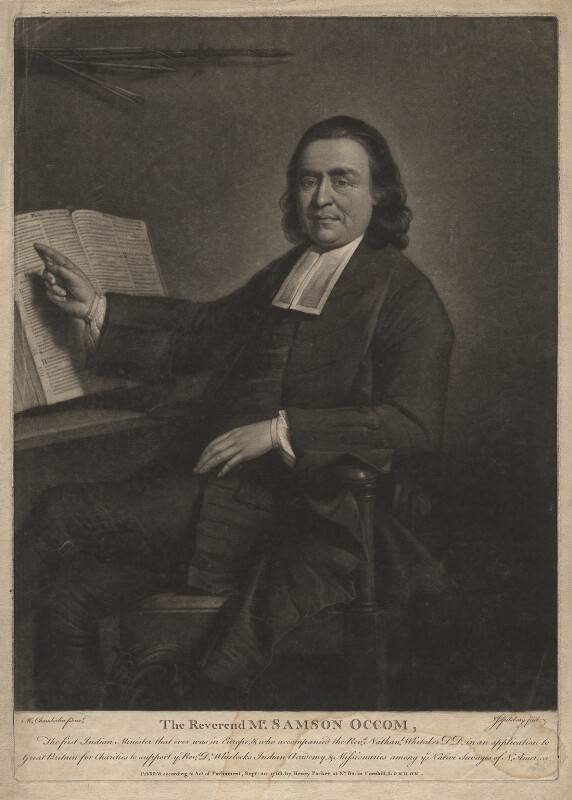 Source: Mezzotint of Samson Occom by Jonathan Spilsbury, after a portrait by Mason Chamberlin, 1768. Source: National Portrait Gallery, UK. License: CC-BY-NC-ND 3.0Scholars have pointed towards the resemblance between
Unca Eliza and the
Mohegan minister Samson Occum
(1723-1792), who served as a Christian missionary among Native peoples
in the eighteenth century. Like Occom, Unca Eliza is Indigenous, Christian,
and an evangelist. In “
Samson Occom’s Itinerancies,” Eve Tavor Bannet points out that
Unca Eliza’s Indigeneity or “likeness” to the people she wants to convert
is what allows her to gain religious authority (183). Bannet connects this
to Occom, who used his knowledge and identity as an Indigenous man to create
missionary practices that would appeal to Native American audiences. Through
embracing both parts of his identity, Occom furthered Christian missionary efforts,
but also challenged the role of the white missionary in Western society. - [UOStudStaff].
But as this affair required a very mature deliberation, I thought it would be best
to dismiss them at this time, and order some of them to come again the next week.
As soon then as I found that they had finished their repast, I said to the
193high-priest, "I would have you now, all
of you, return home, and you the priests, and as many of you as will, may come
here again this day week, but not before, upon pain of my displeasure, and then
I will instruct you further."
Source: Mezzotint of Samson Occom by Jonathan Spilsbury, after a portrait by Mason Chamberlin, 1768. Source: National Portrait Gallery, UK. License: CC-BY-NC-ND 3.0Scholars have pointed towards the resemblance between
Unca Eliza and the
Mohegan minister Samson Occum
(1723-1792), who served as a Christian missionary among Native peoples
in the eighteenth century. Like Occom, Unca Eliza is Indigenous, Christian,
and an evangelist. In “
Samson Occom’s Itinerancies,” Eve Tavor Bannet points out that
Unca Eliza’s Indigeneity or “likeness” to the people she wants to convert
is what allows her to gain religious authority (183). Bannet connects this
to Occom, who used his knowledge and identity as an Indigenous man to create
missionary practices that would appeal to Native American audiences. Through
embracing both parts of his identity, Occom furthered Christian missionary efforts,
but also challenged the role of the white missionary in Western society. - [UOStudStaff].
But as this affair required a very mature deliberation, I thought it would be best
to dismiss them at this time, and order some of them to come again the next week.
As soon then as I found that they had finished their repast, I said to the
193high-priest, "I would have you now, all
of you, return home, and you the priests, and as many of you as will, may come
here again this day week, but not before, upon pain of my displeasure, and then
I will instruct you further."
Upon this they all set up a shout of joy, and having made their obeisancesobeisances obeisancessigns of submission to authority - [UOStudStaff] as before, returned back to the shore, in a reversed order from that they came in; for now the children walked first, the grown people next, and the priests last, carrying the high-priest with them.
End of VOL. I. 194 Reputable Circulating Libraries. November 8, 1766.WE, Proprietors of Circulating Libraries, finding it impossible to
continue the Business of Lending Books to Read on the late low Terms of Subscription, with the same Degree of
Reputation to ourselves, and Satisfaction to the Public, as we did at a
time when neither so great a number of New Books were published, nor the
Demand for them so great as now, have been compelled to advance the Sum
of one Shilling on our Quarterly, and Eighteen Pence on our
Yearly Subscribers, in order to avoid the
disagreeable Alternative of throwing up that Branch of Business, which
hath so many Years been a Source of Amusement, and, we will venture to
add, Instruction to the Public, or of suffering it to languish through a
want of a proper Supply of New Books, so
essentially necessary to its Credit and Support. And whereas, we have
experienced the most chearful Compliance from our Subscribers in the
Payment of the trifling Sum so reasonably advanced upon them; we hereby
(each for himself) take this Opportunity of assuring them in particular, and the Public in
general, that no Pains nor Expence in our Power shall be wanting to
render our respective Libraries (in point of Utility, Extensiveness, and
Amusement) of such Advantage over all others, who shall continue to lend
at the old Price (if any such should be 195 found) as shall more than
compensate for the saving of so inconsiderable a Sum as that
abovementioned, since they may be assured that it is our most serious
Intention to purchase for the Use of our Subscribers without Exception,
a much larger Quantity and greater Variety of New Books than can
possibly be furnished by any One lending at less than
Four
Shillings per Quarter,
OR
Twelve
Shillings per Year.
John Noble , St Martin's-Court, Leicester-Square.
Williams Bathoe , near Exeter-Change, Strand.
Thomas Lownds , Fleet-Street.
T. Vernor and J. Chater , Ludgate-Hill.
T. Jones, May's-Buildings, St. Martins-Lane.
William Cooke , Queen-Street, May-Fair.
Footnotes
 According to the Joyner Library at East Carolina University, "Wingandacoa" is
another name for the mainland of Virginia.
According to the Joyner Library at East Carolina University, "Wingandacoa" is
another name for the mainland of Virginia.Biblical passages quoted by the narrator do not perfectly match the wording of any English translation. Here and throughout, we have chosen to link to the King James Version, which was the official Anglican Bible in the eighteenth century.
The scene is similar to Robinson Crusoe's attempt to instruct Friday in his faith. While Crusoe offers general Christian answers to Friday’s questions, Unca Eliza responds to the Indigenous people’s questions with scripture she has memorized.
 Source: Mezzotint of Samson Occom by Jonathan Spilsbury, after a portrait by Mason Chamberlin, 1768. Source: National Portrait Gallery, UK. License: CC-BY-NC-ND 3.0Scholars have pointed towards the resemblance between
Unca Eliza and the
Mohegan minister Samson Occum
(1723-1792), who served as a Christian missionary among Native peoples
in the eighteenth century. Like Occom, Unca Eliza is Indigenous, Christian,
and an evangelist. In “
Samson Occom’s Itinerancies,” Eve Tavor Bannet points out that
Unca Eliza’s Indigeneity or “likeness” to the people she wants to convert
is what allows her to gain religious authority (183). Bannet connects this
to Occom, who used his knowledge and identity as an Indigenous man to create
missionary practices that would appeal to Native American audiences. Through
embracing both parts of his identity, Occom furthered Christian missionary efforts,
but also challenged the role of the white missionary in Western society.
Source: Mezzotint of Samson Occom by Jonathan Spilsbury, after a portrait by Mason Chamberlin, 1768. Source: National Portrait Gallery, UK. License: CC-BY-NC-ND 3.0Scholars have pointed towards the resemblance between
Unca Eliza and the
Mohegan minister Samson Occum
(1723-1792), who served as a Christian missionary among Native peoples
in the eighteenth century. Like Occom, Unca Eliza is Indigenous, Christian,
and an evangelist. In “
Samson Occom’s Itinerancies,” Eve Tavor Bannet points out that
Unca Eliza’s Indigeneity or “likeness” to the people she wants to convert
is what allows her to gain religious authority (183). Bannet connects this
to Occom, who used his knowledge and identity as an Indigenous man to create
missionary practices that would appeal to Native American audiences. Through
embracing both parts of his identity, Occom furthered Christian missionary efforts,
but also challenged the role of the white missionary in Western society.![Page [TP]](https://anthologyassetsdev.lib.virginia.edu/winkfield-female-american/pageImages/TP.png)





![Page 4 [page breaks after 'settle-']](https://anthologyassetsdev.lib.virginia.edu/winkfield-female-american/pageImages/004.png)

![Page 6 [page breaks after 'flou-']](https://anthologyassetsdev.lib.virginia.edu/winkfield-female-american/pageImages/006.png)
![Page 7 [page breaks after 'num-']](https://anthologyassetsdev.lib.virginia.edu/winkfield-female-american/pageImages/007.png)








![Page 16 [page breaks after 'neigh-']](https://anthologyassetsdev.lib.virginia.edu/winkfield-female-american/pageImages/016.png)



![Page 20 [page breaks after 'pro-']](https://anthologyassetsdev.lib.virginia.edu/winkfield-female-american/pageImages/020.png)







![Page 28 [page breaks after 're-']](https://anthologyassetsdev.lib.virginia.edu/winkfield-female-american/pageImages/028.png)



![Page 32 [page breaks after 'de-']](https://anthologyassetsdev.lib.virginia.edu/winkfield-female-american/pageImages/032.png)





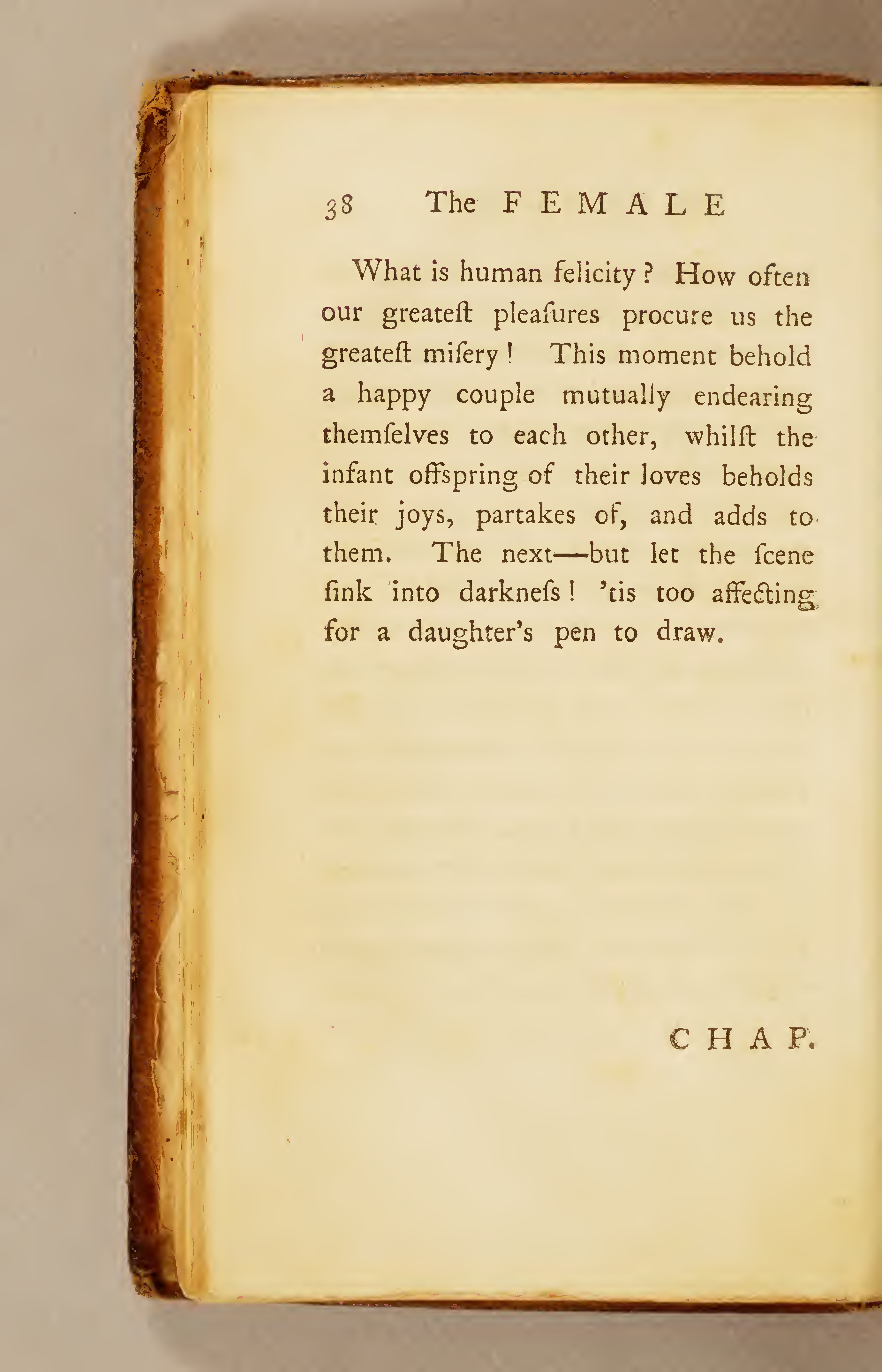



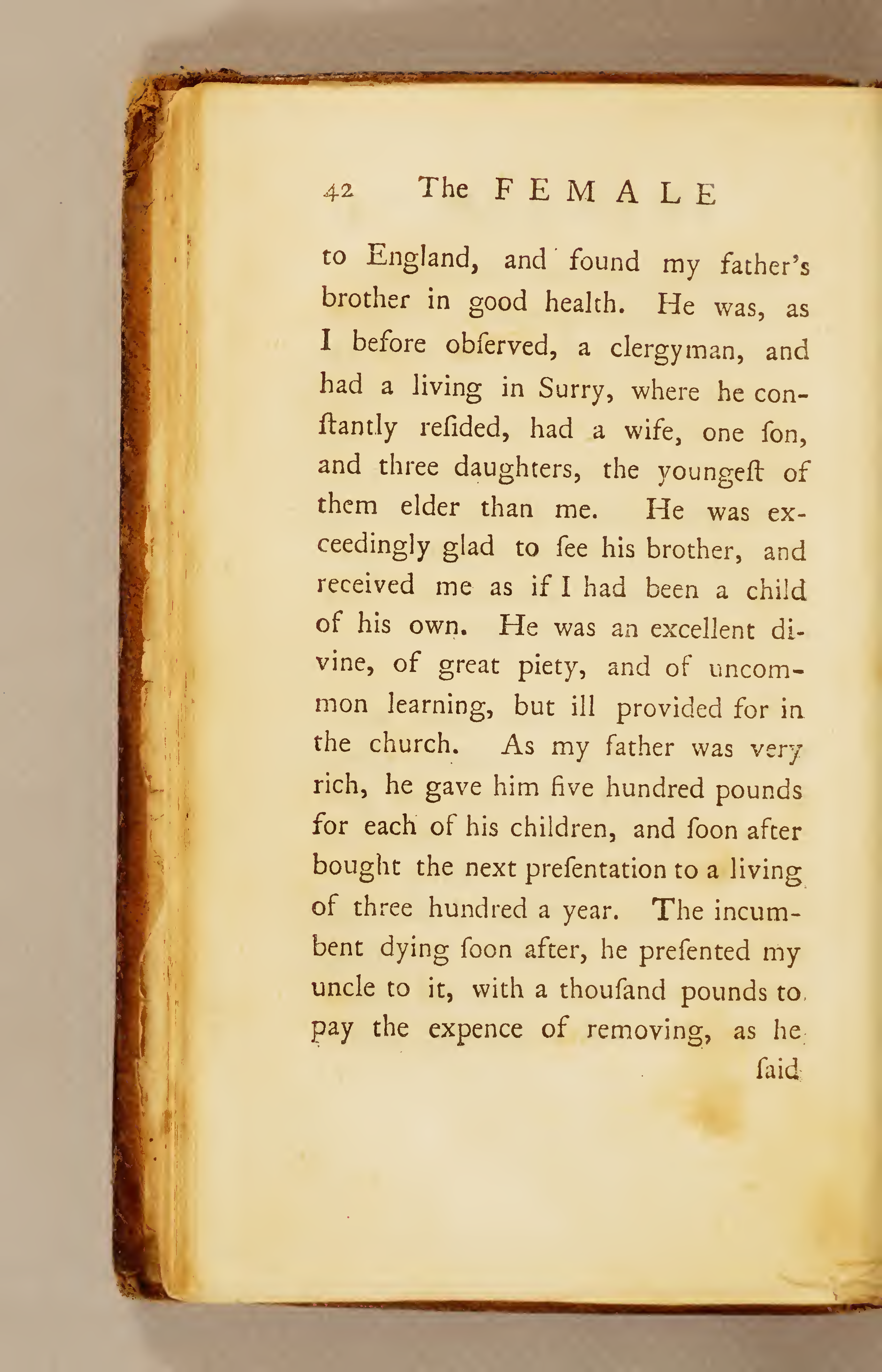
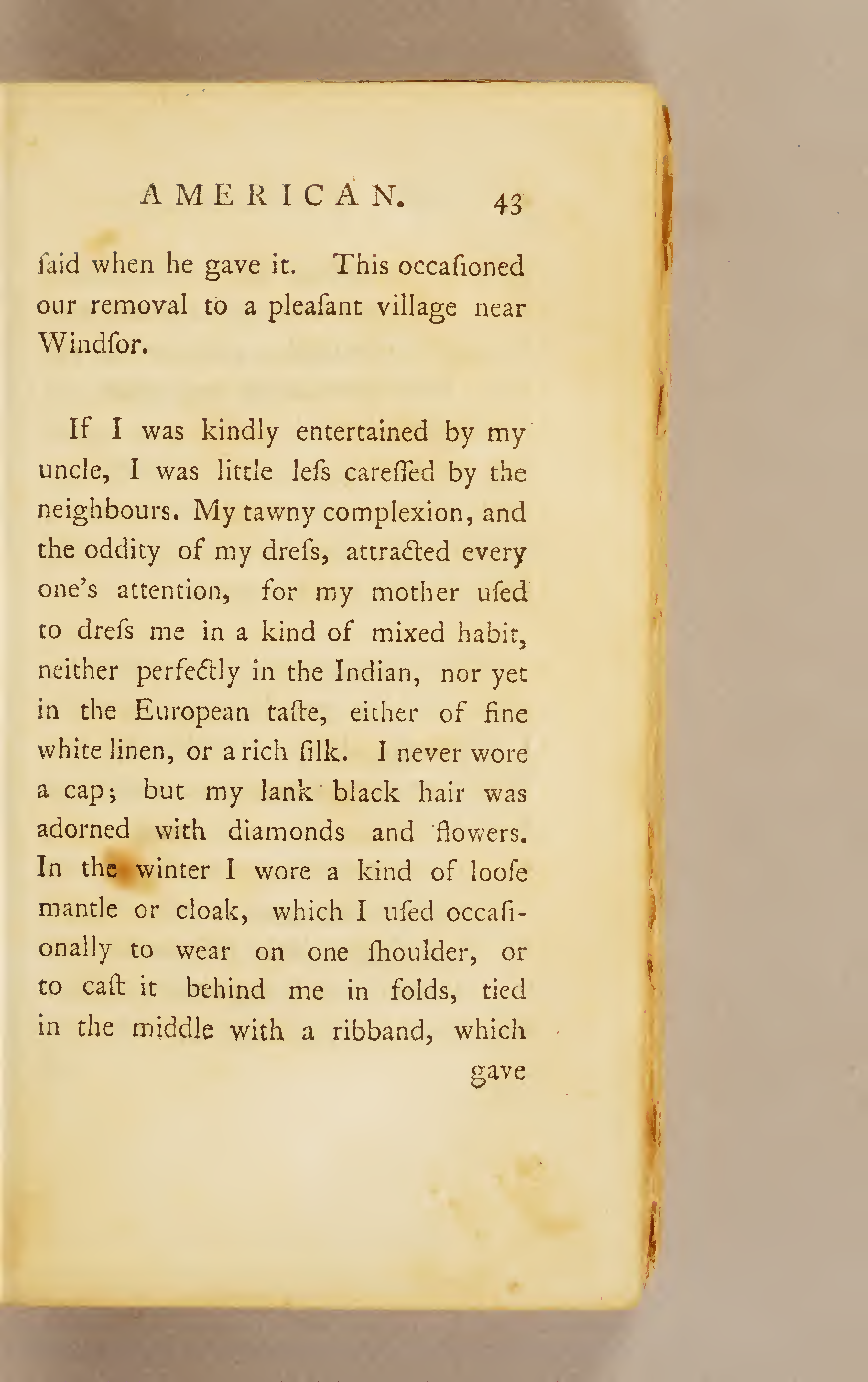

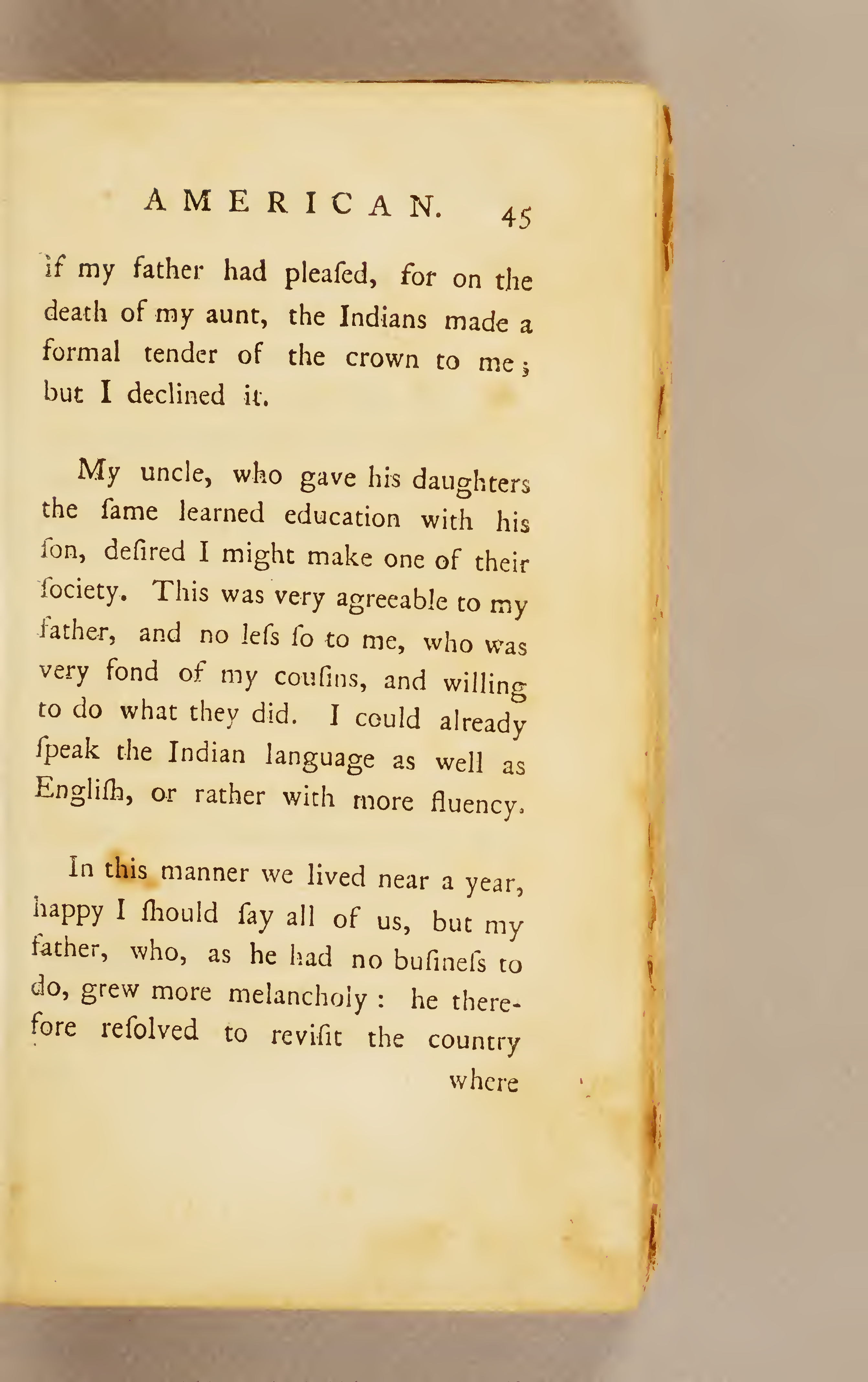
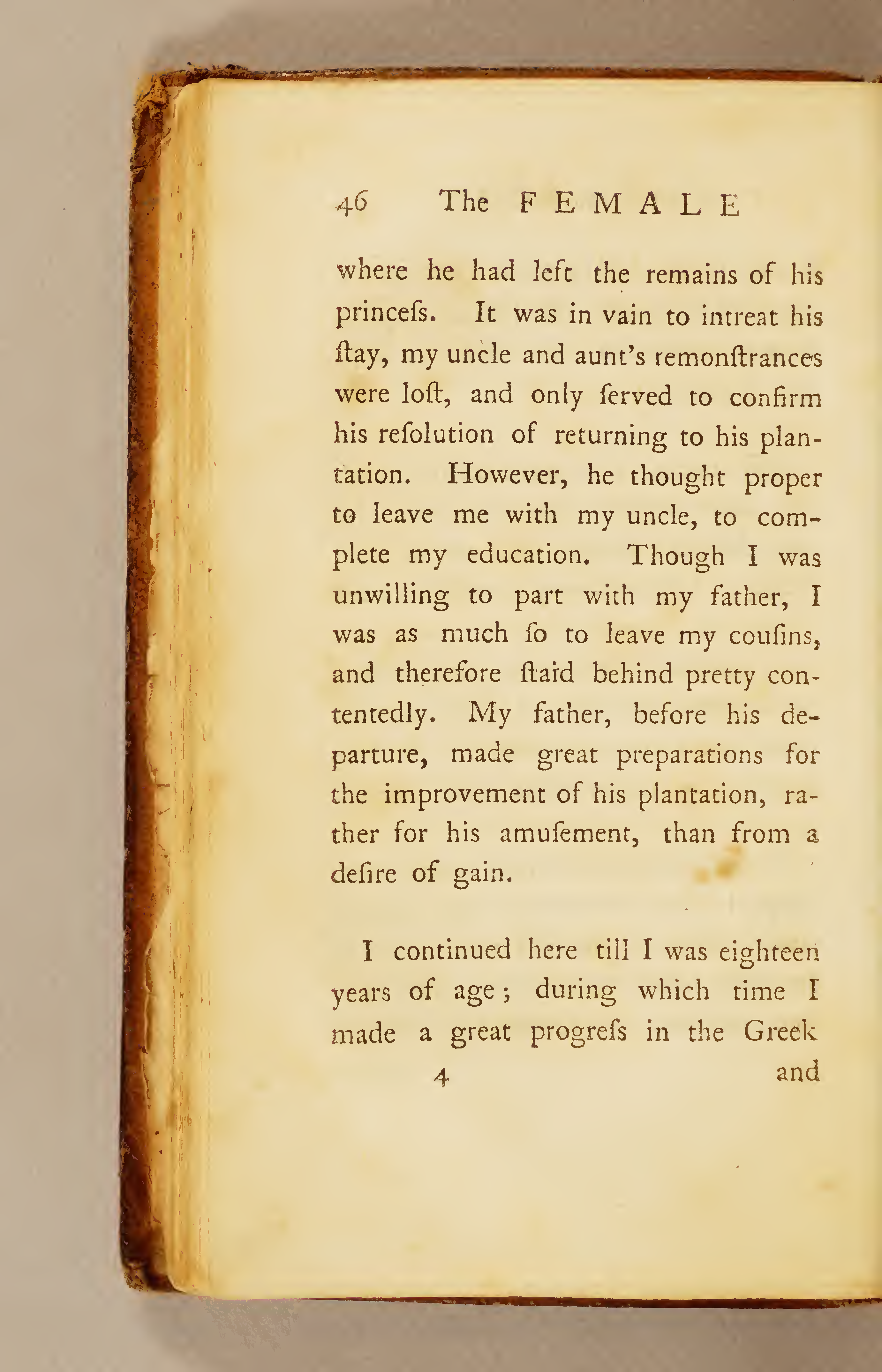
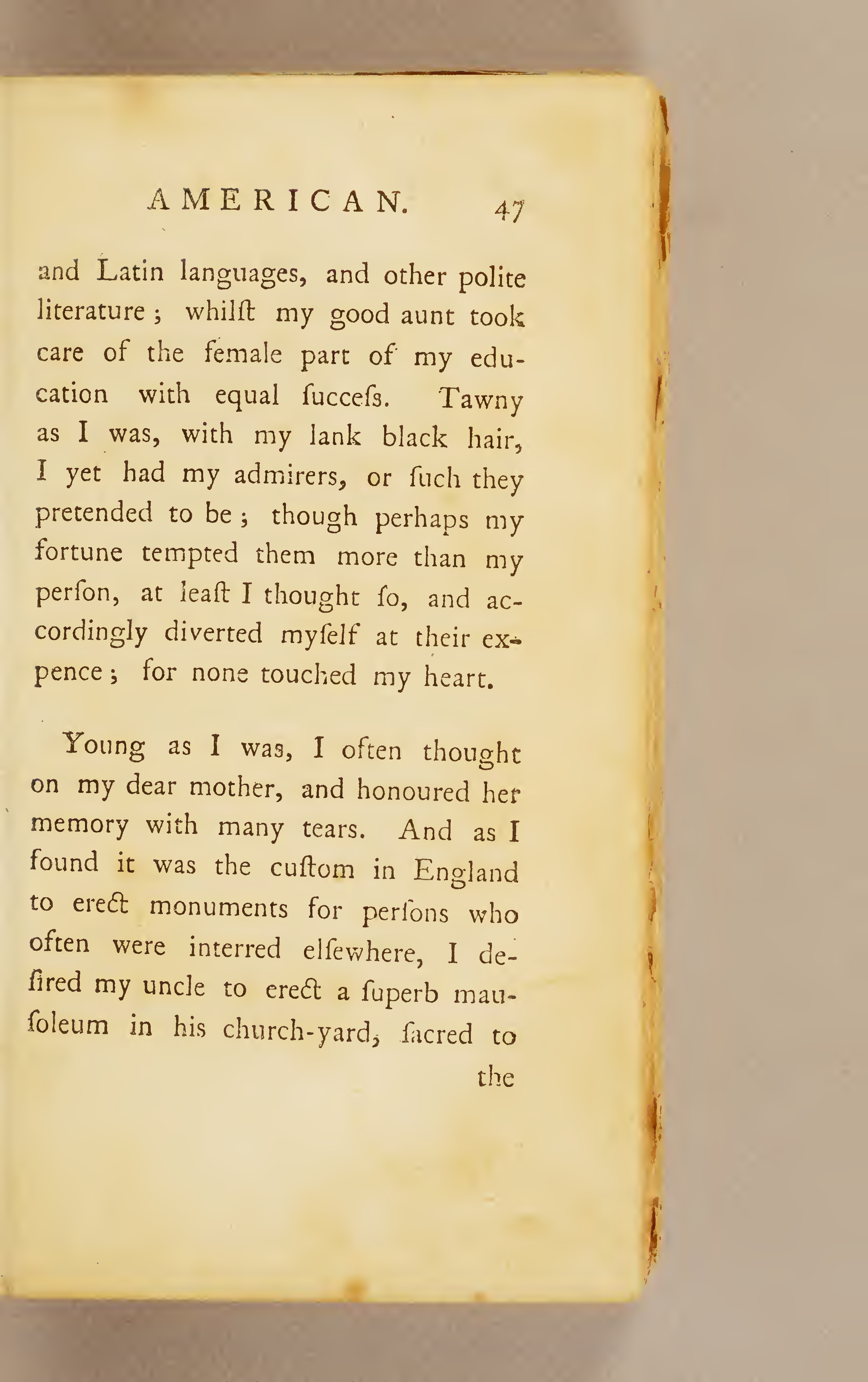
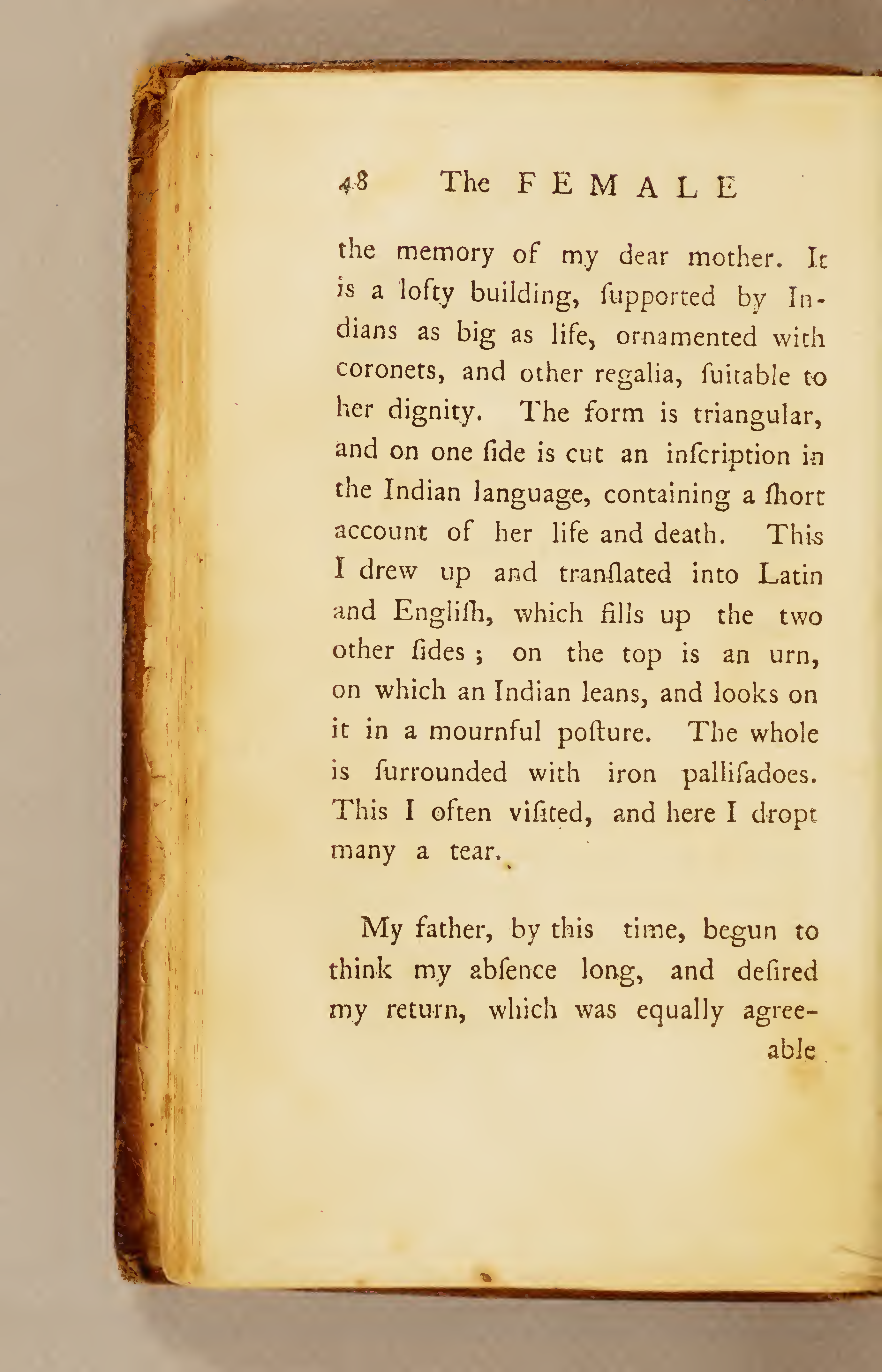
![Page 49 [page breaks after 'agree-']](https://anthologyassetsdev.lib.virginia.edu/winkfield-female-american/pageImages/049.png)

![Page 51 [page breaks after 'sub-']](https://anthologyassetsdev.lib.virginia.edu/winkfield-female-american/pageImages/051.png)

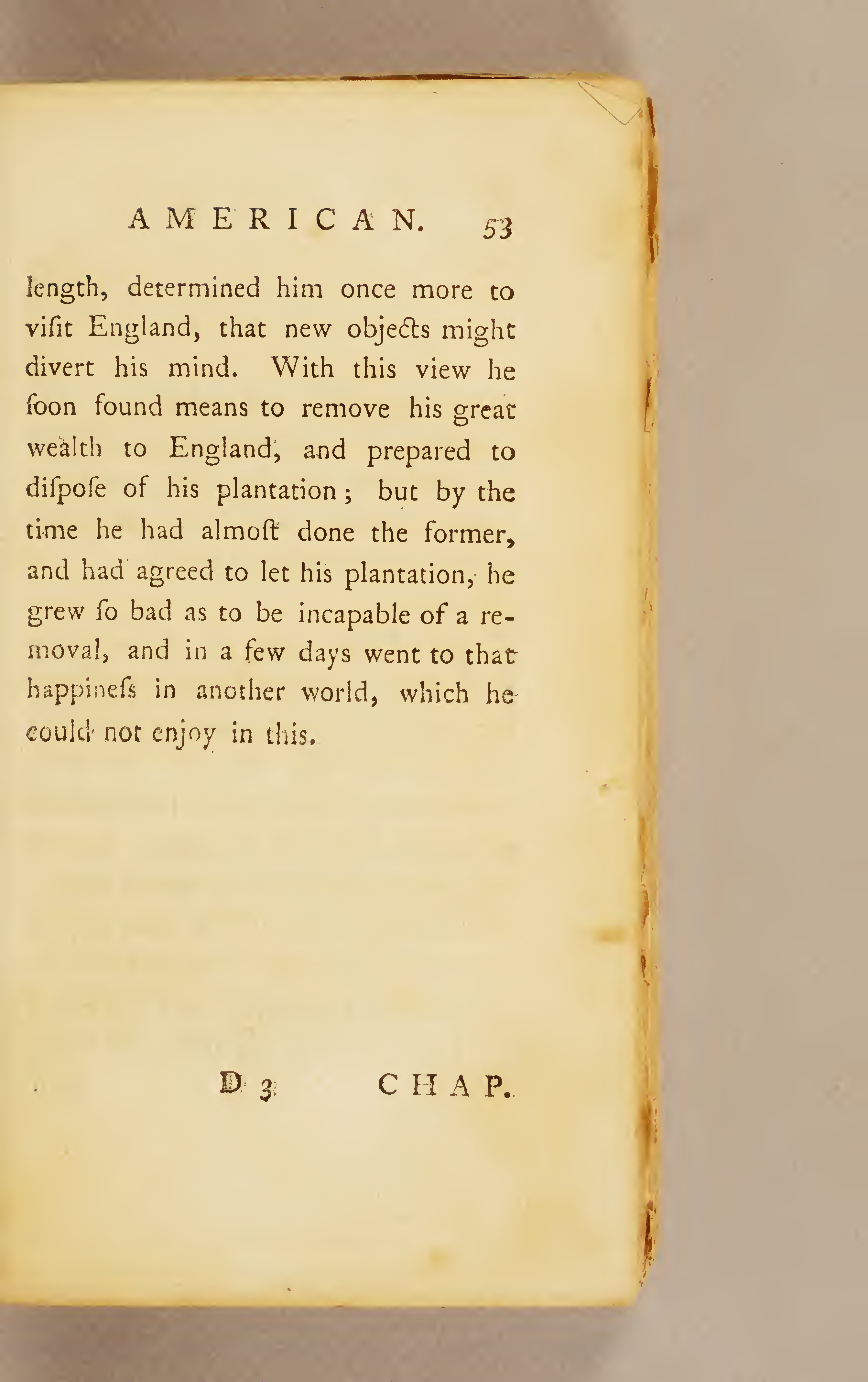

![Page 55 [page breaks after 'twen-']](https://anthologyassetsdev.lib.virginia.edu/winkfield-female-american/pageImages/055.png)
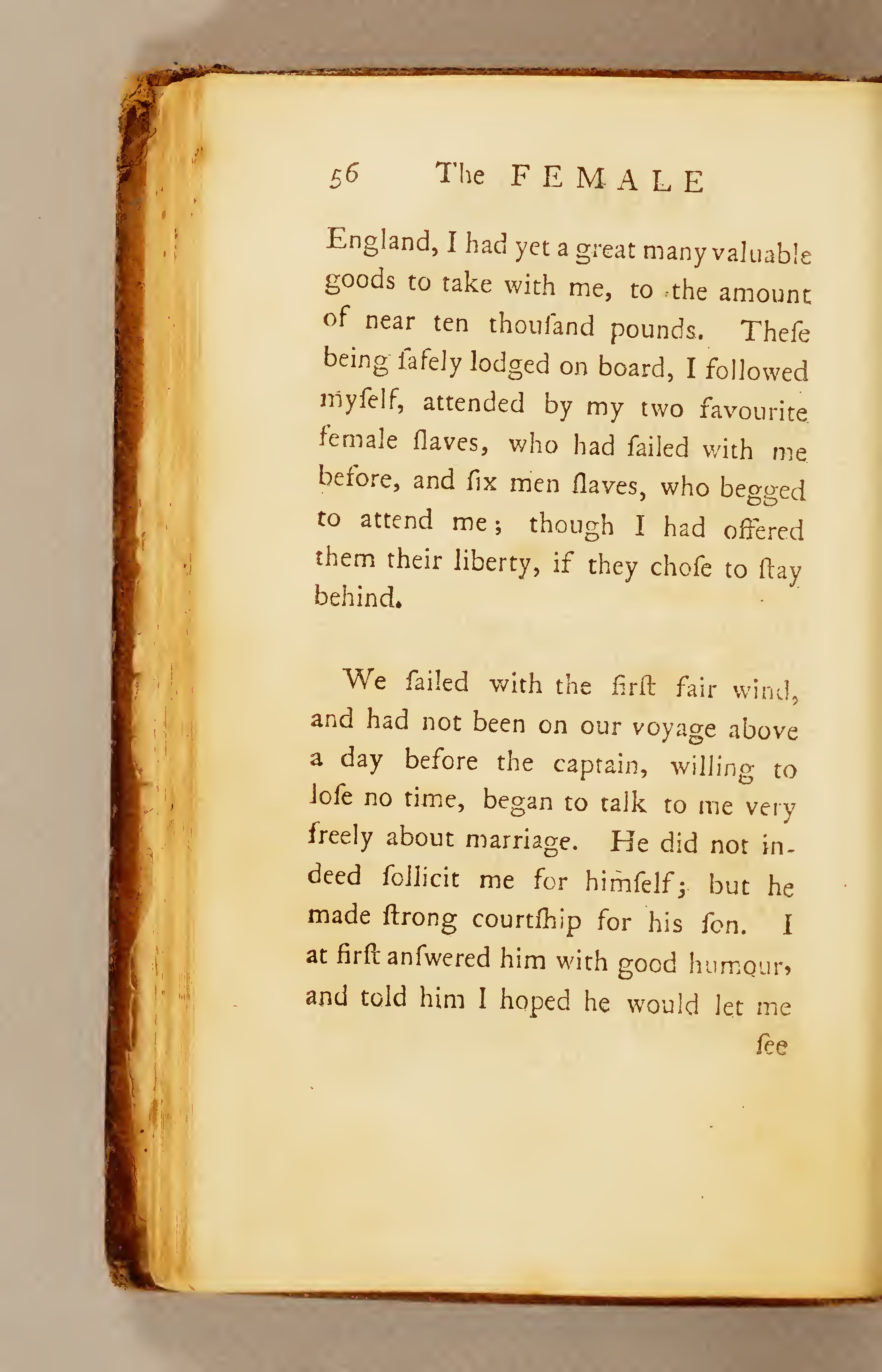
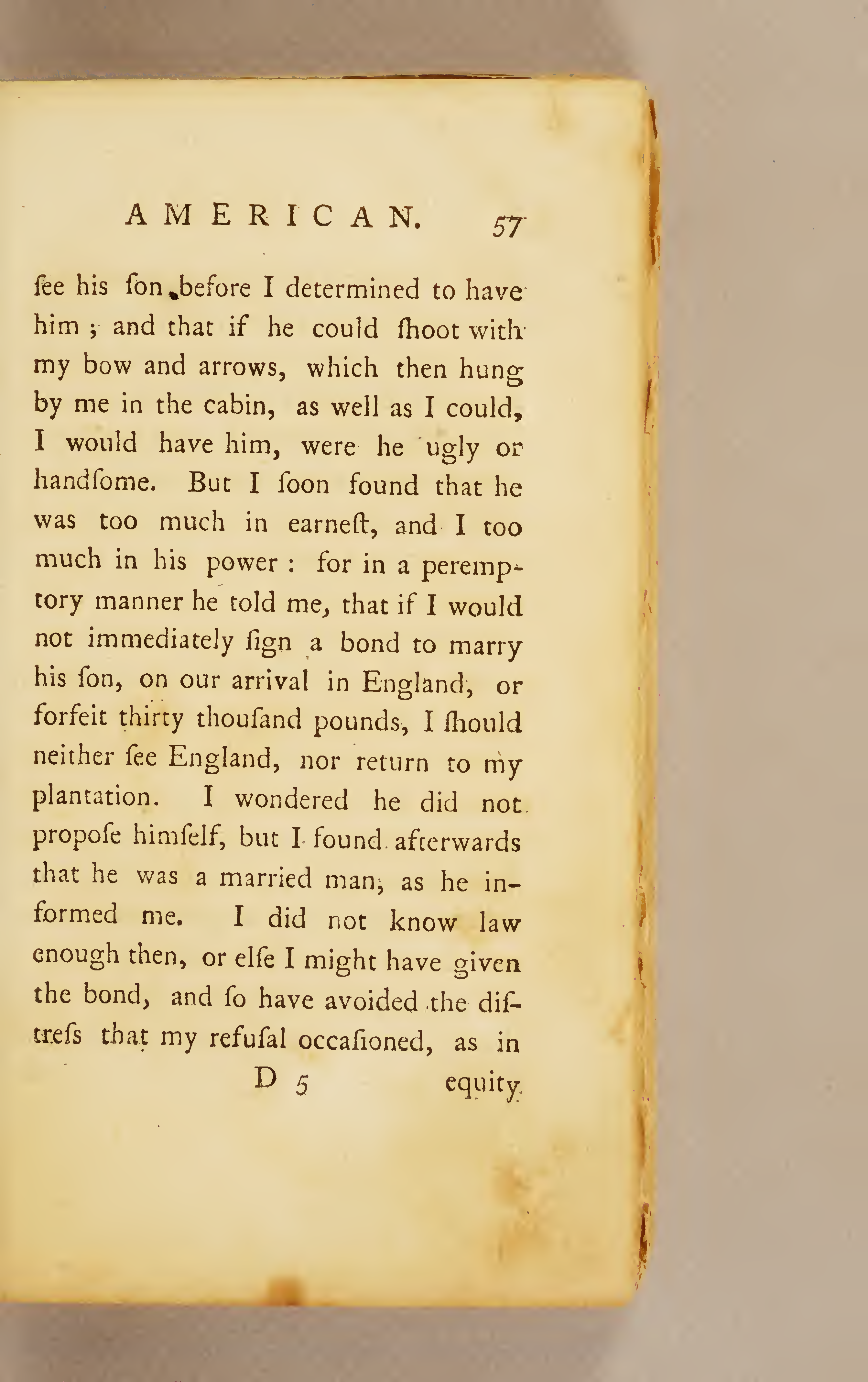
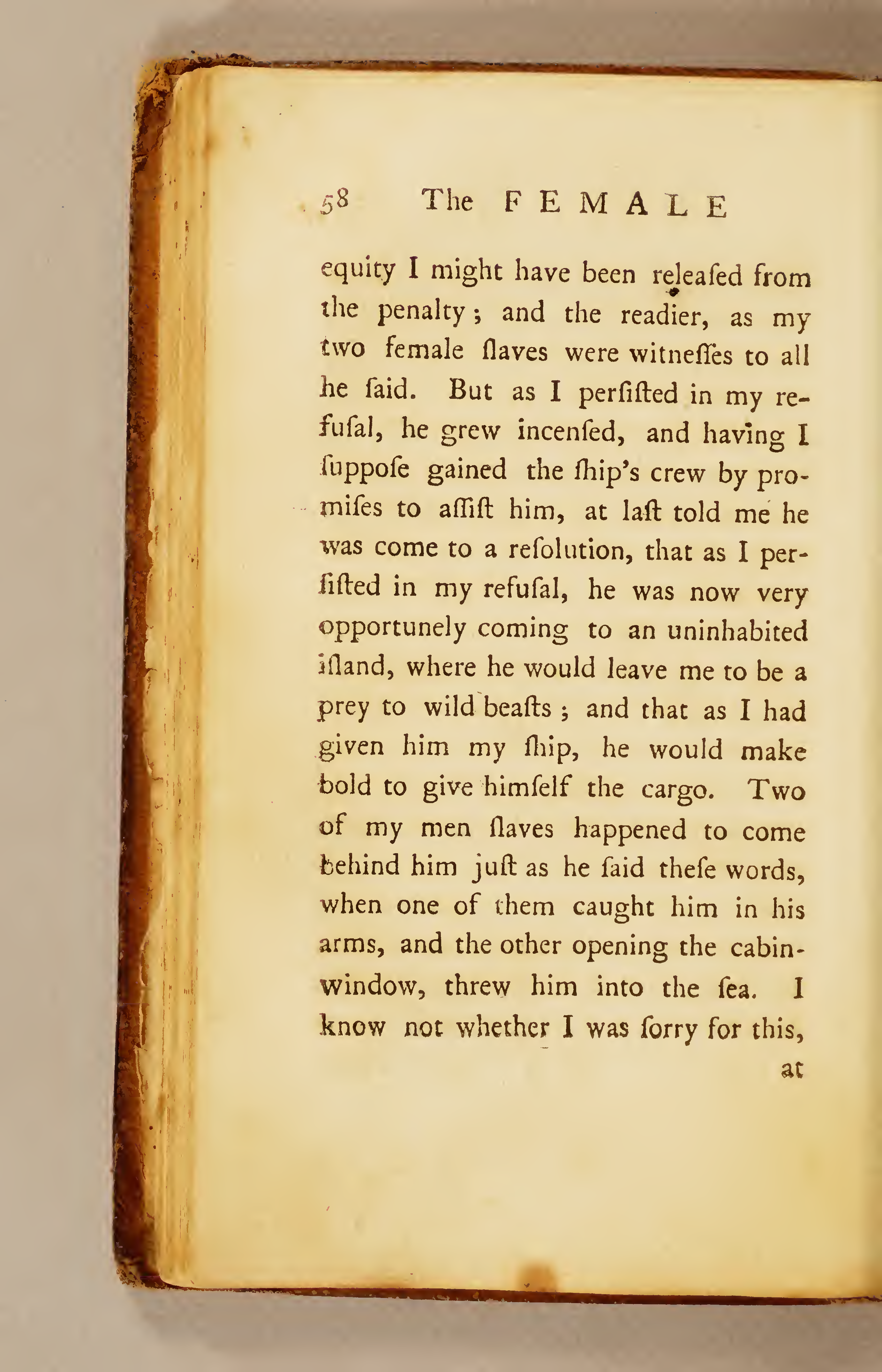
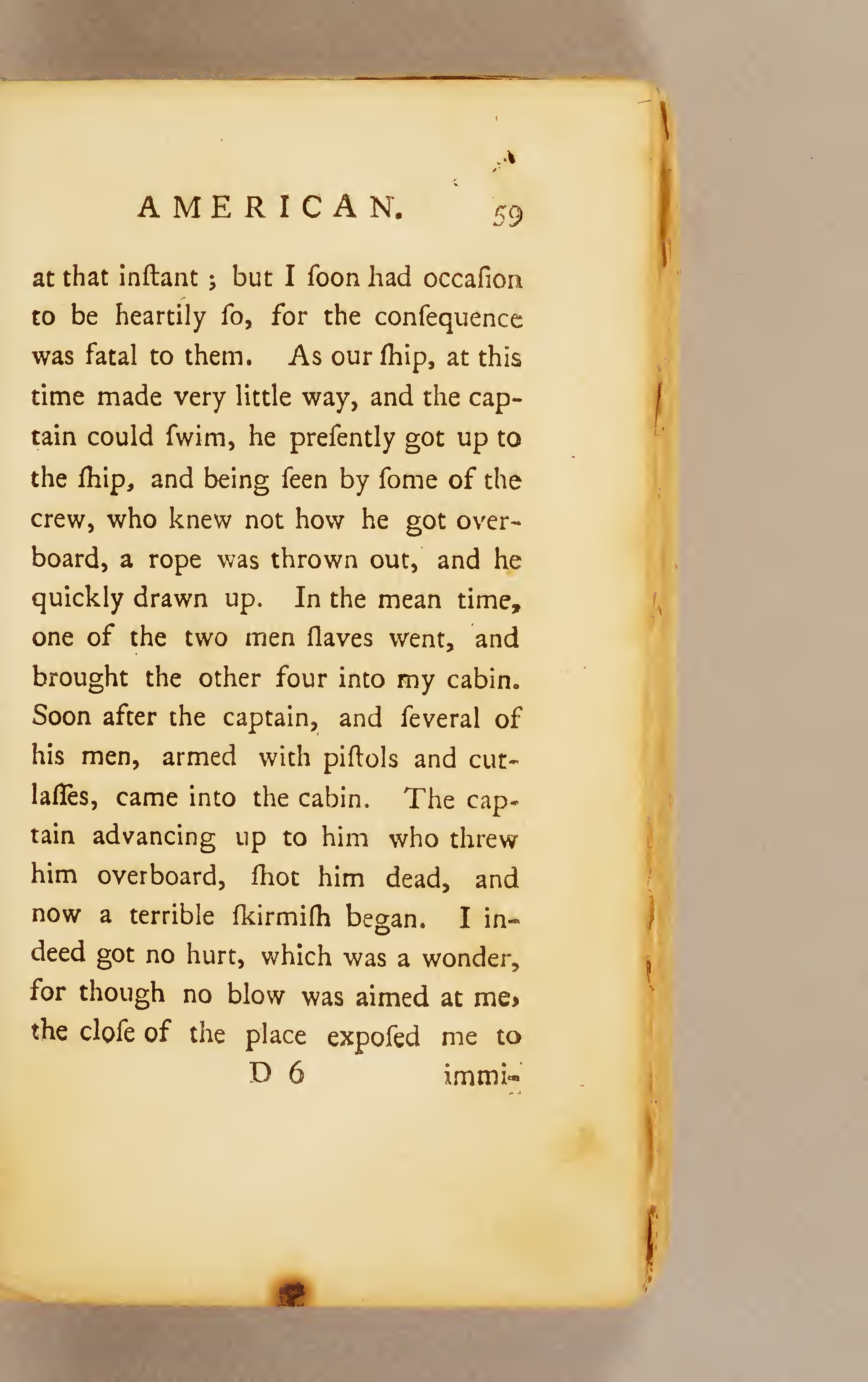
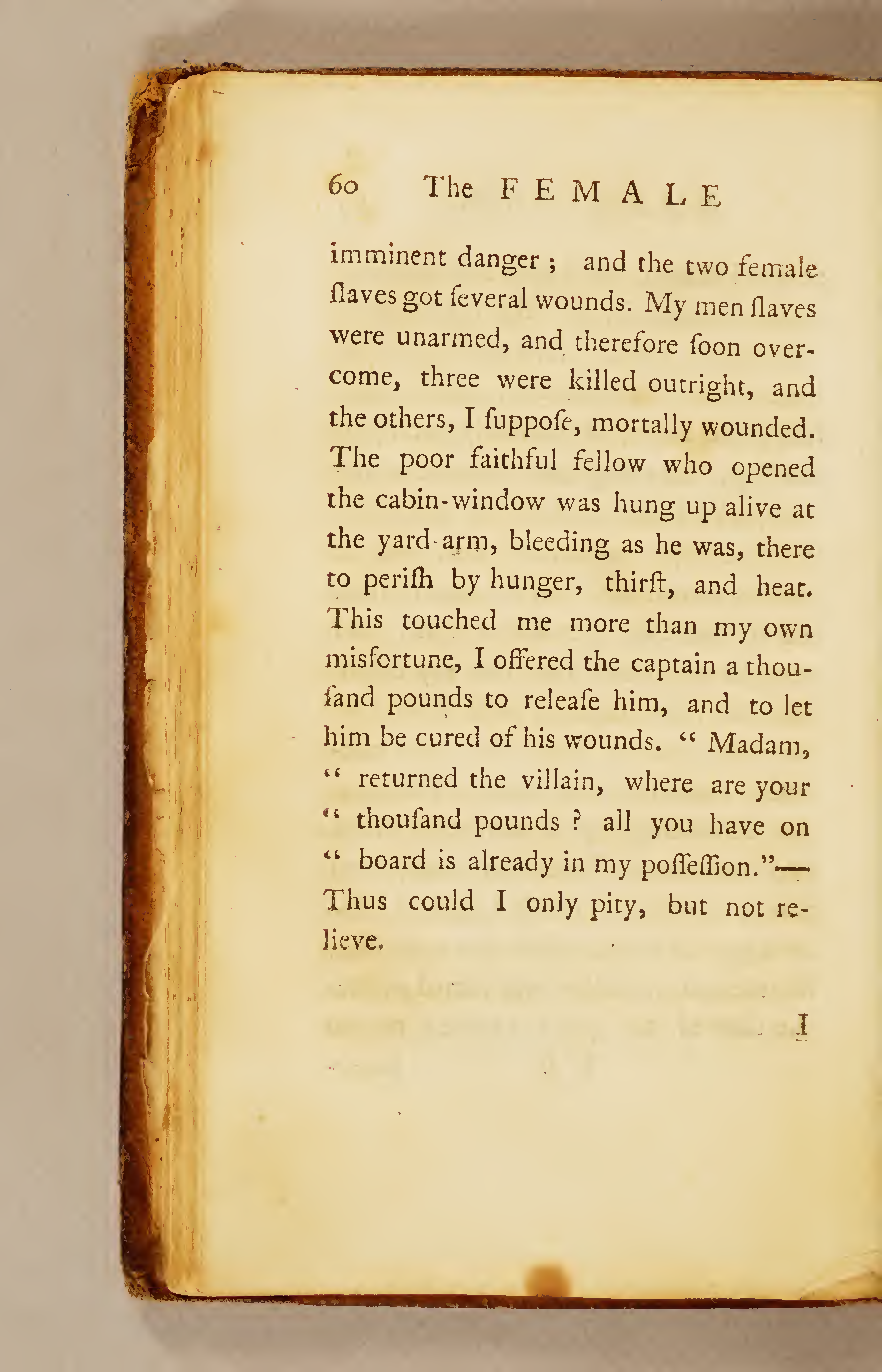
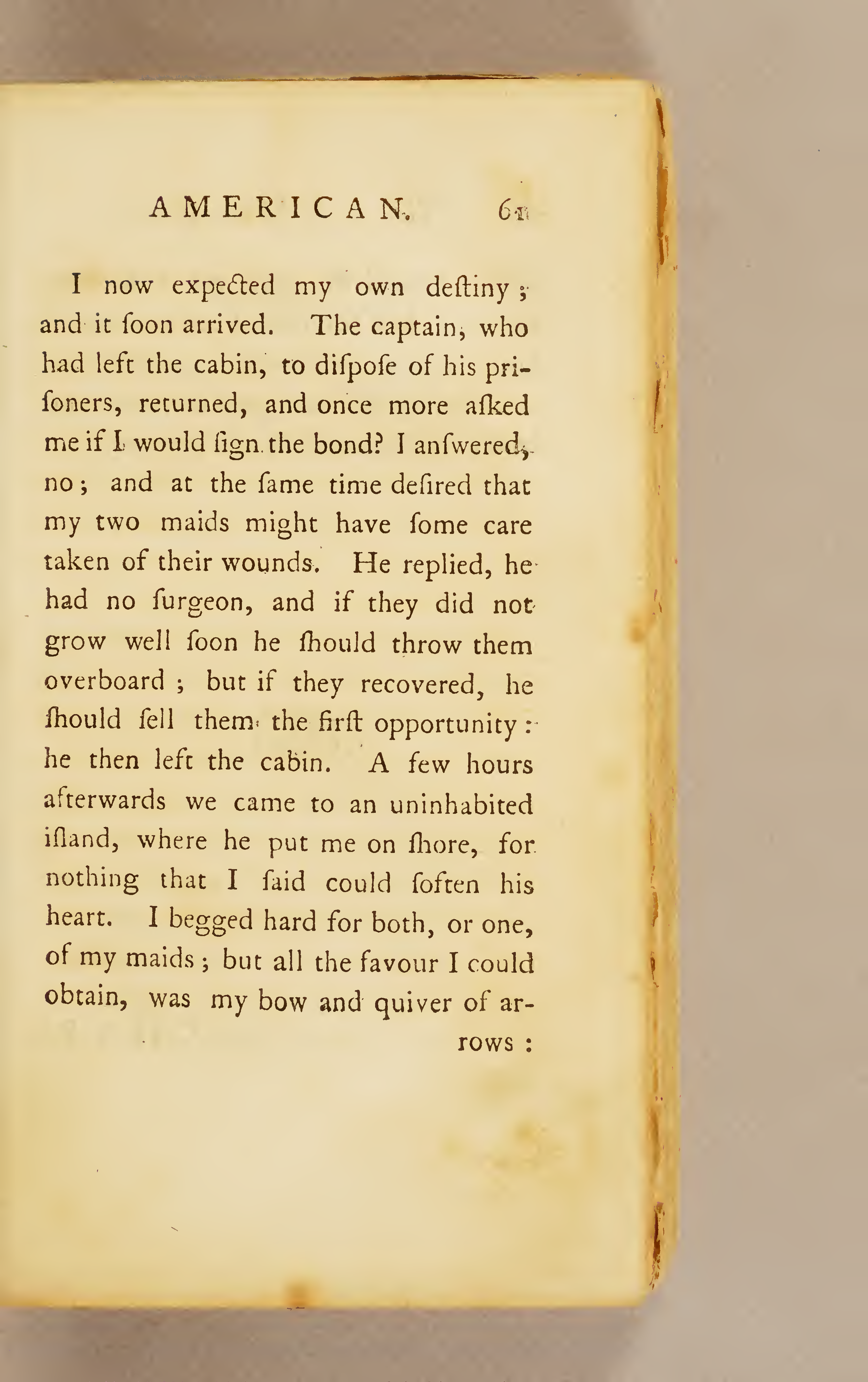
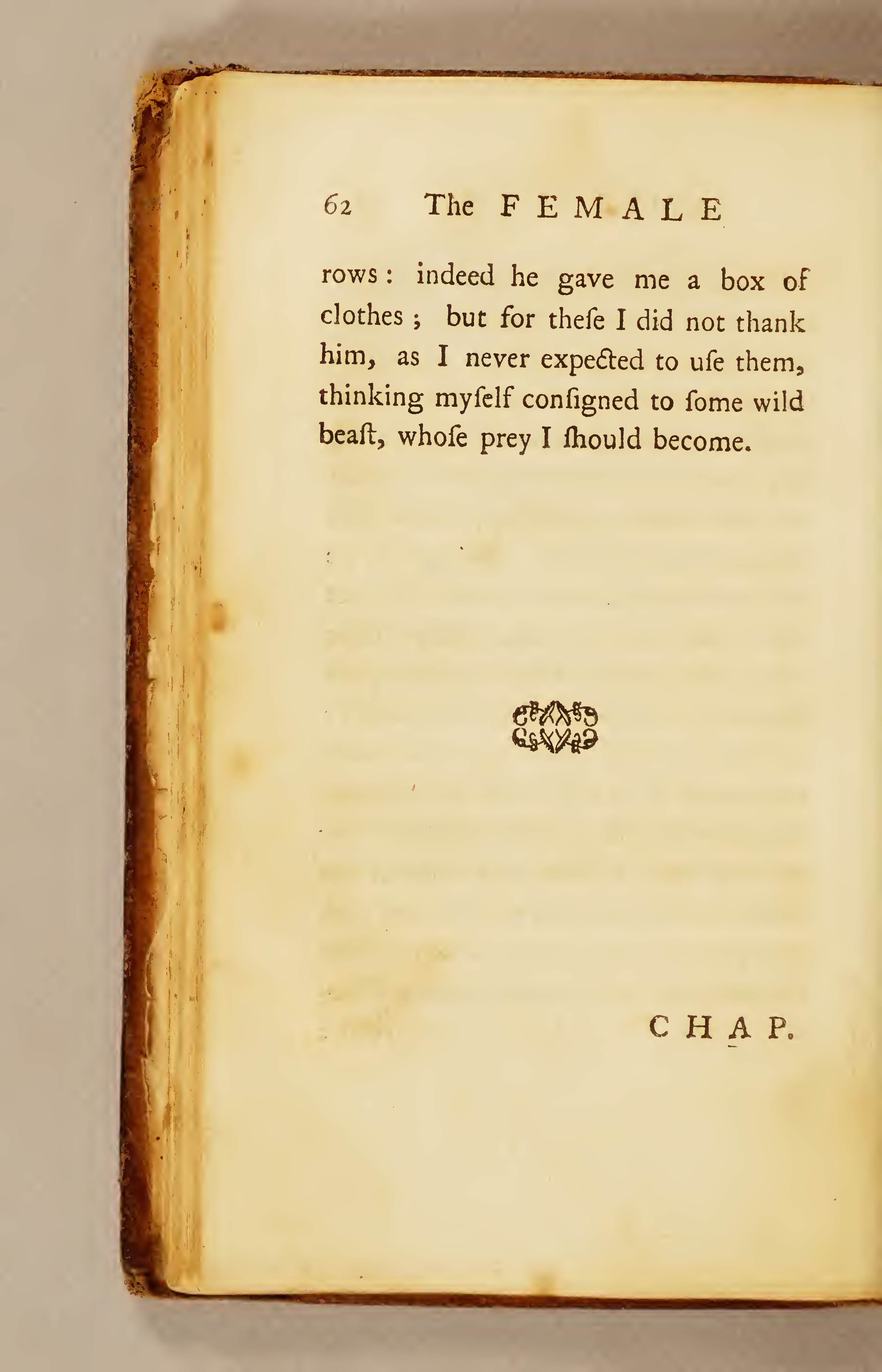
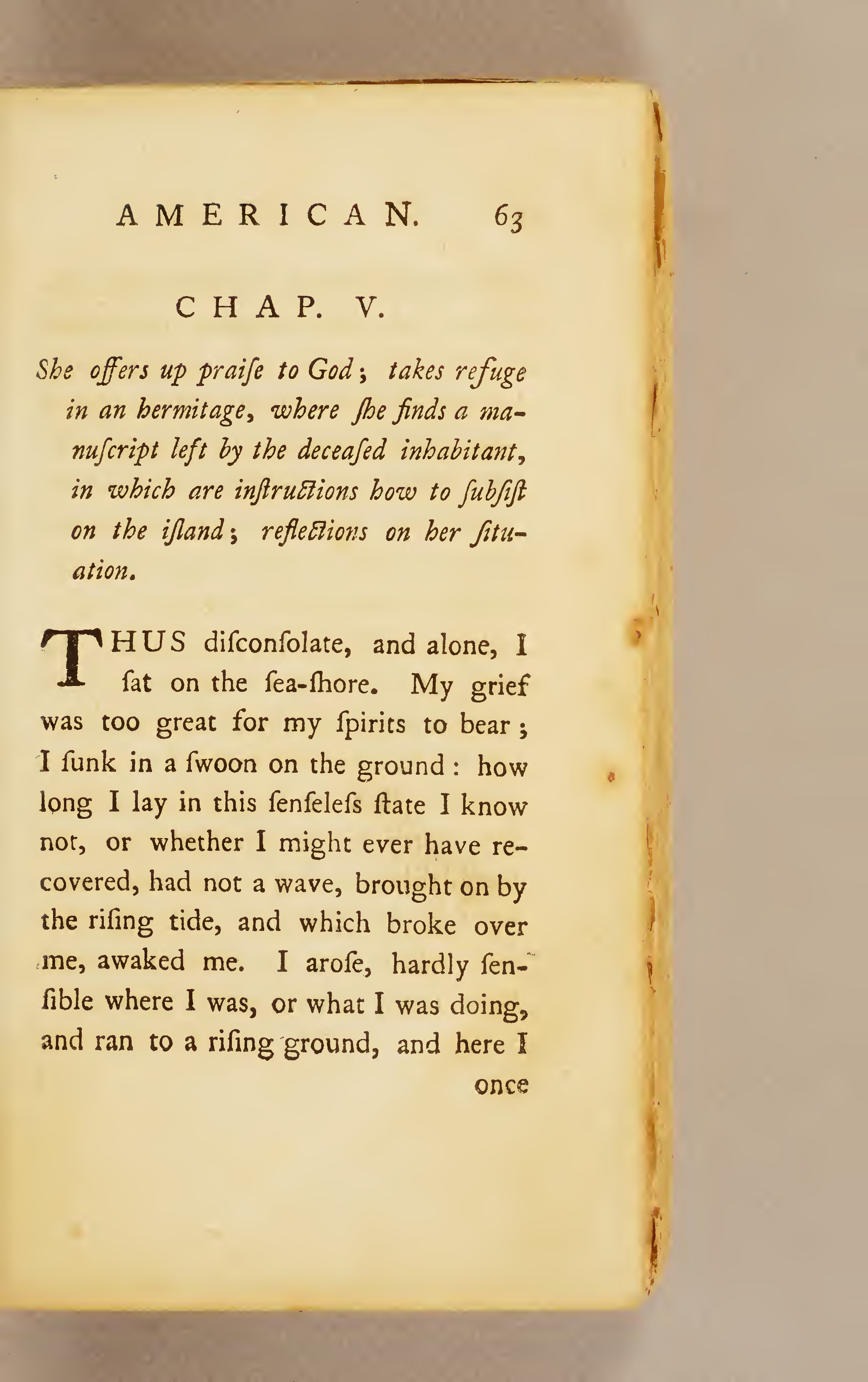
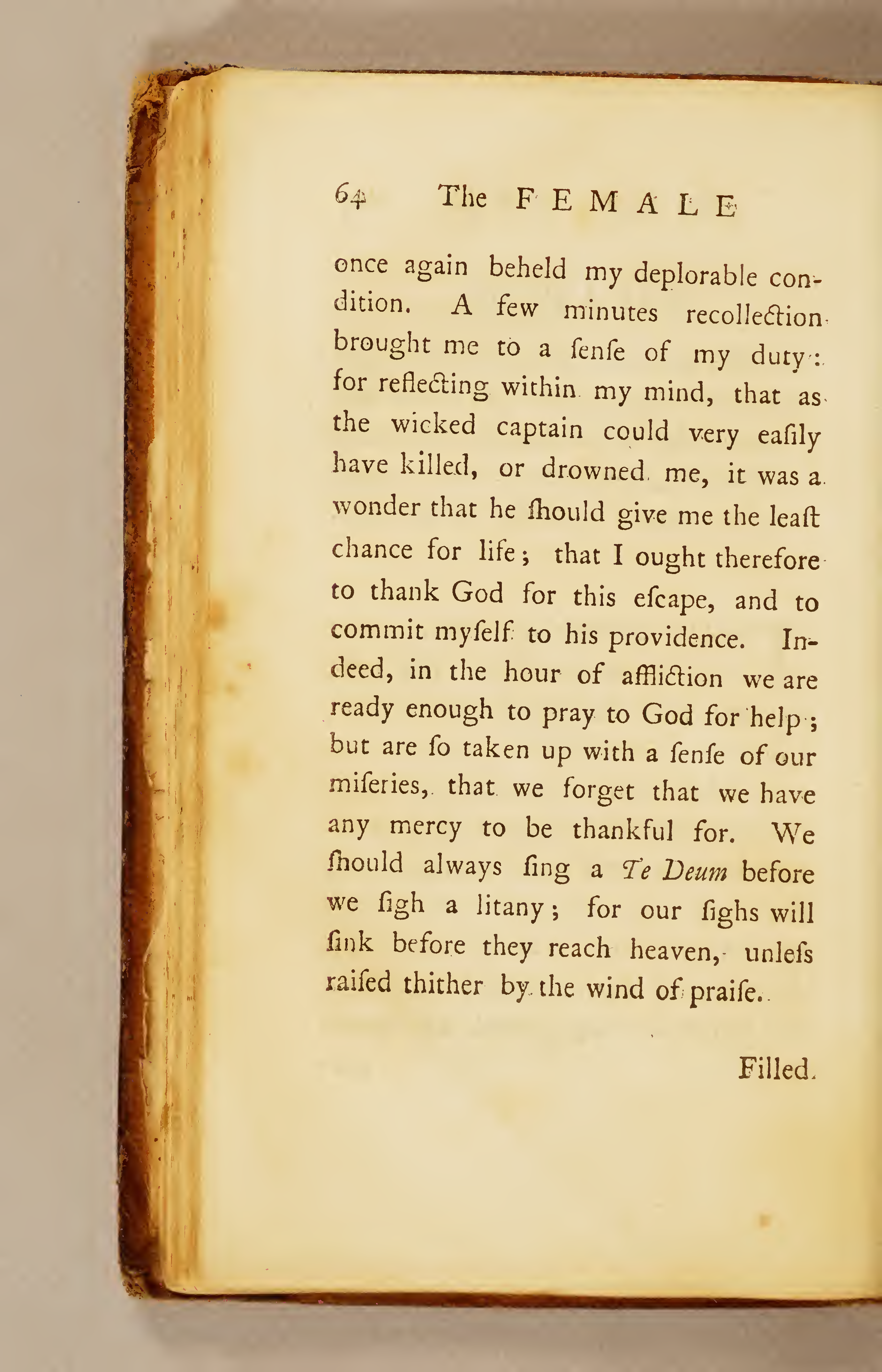

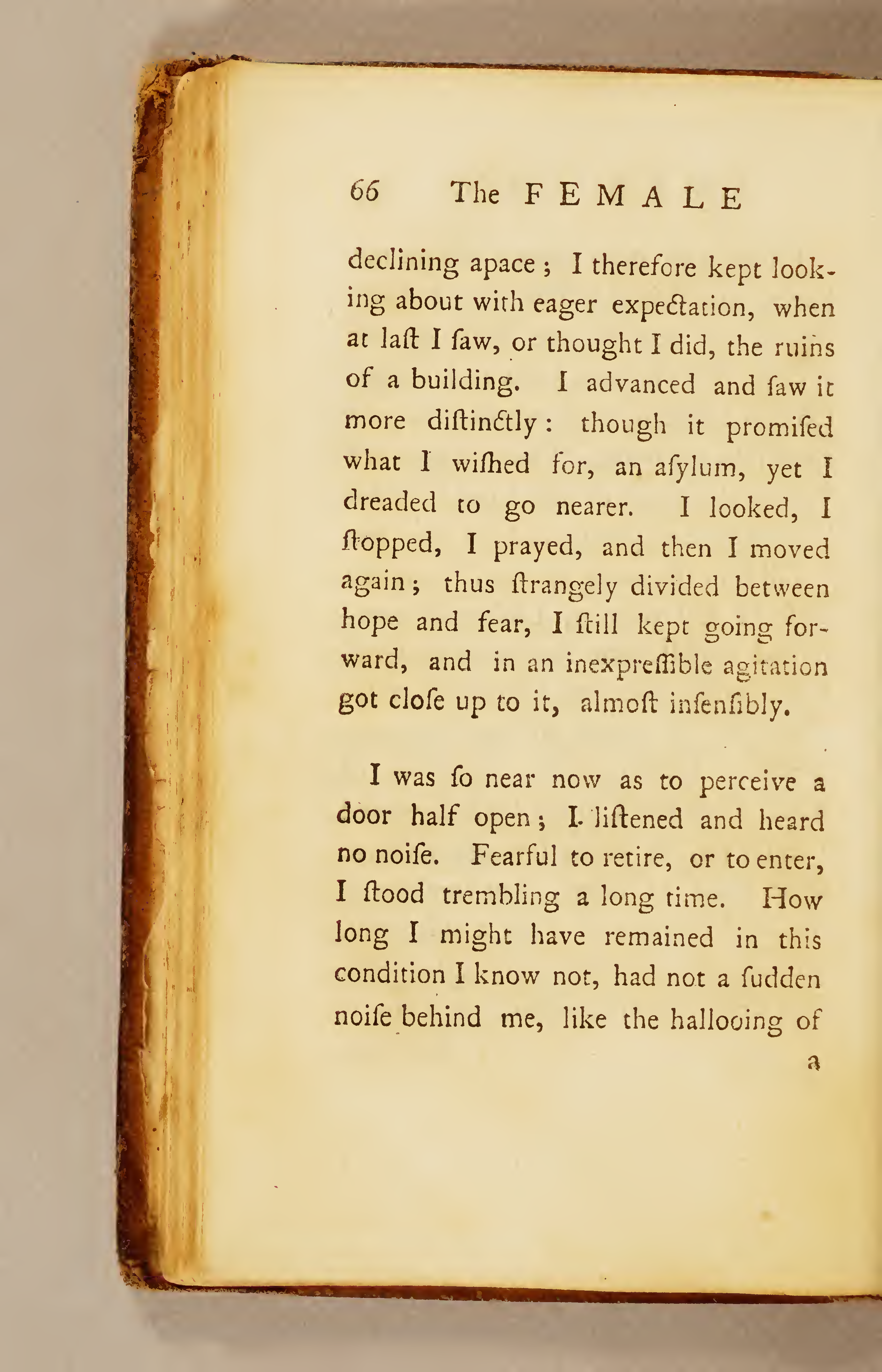
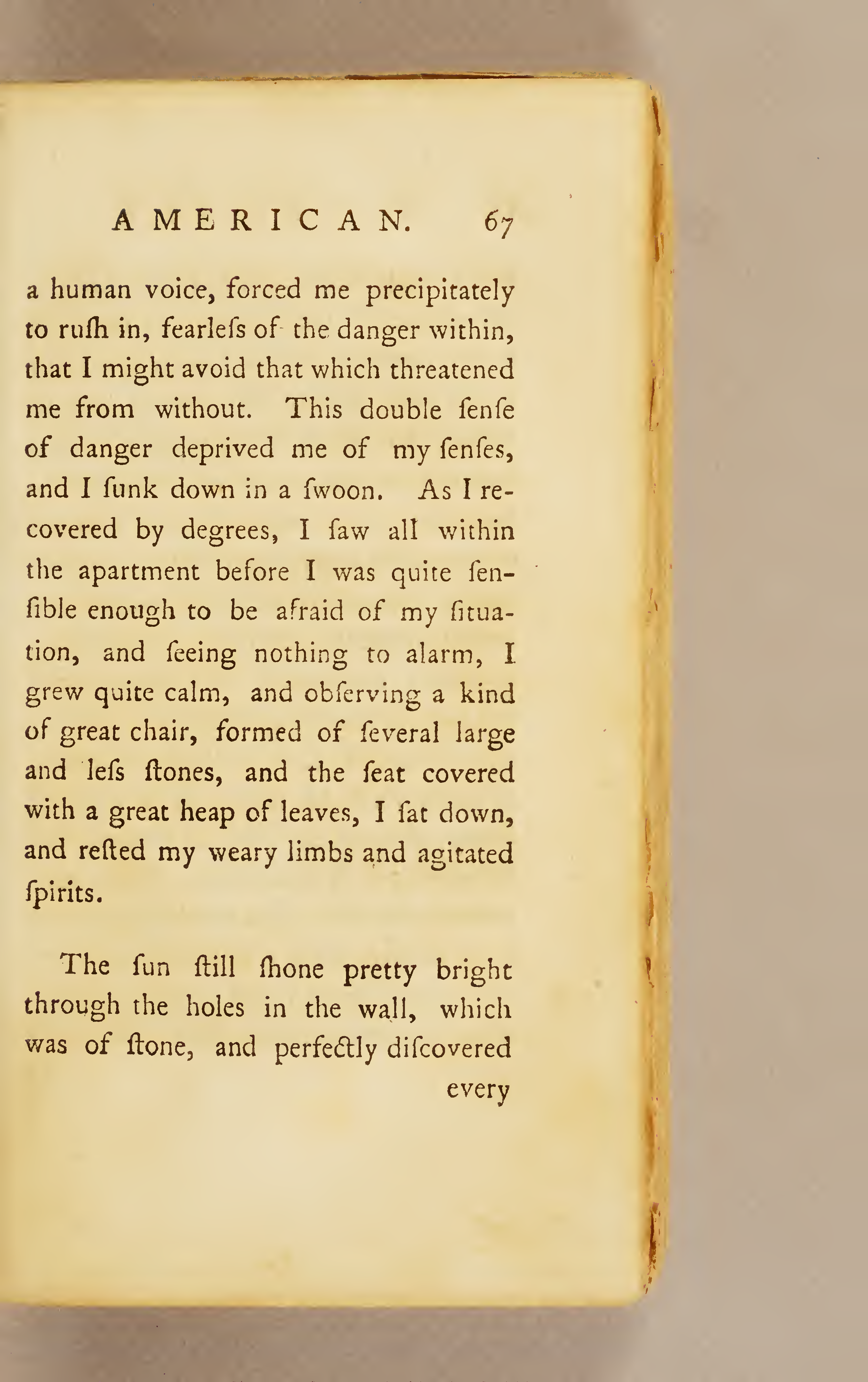
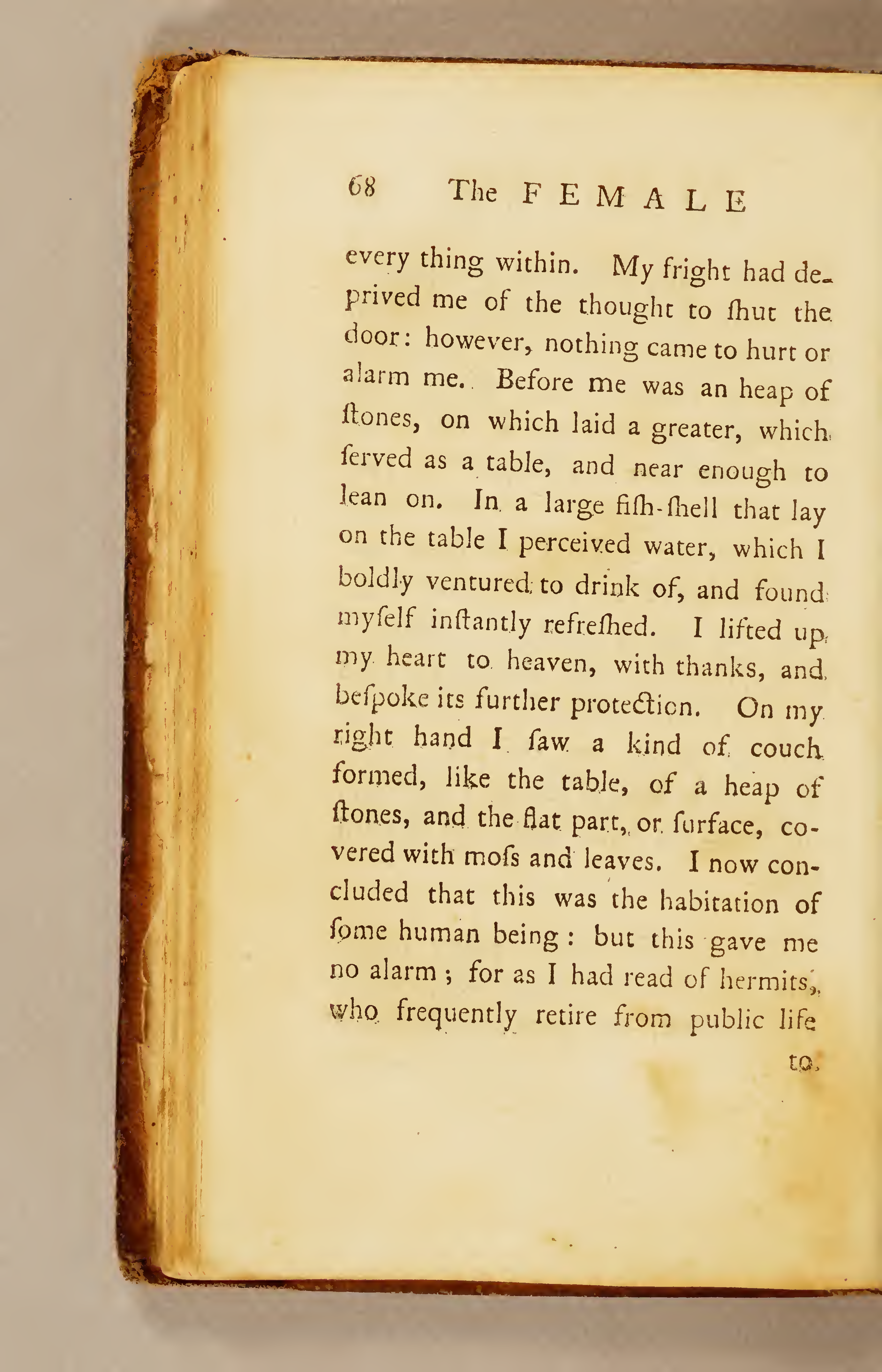
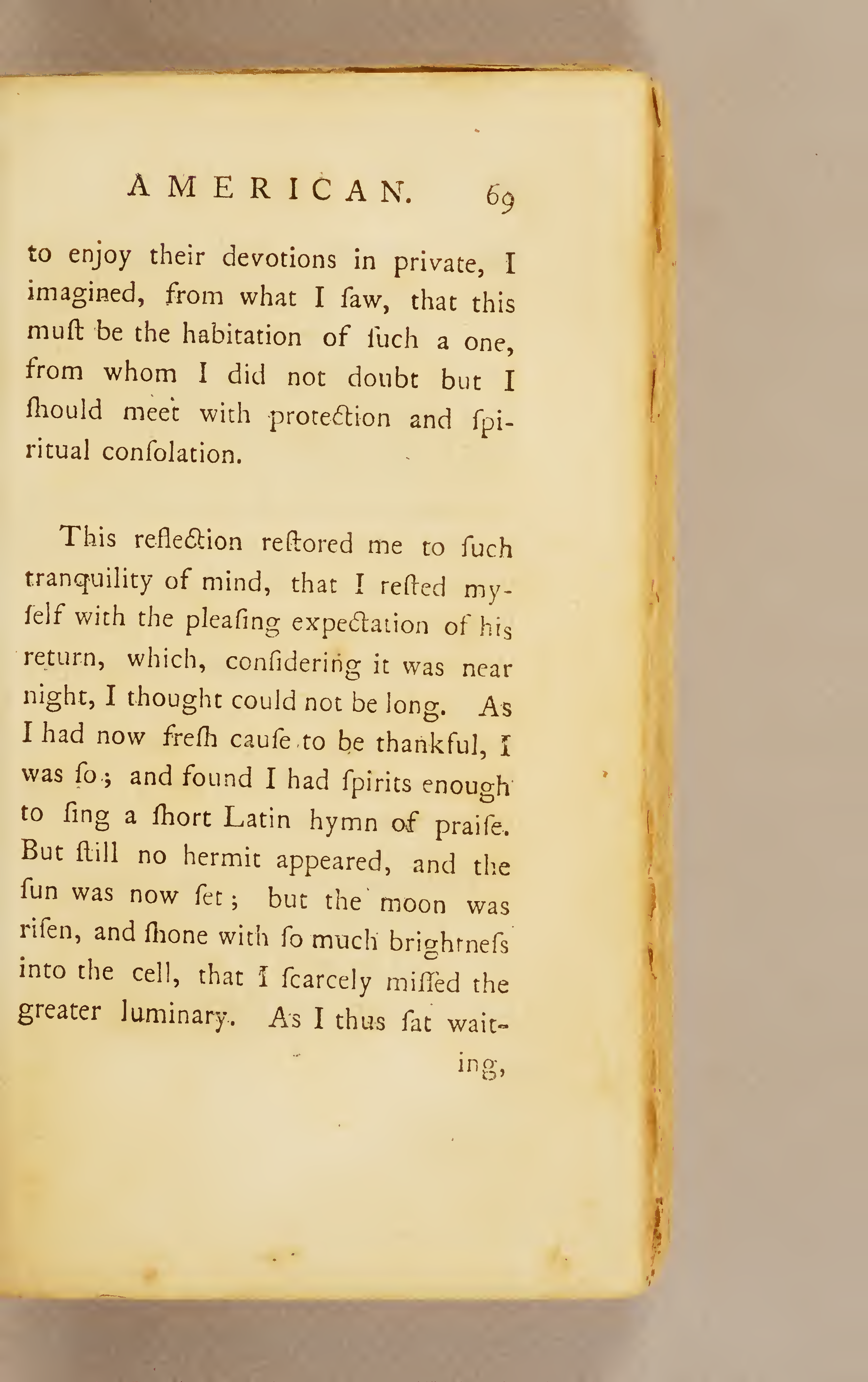
![Page 70 [page breaks after 'wait-']](https://anthologyassetsdev.lib.virginia.edu/winkfield-female-american/pageImages/070.png)
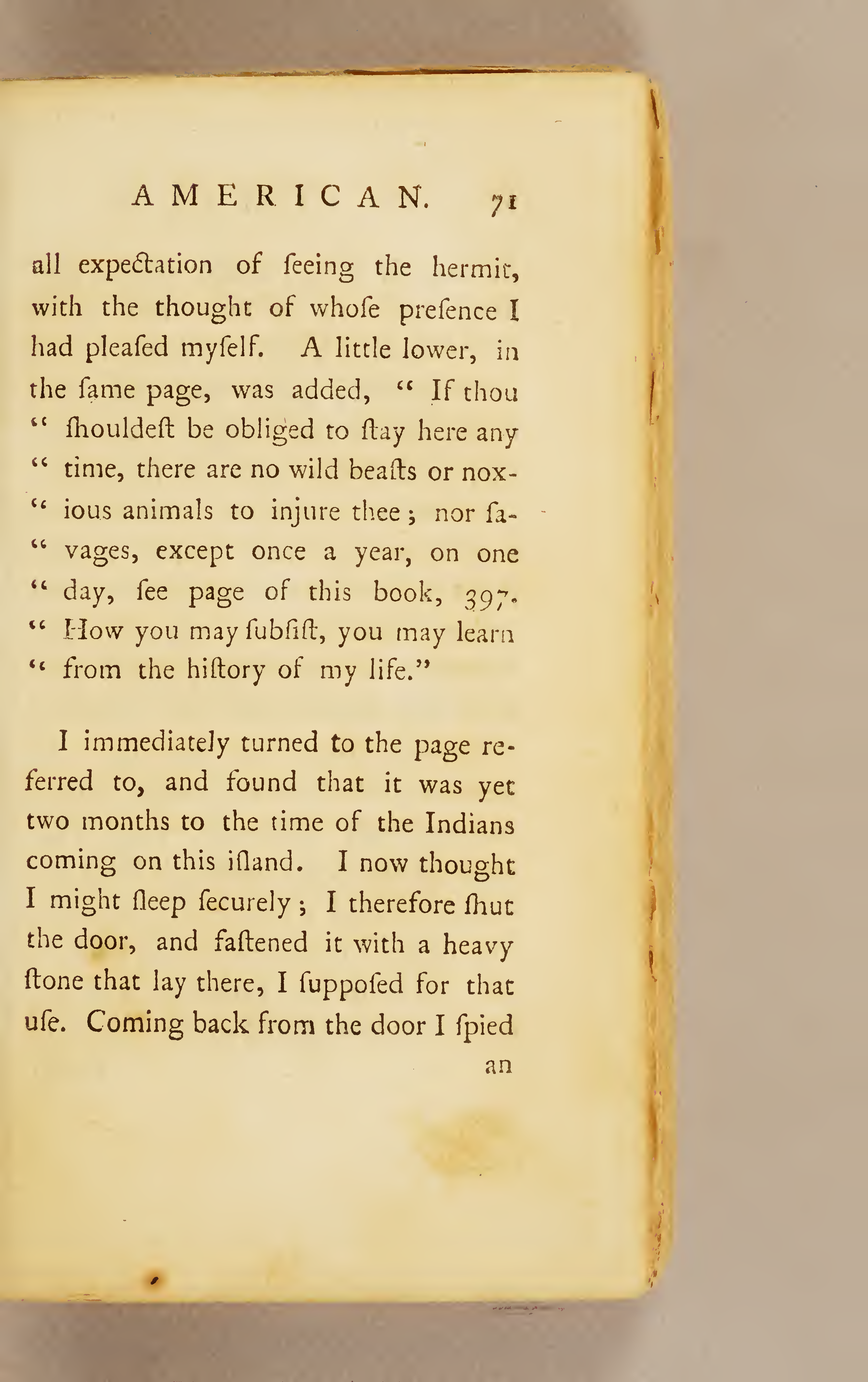
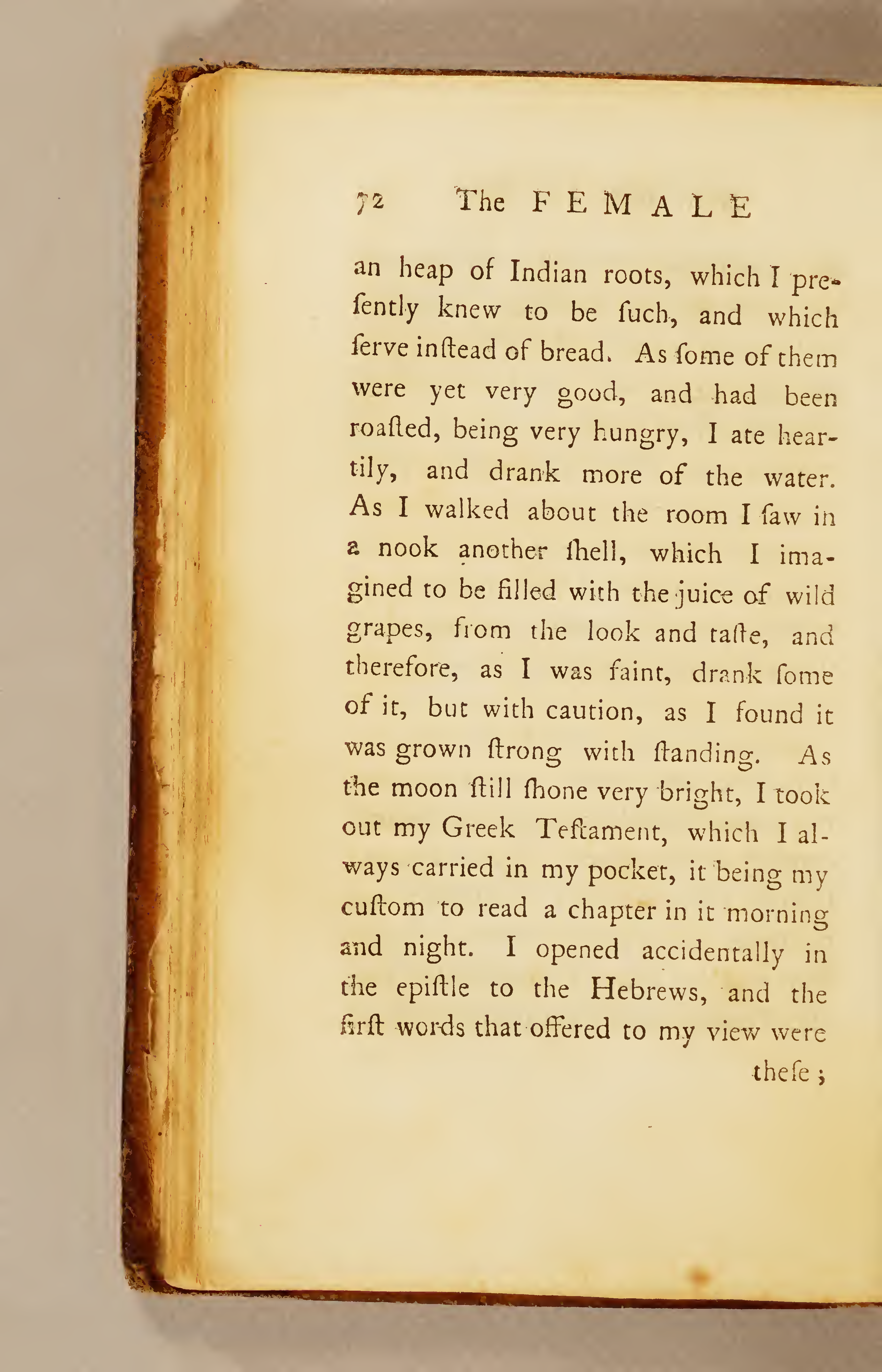
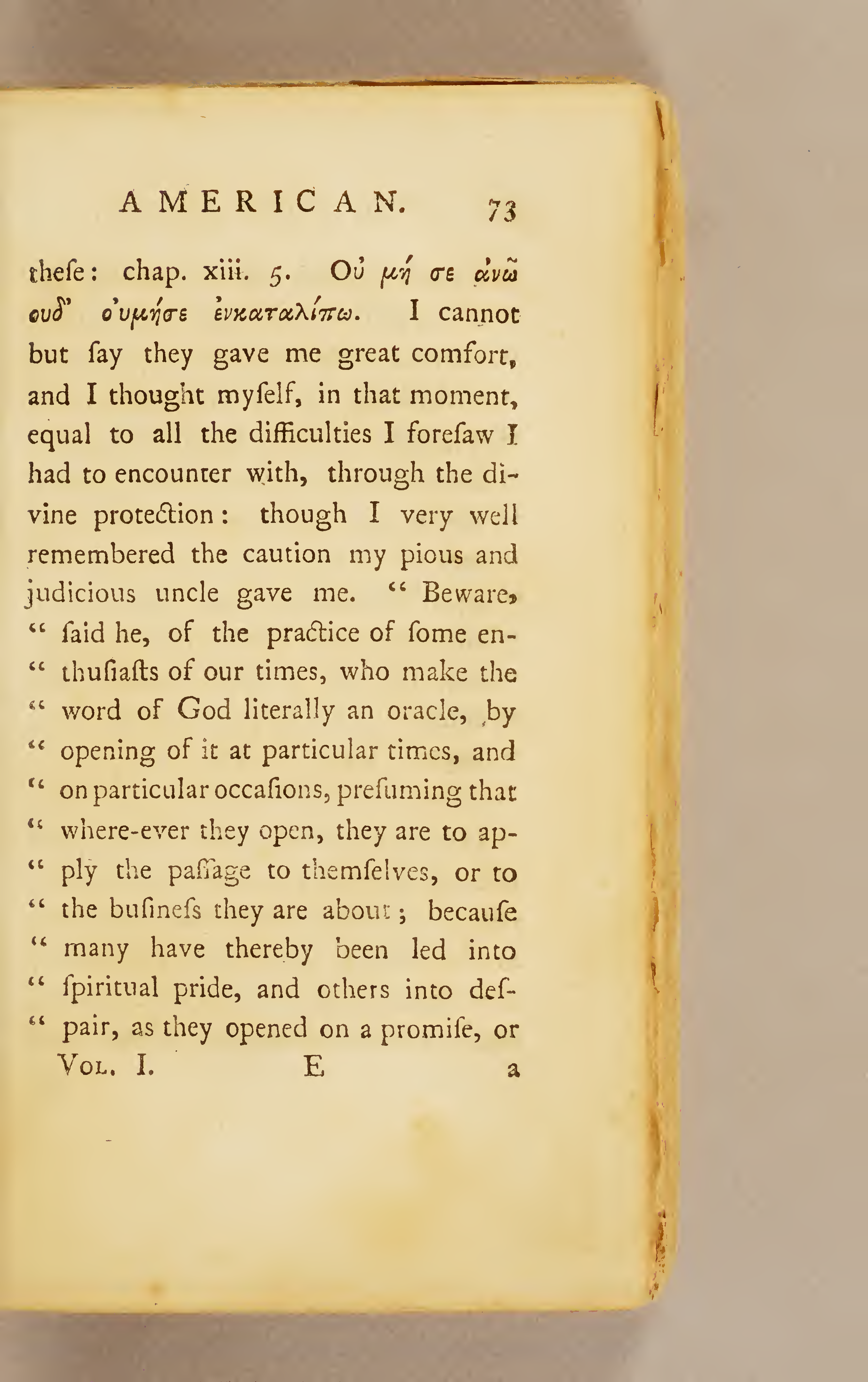
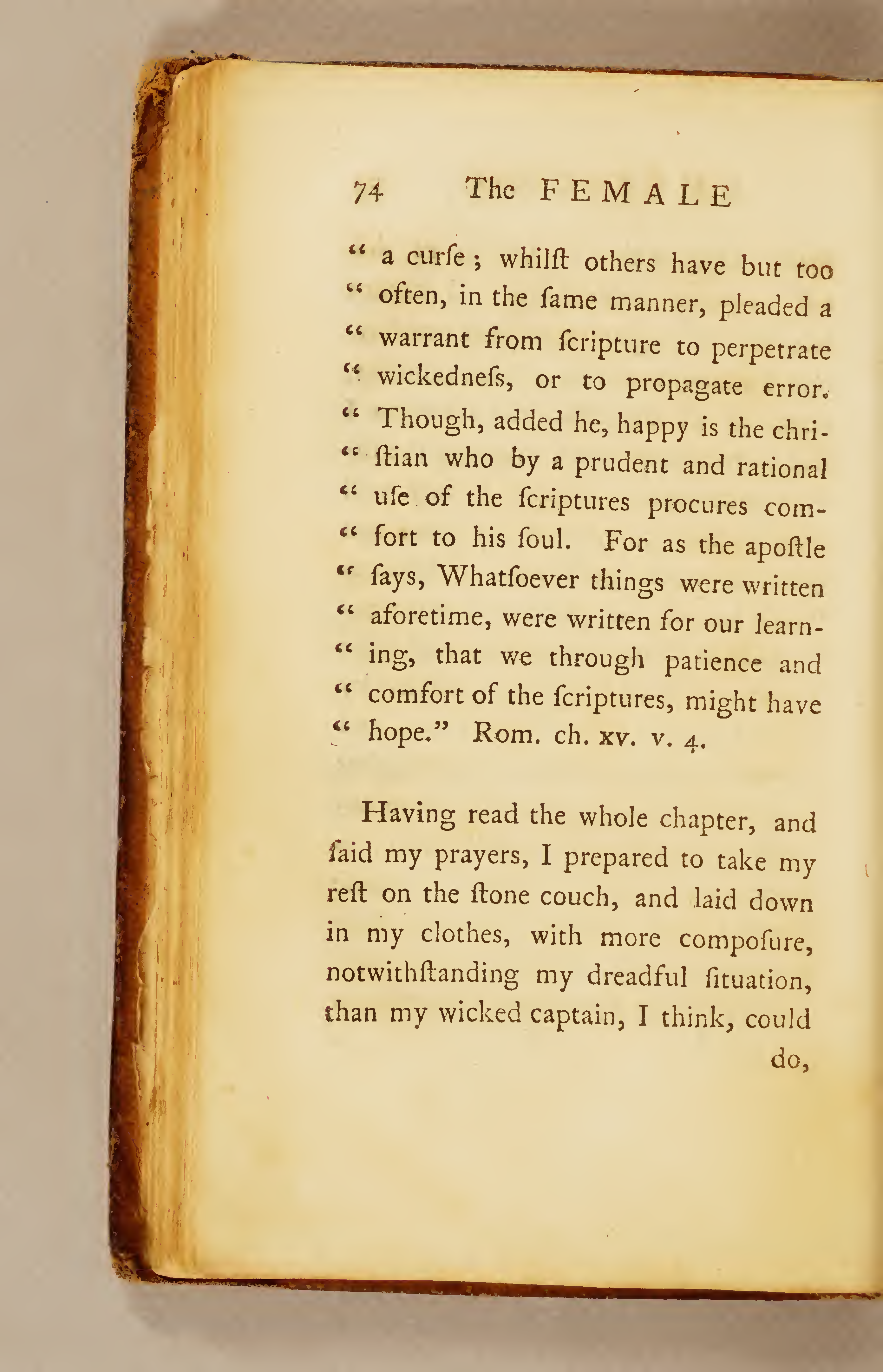
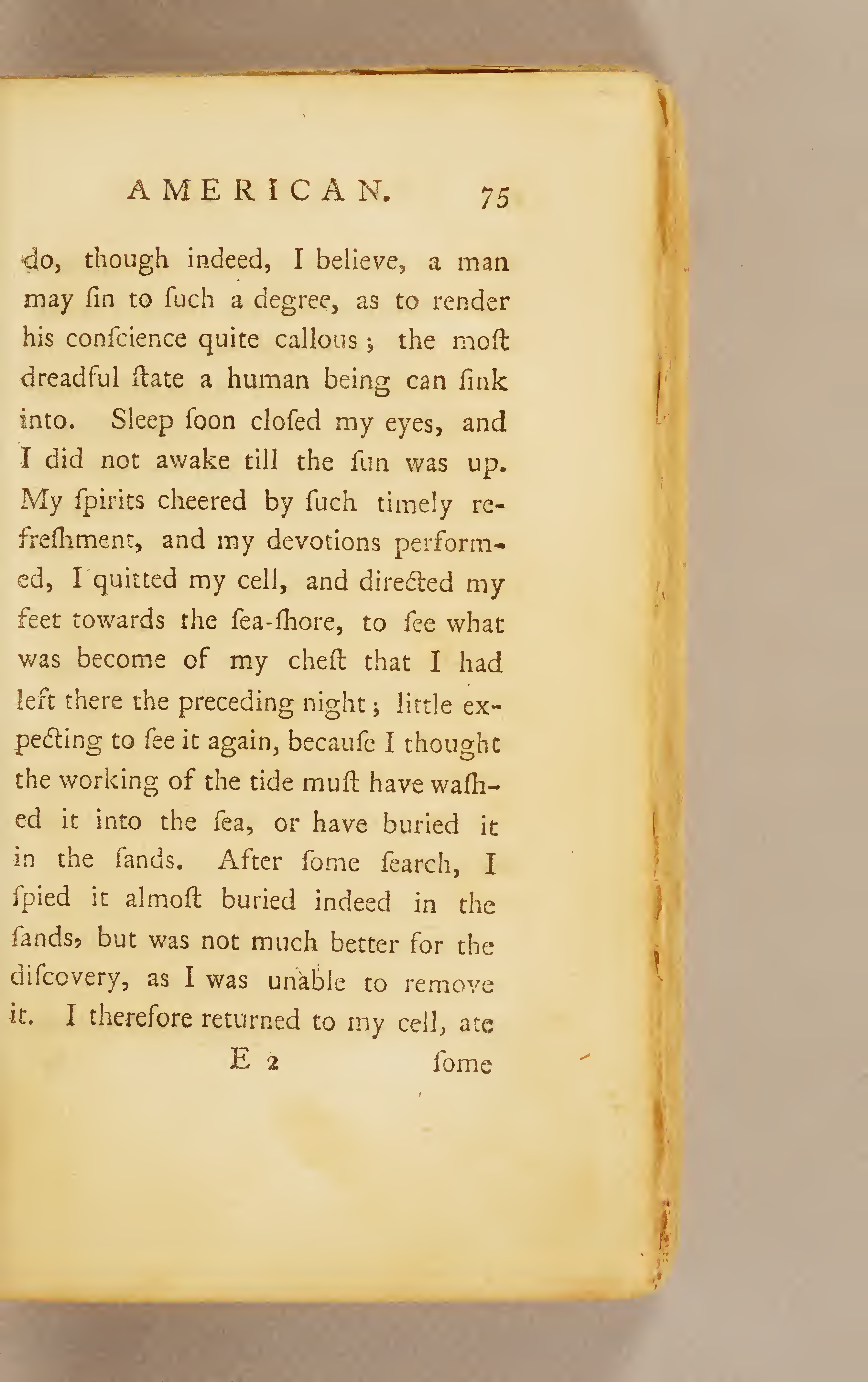
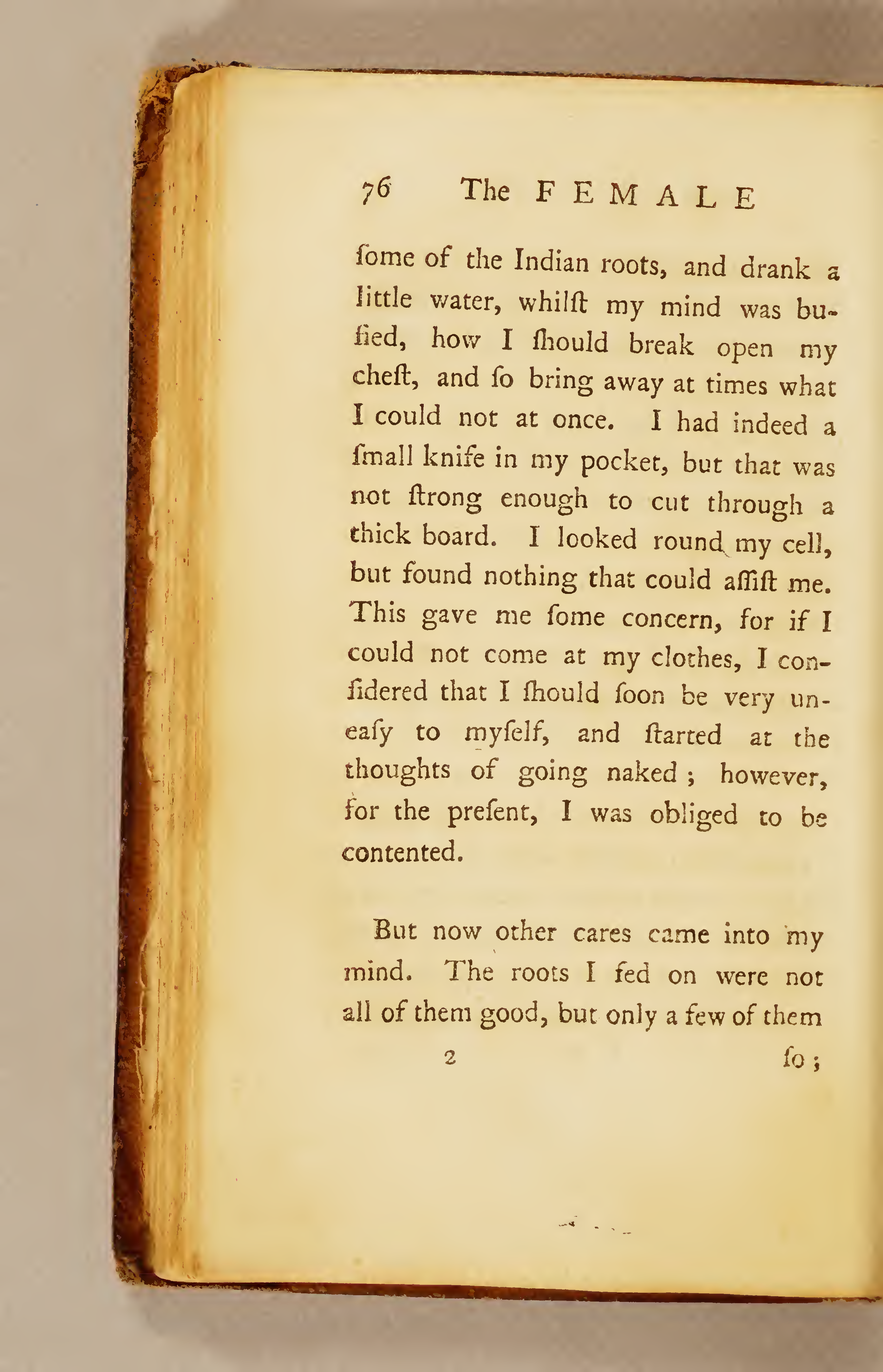
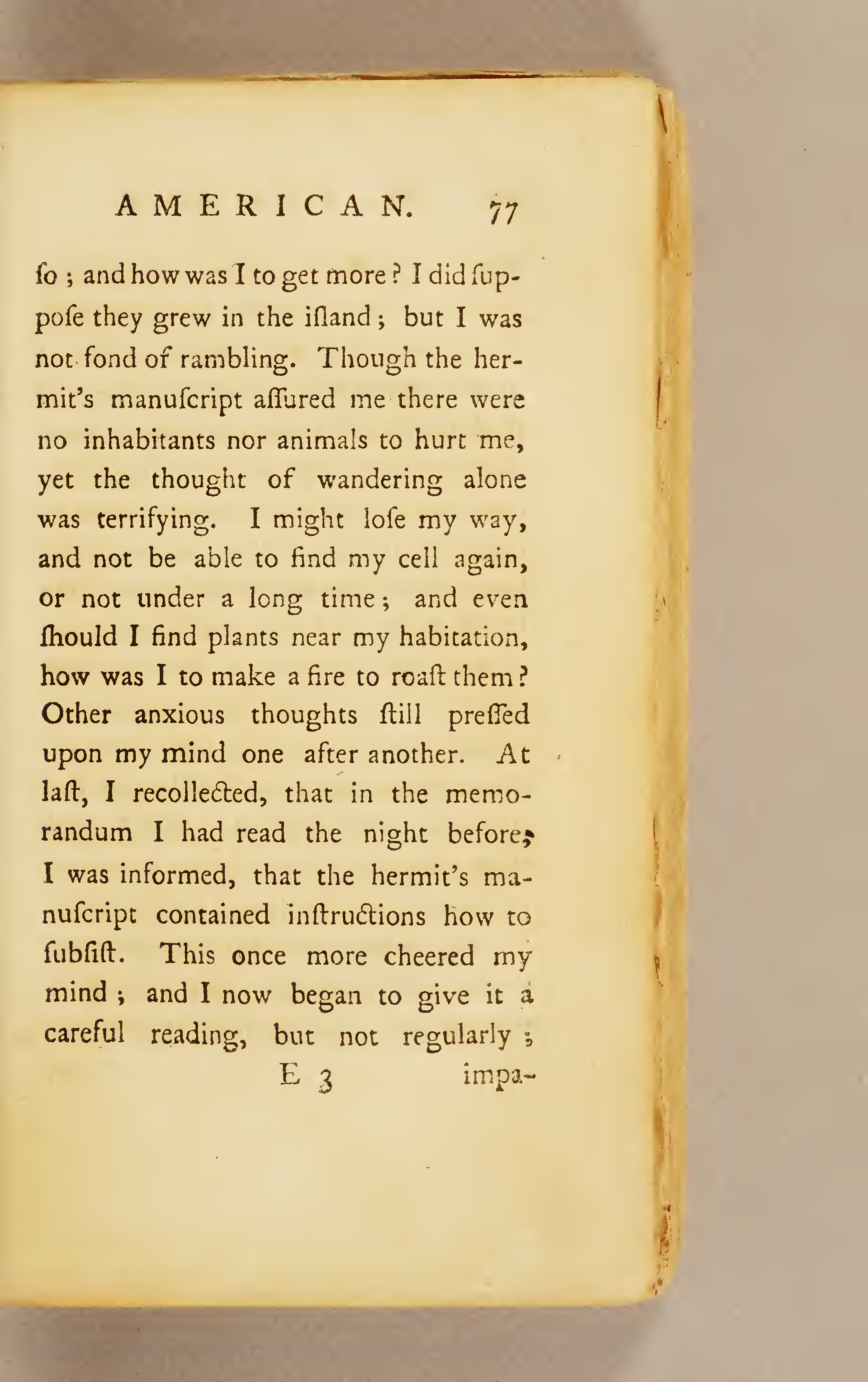
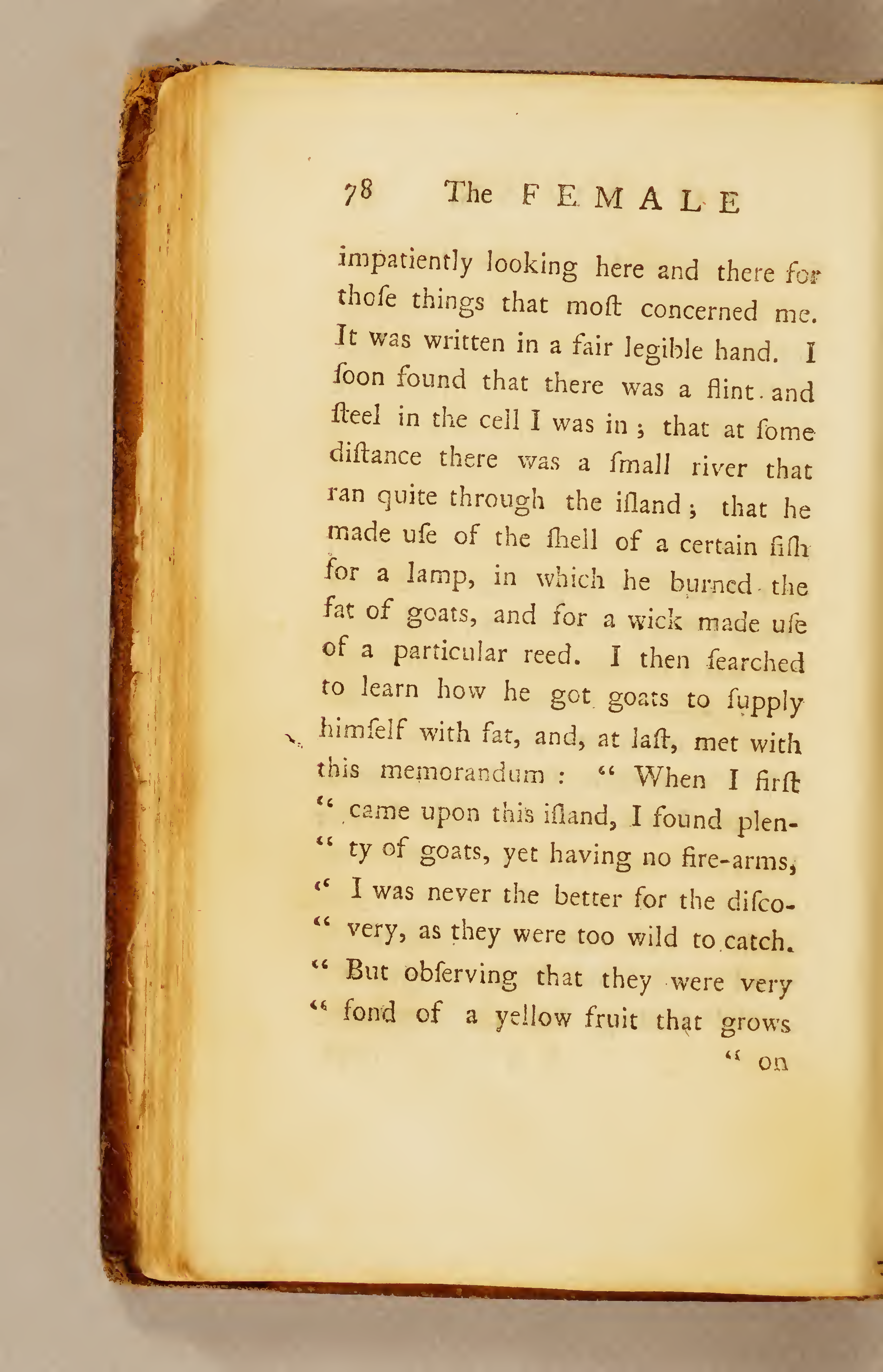
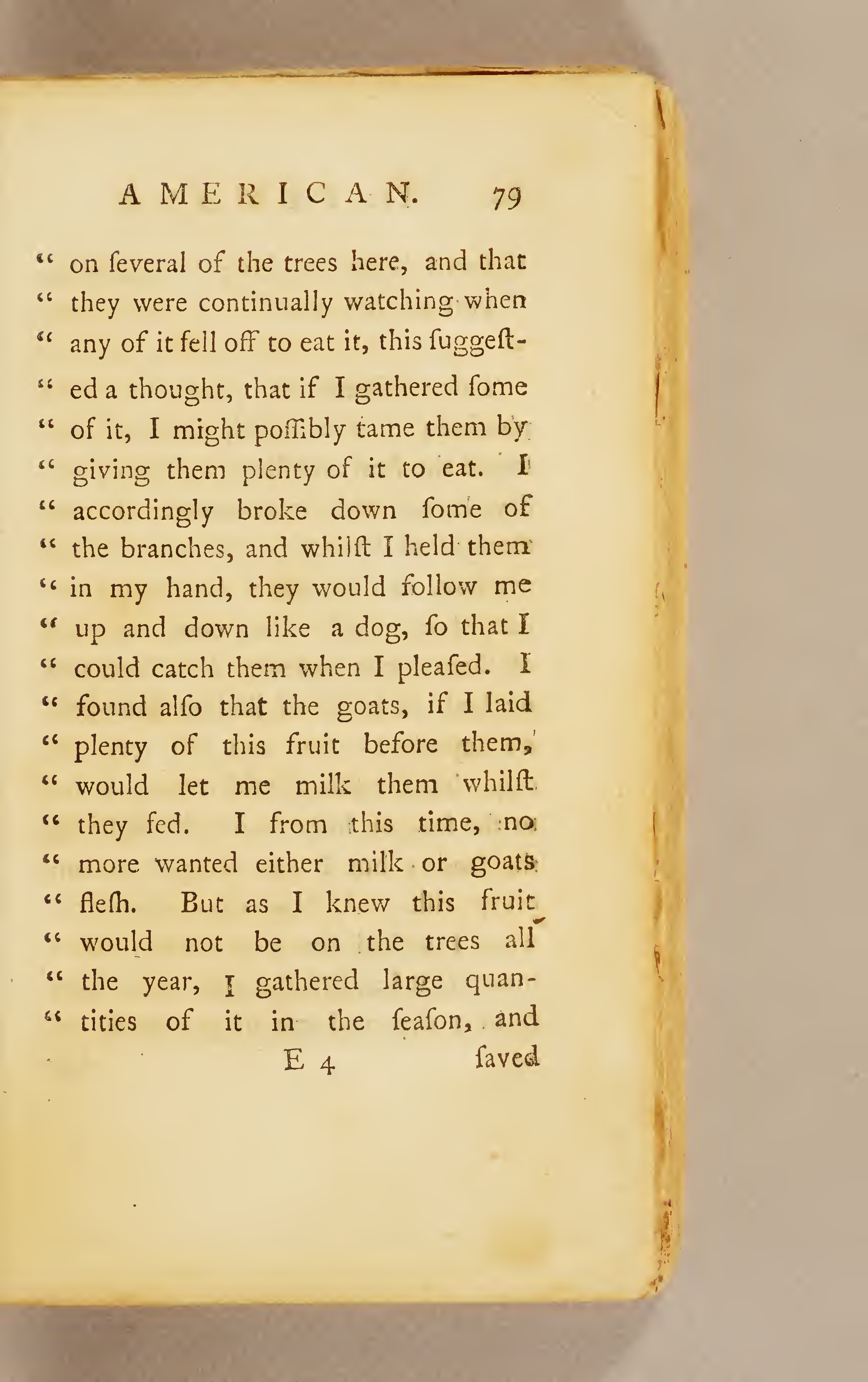
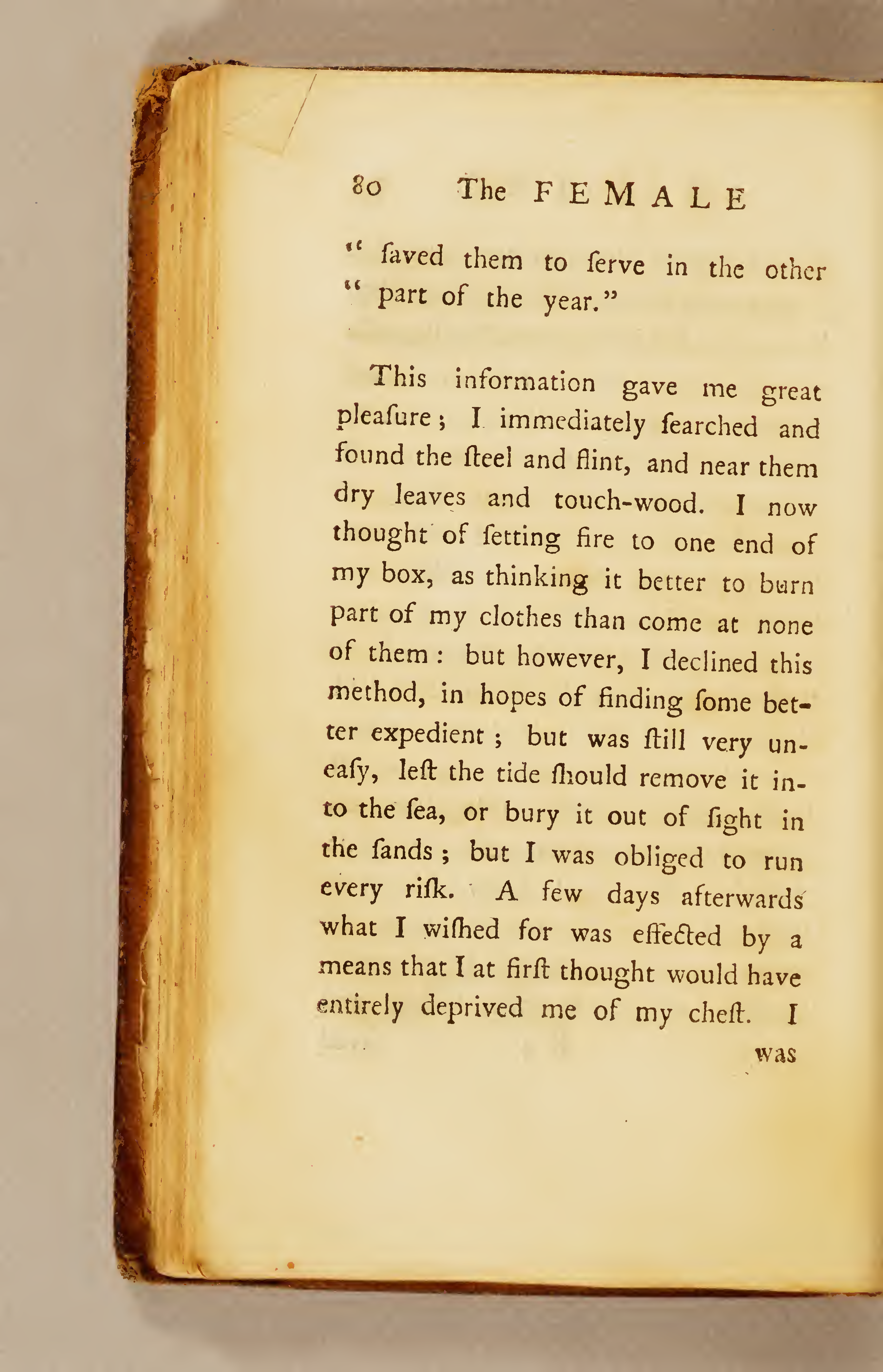
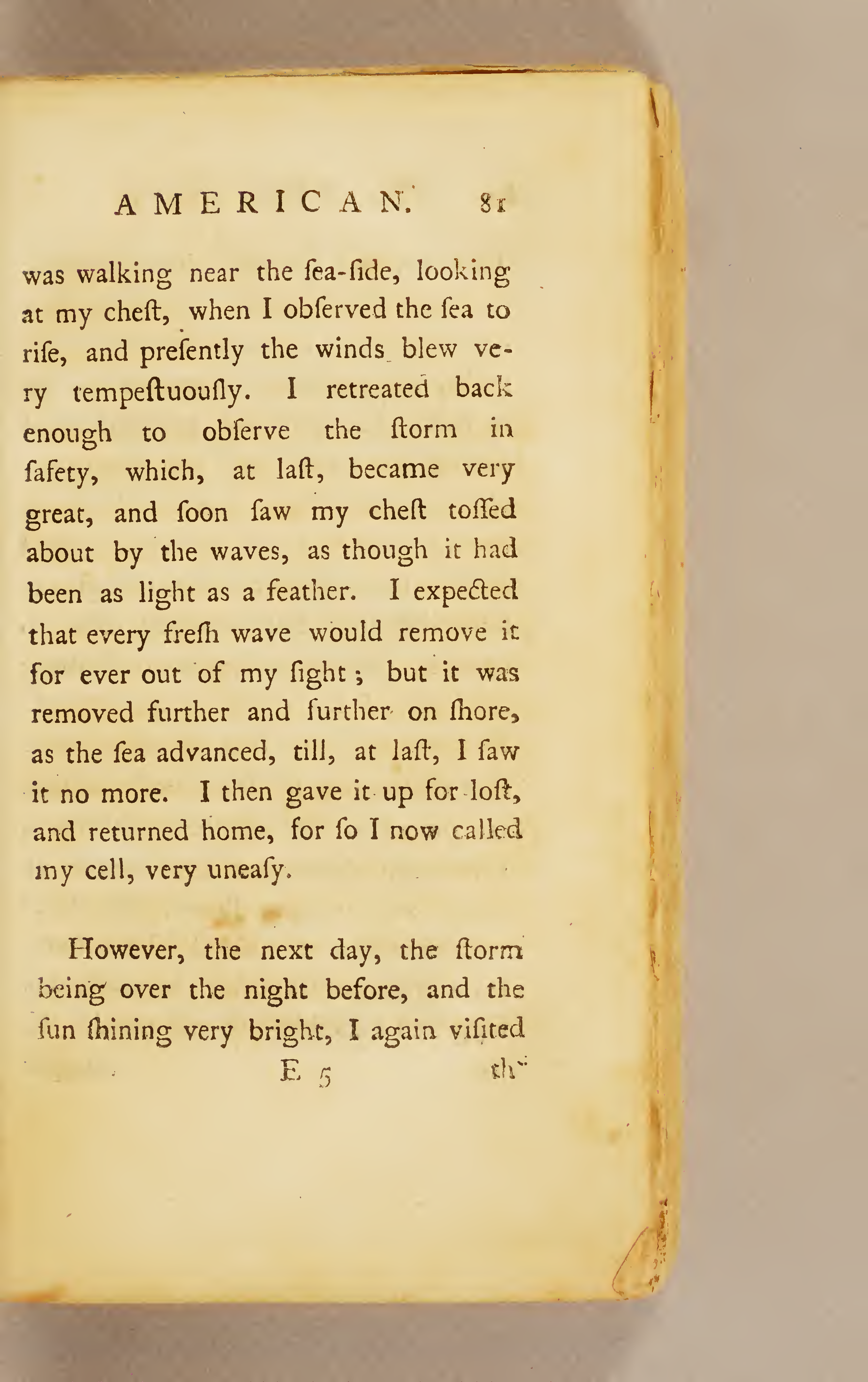
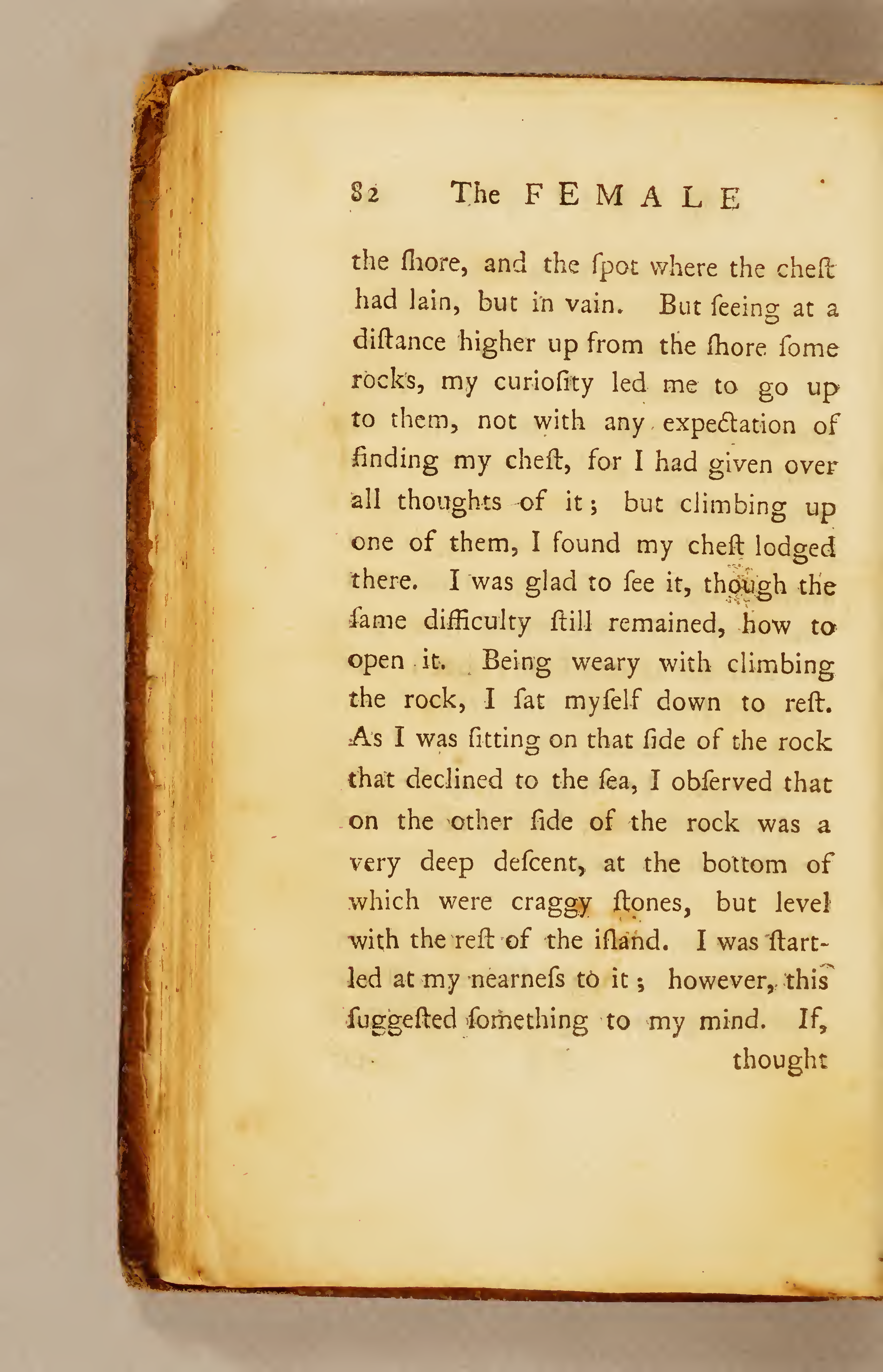
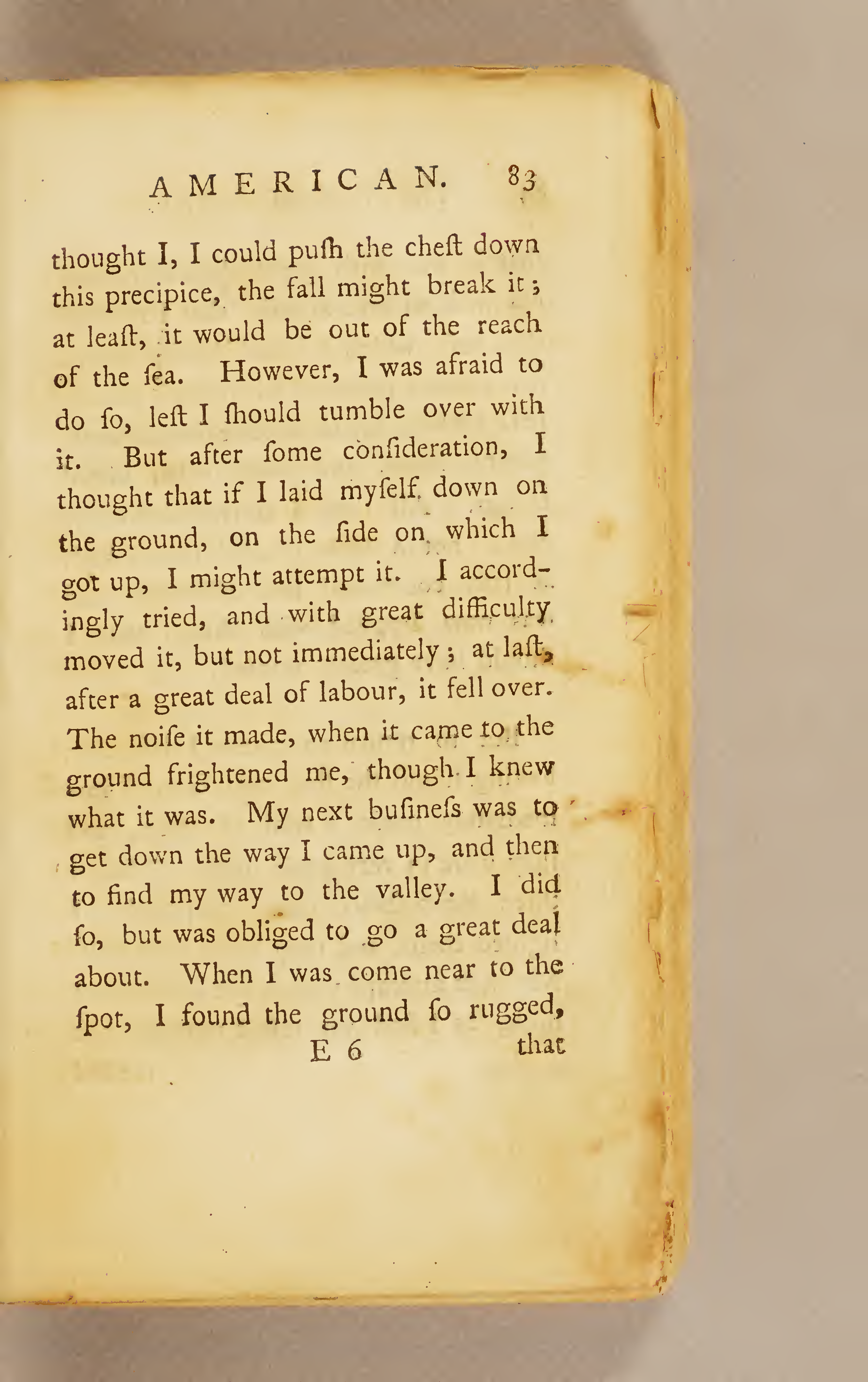
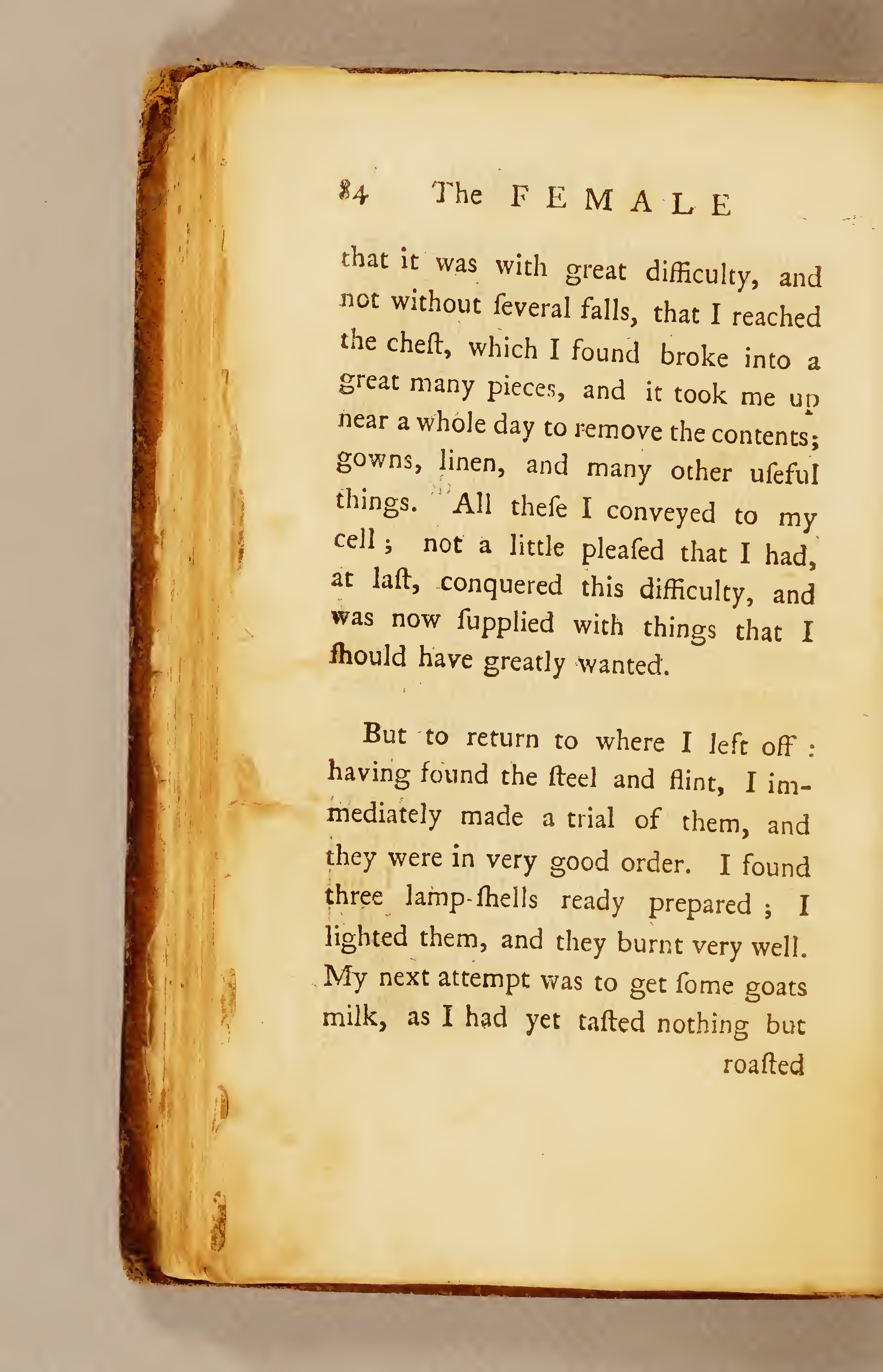
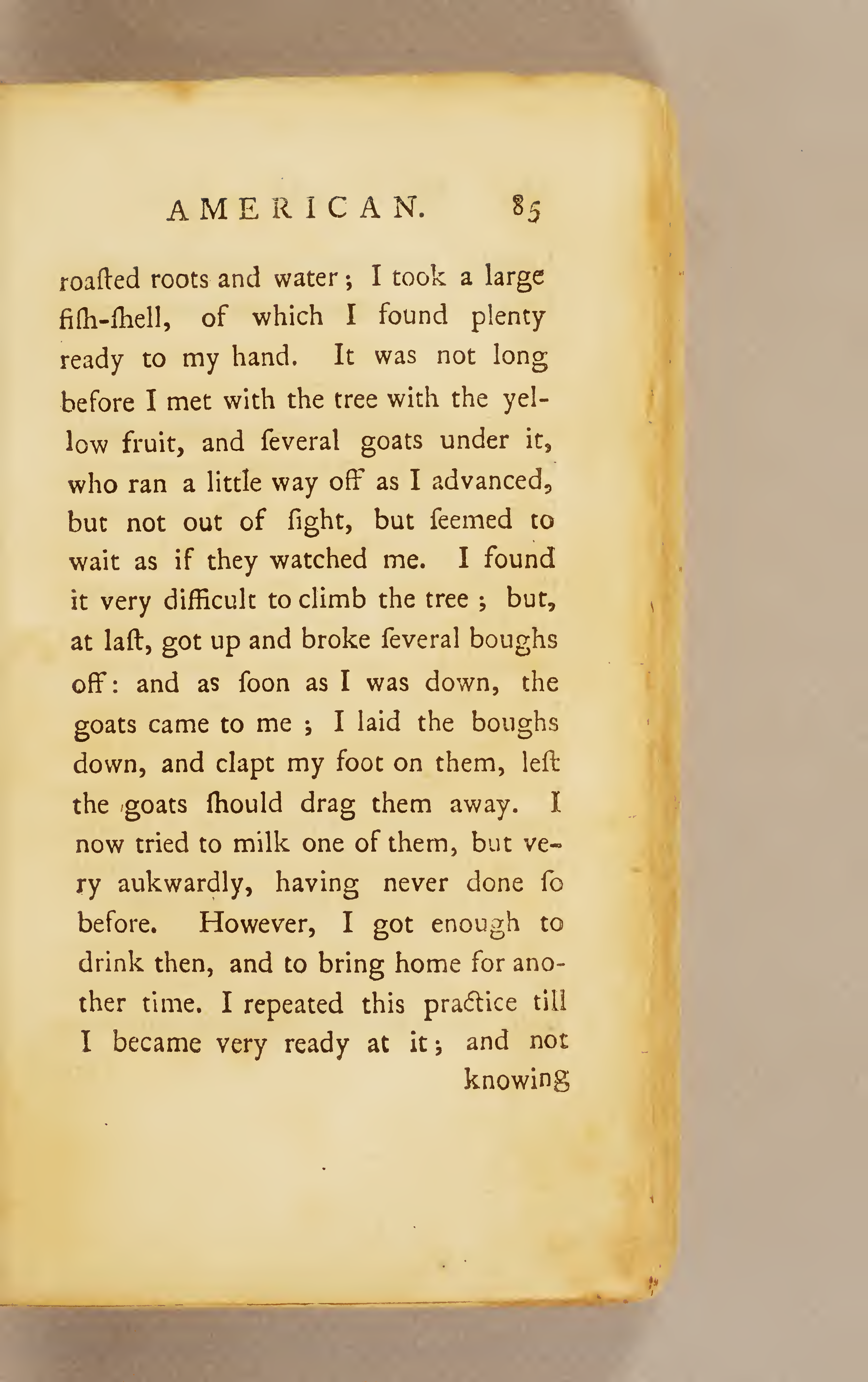
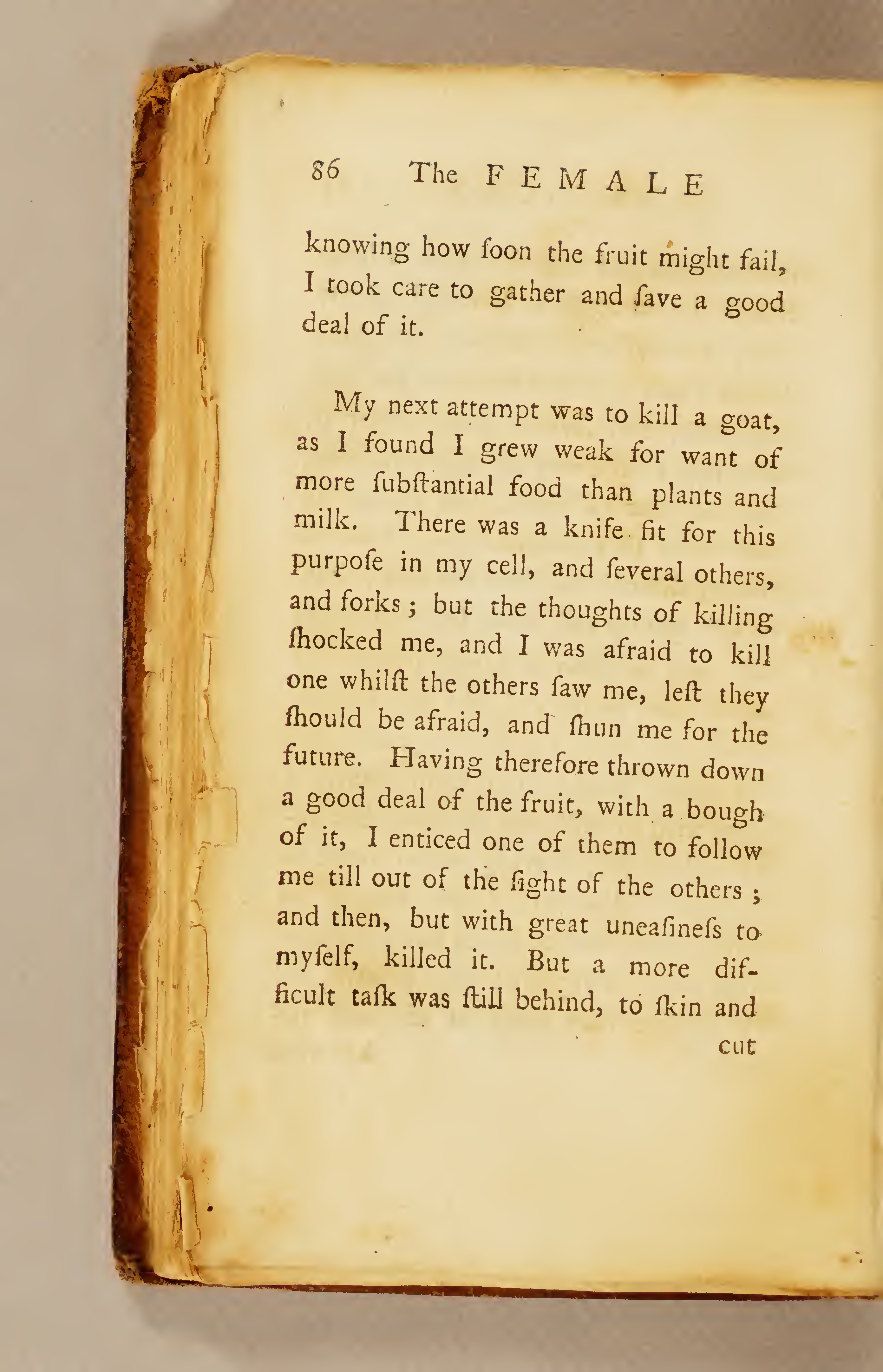
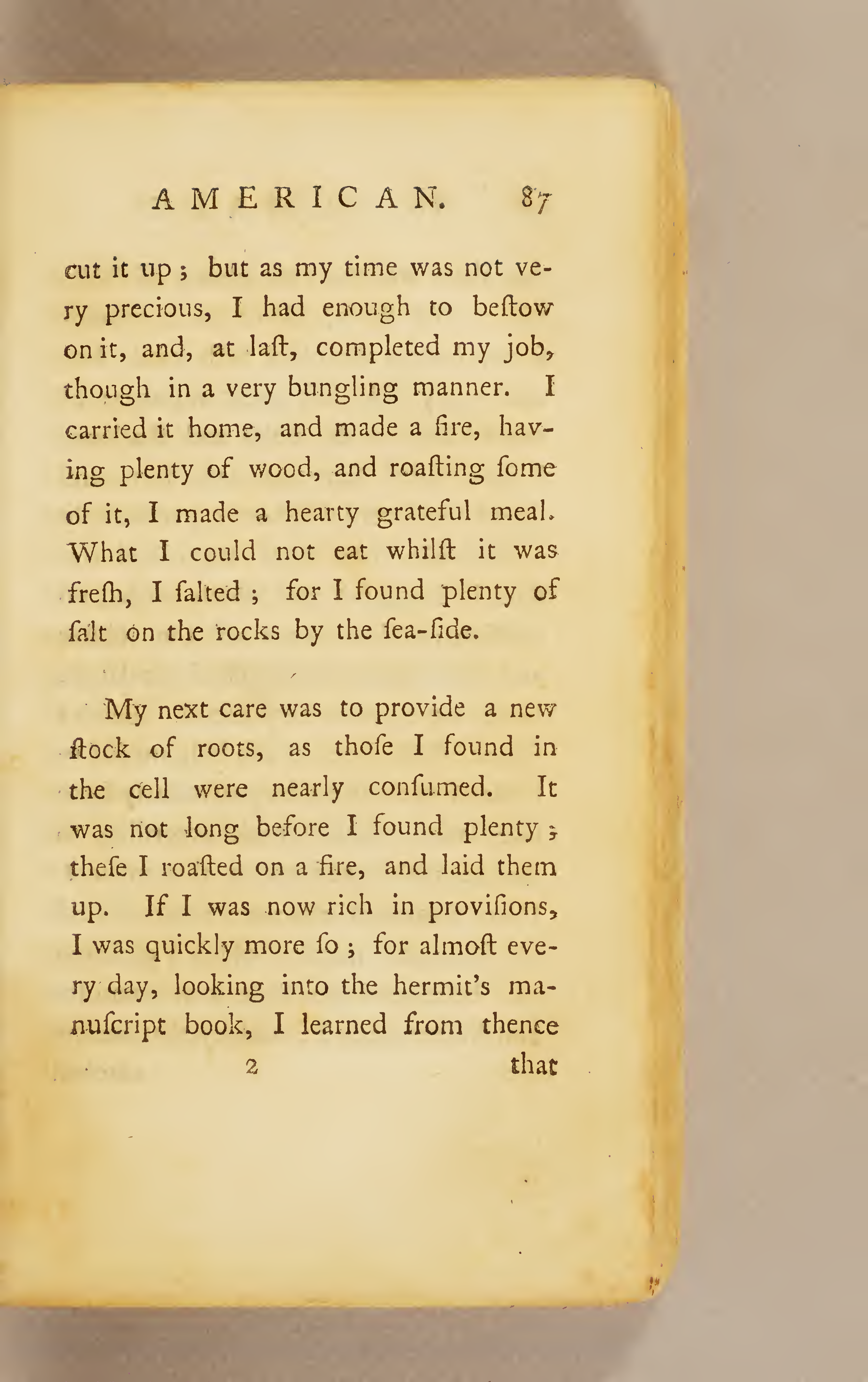
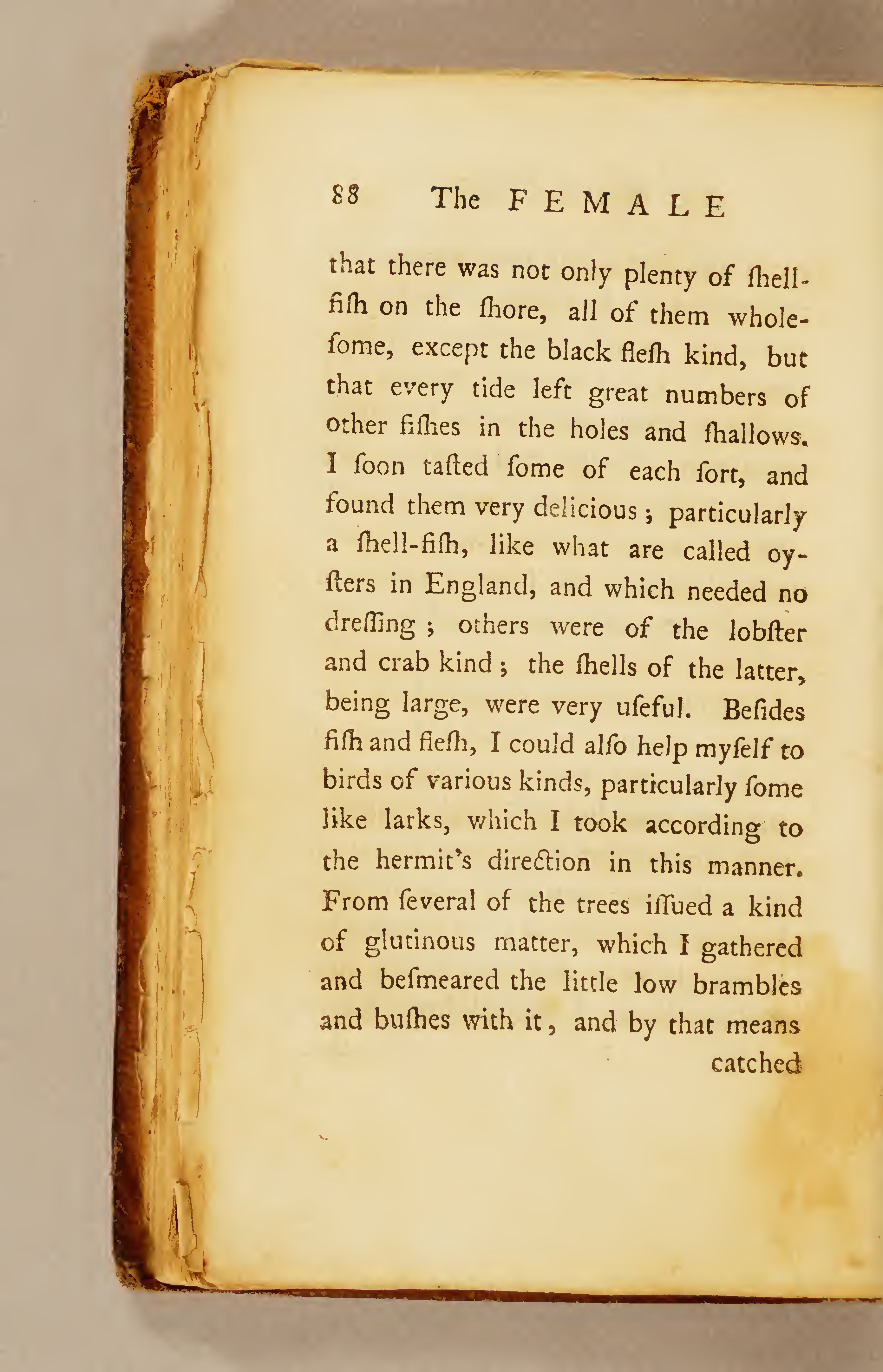
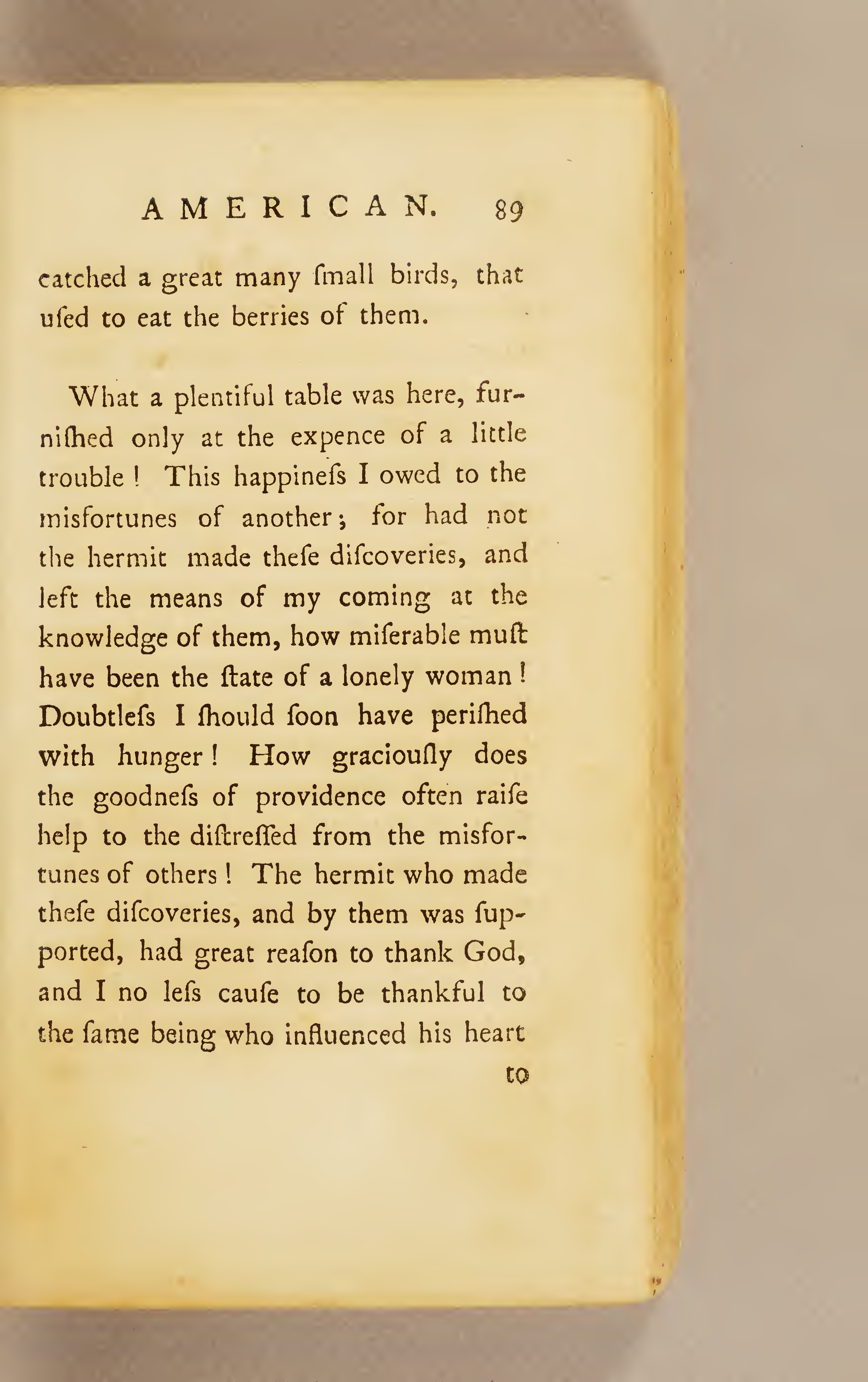

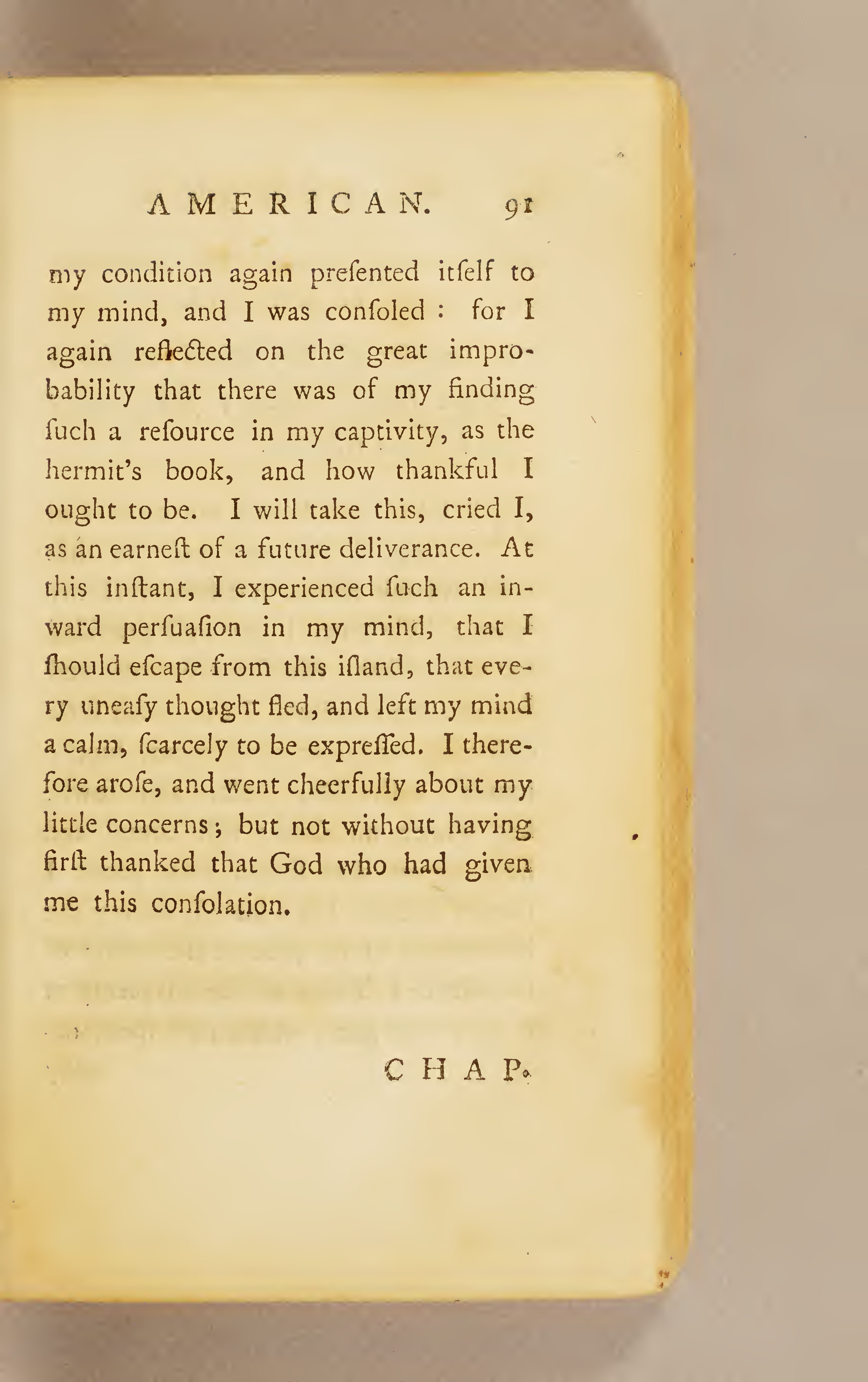
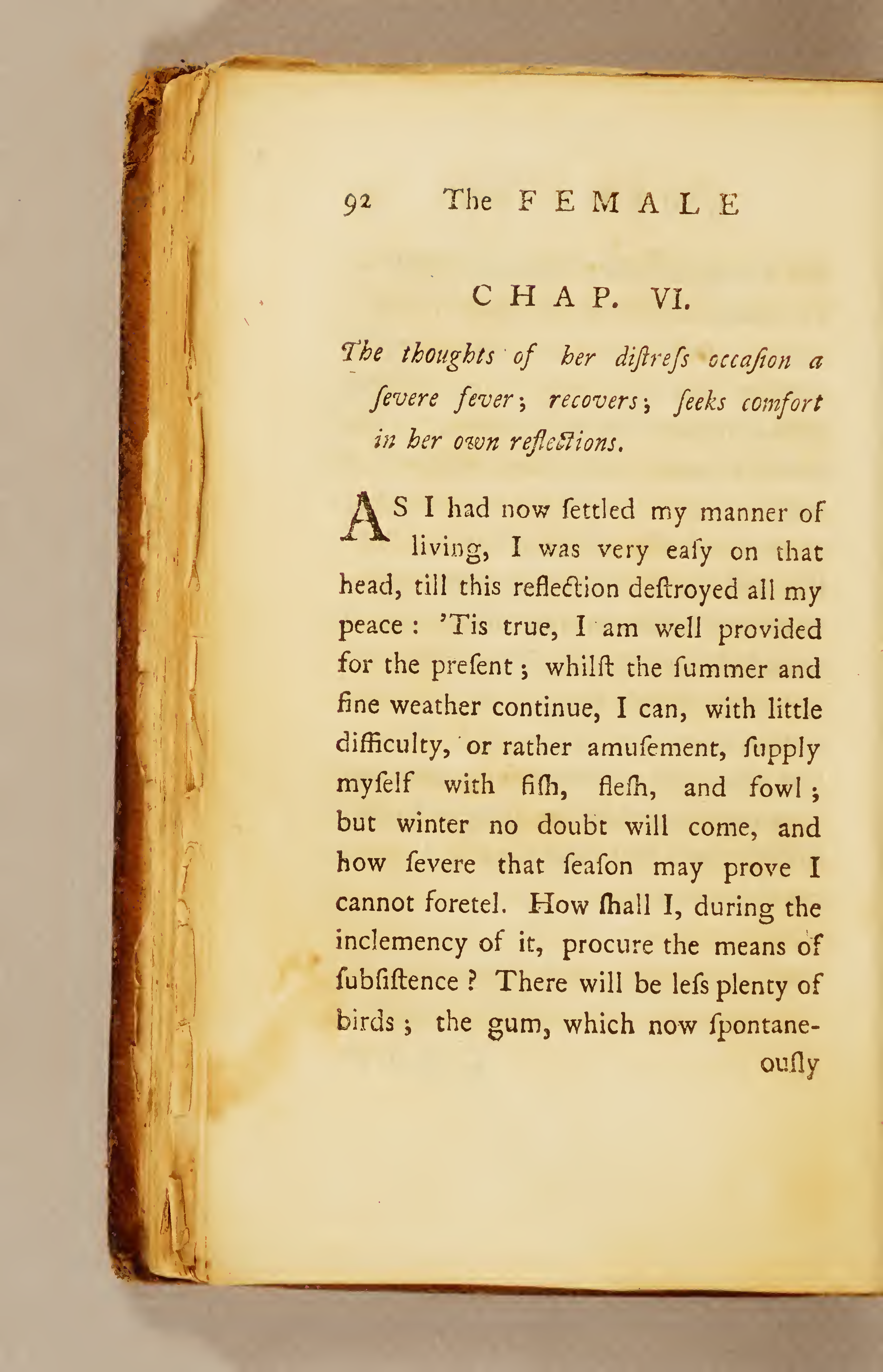
![Page 93 [page breaks after 'spontane-']](https://anthologyassetsdev.lib.virginia.edu/winkfield-female-american/pageImages/093.png)
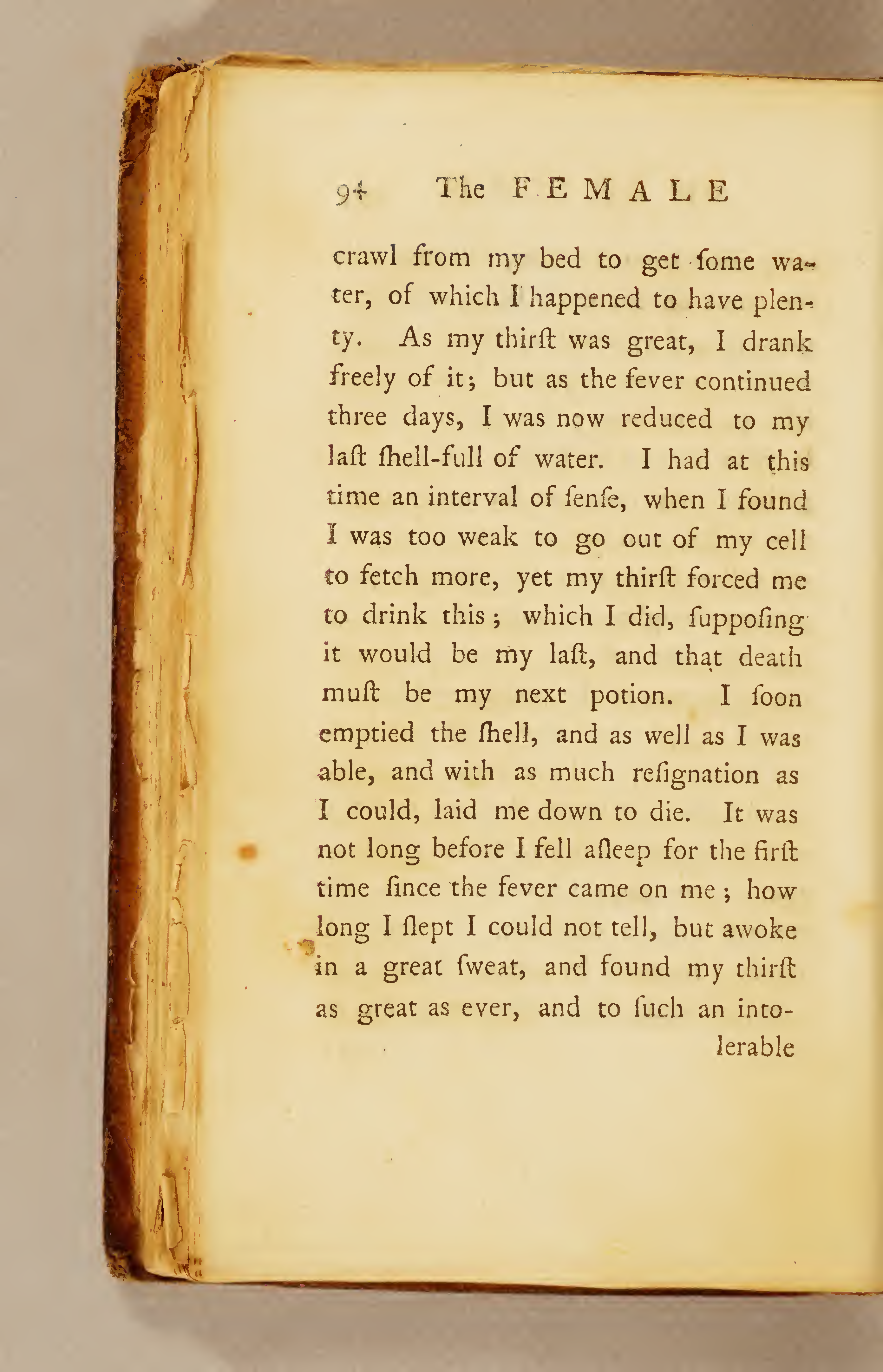
![Page 95 [page breaks after 'into-']](https://anthologyassetsdev.lib.virginia.edu/winkfield-female-american/pageImages/095.png)
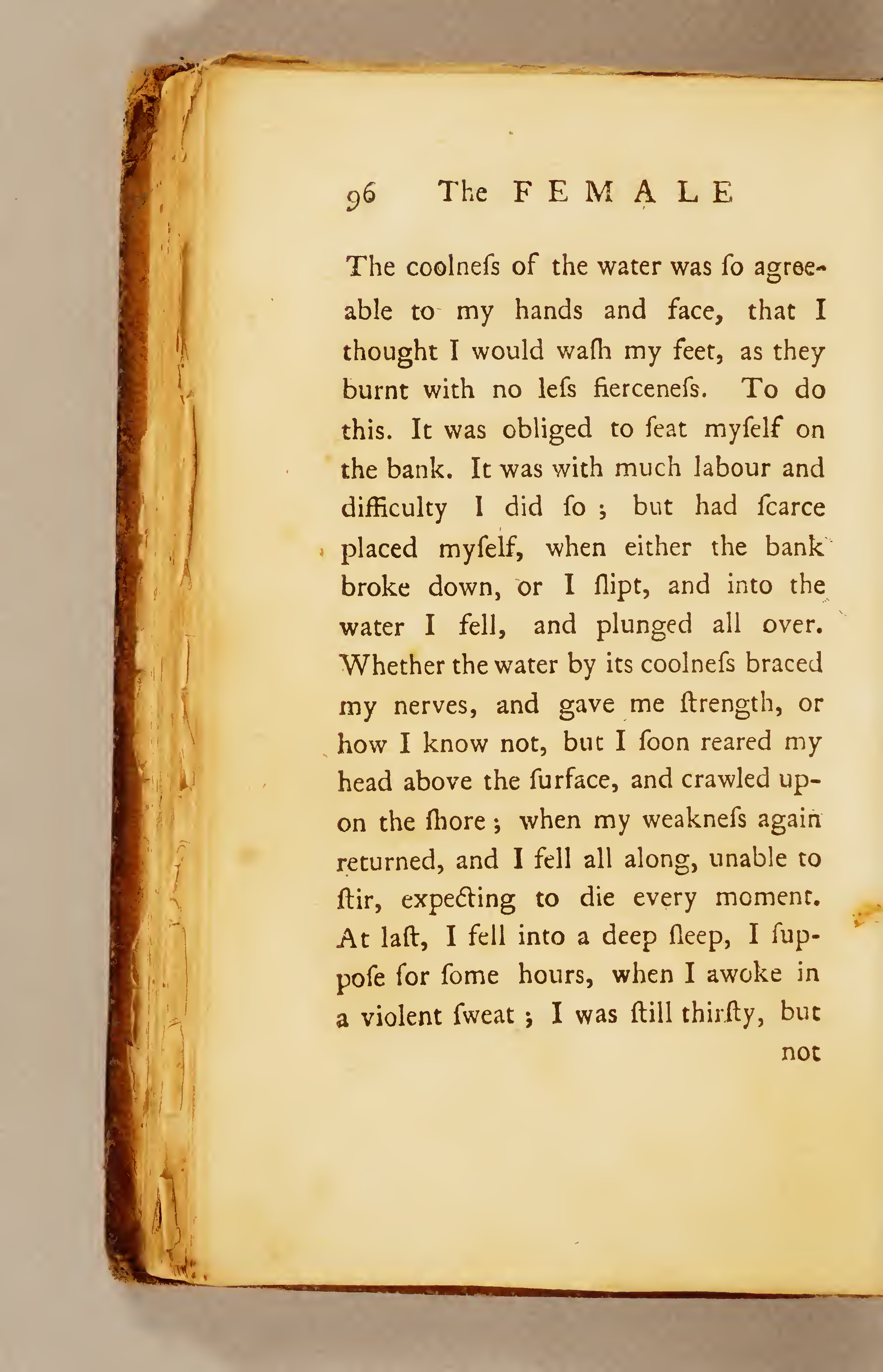
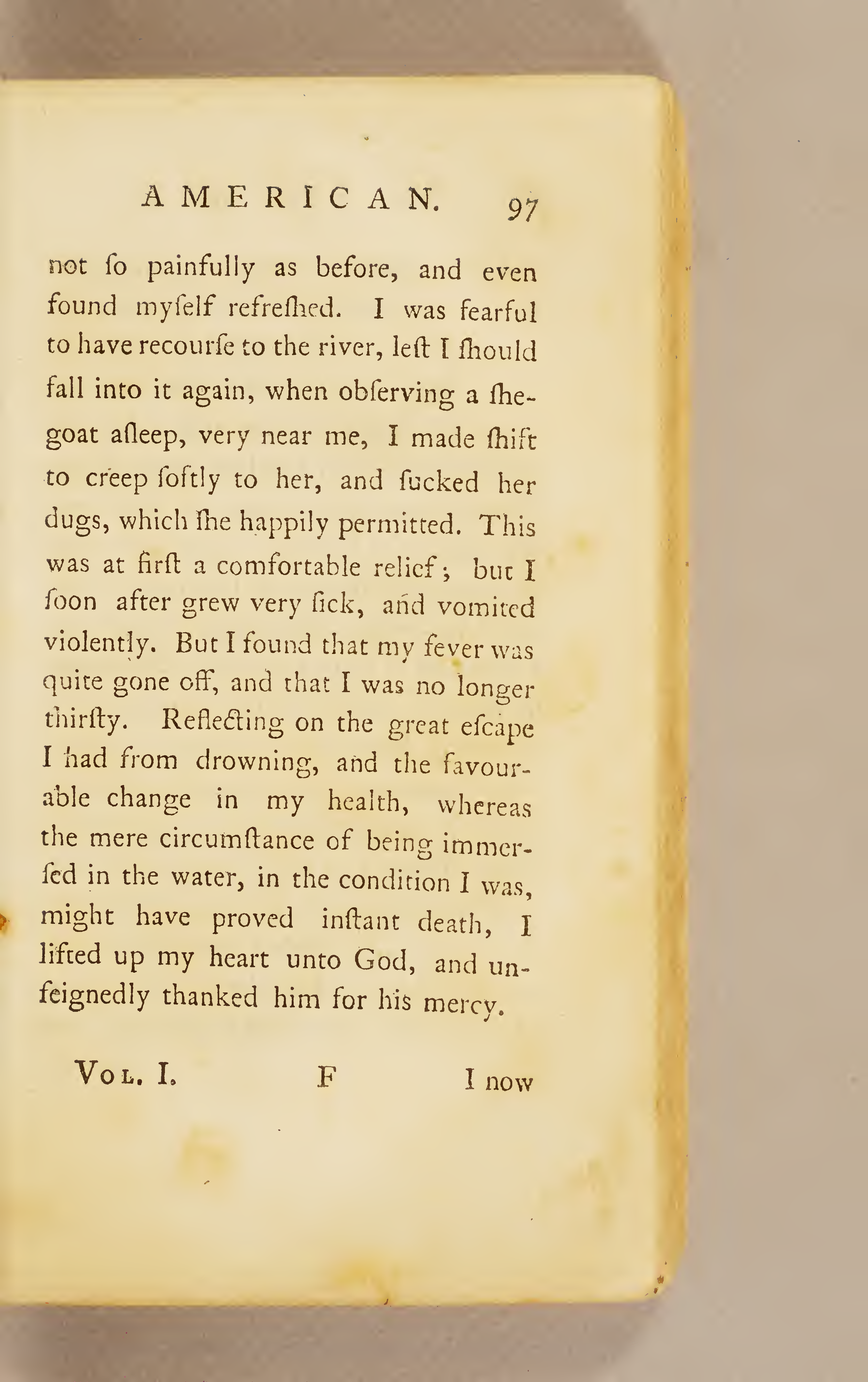
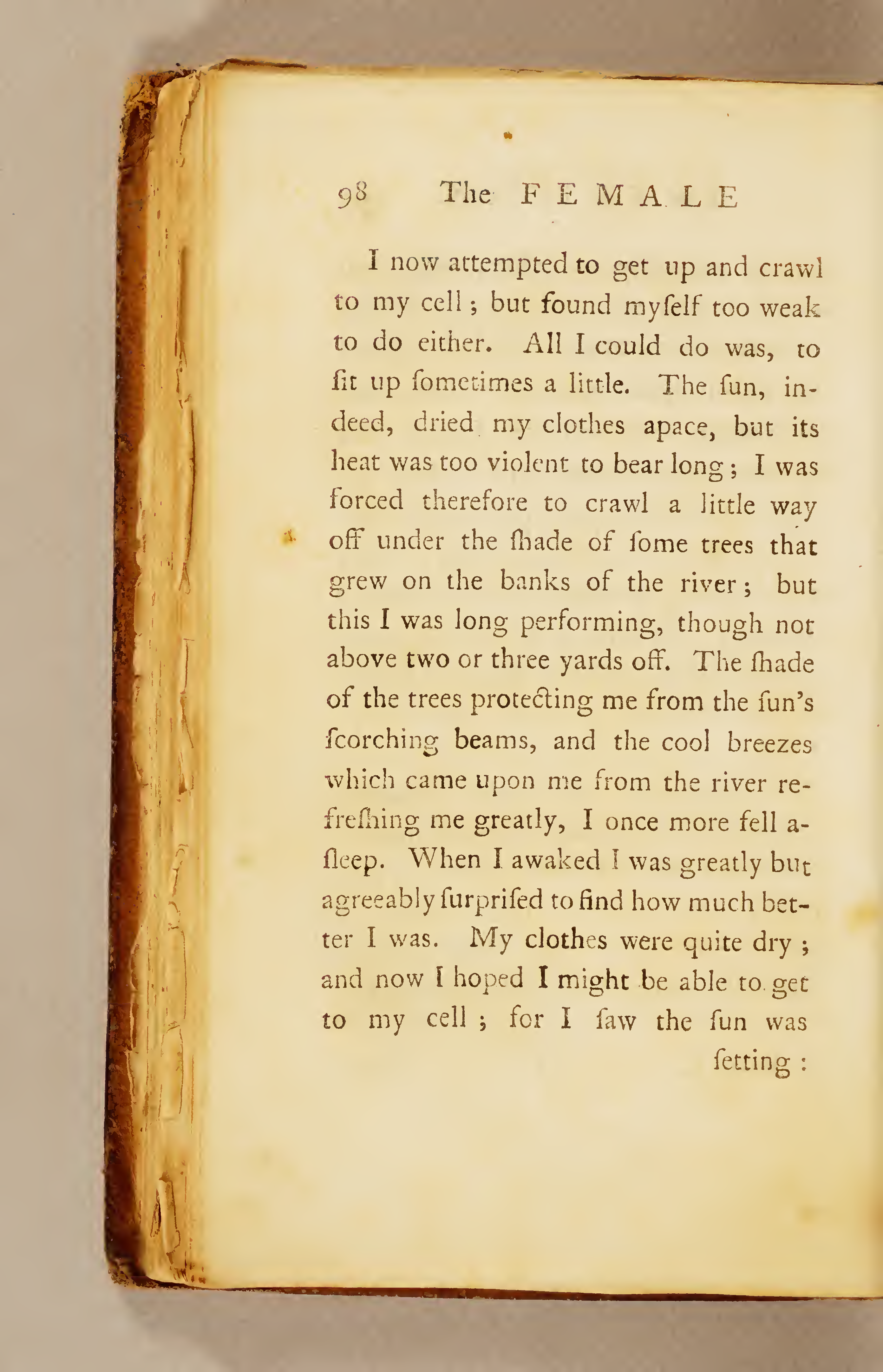
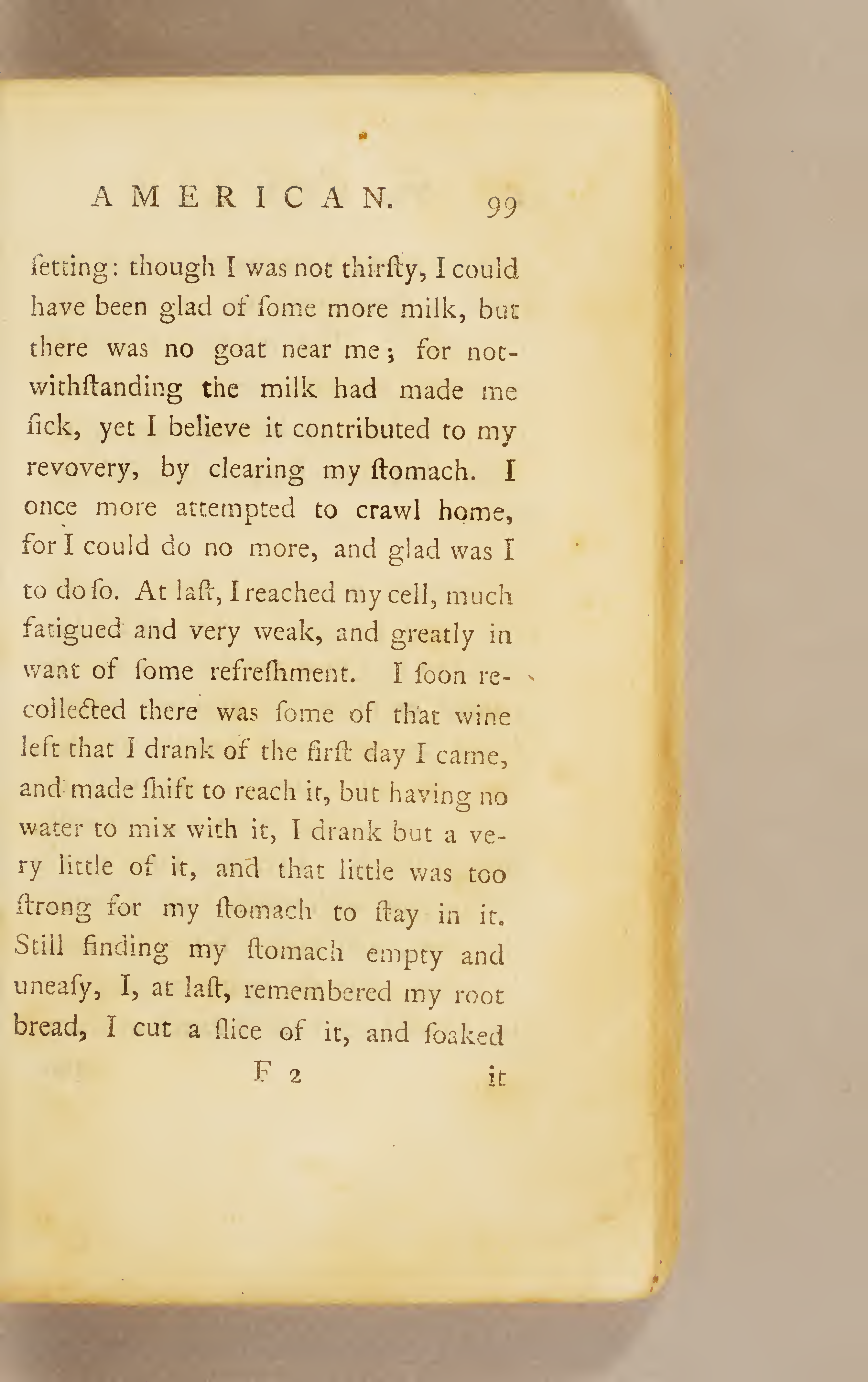









![Page 109 [page breaks after 'war-']](https://anthologyassetsdev.lib.virginia.edu/winkfield-female-american/pageImages/109.png)









![Page 119 [page breaks after 'sup-']](https://anthologyassetsdev.lib.virginia.edu/winkfield-female-american/pageImages/119.png)


![Page 122 [page breaks after 've-']](https://anthologyassetsdev.lib.virginia.edu/winkfield-female-american/pageImages/122.png)
















![Page 139 [page breaks after 'in-']](https://anthologyassetsdev.lib.virginia.edu/winkfield-female-american/pageImages/139.png)
![Page 140 [page breaks after 'pre-']](https://anthologyassetsdev.lib.virginia.edu/winkfield-female-american/pageImages/140.png)





![Page 146 [page breaks after 'ex-']](https://anthologyassetsdev.lib.virginia.edu/winkfield-female-american/pageImages/146.png)



![Page 150 [page breaks after 'reso-']](https://anthologyassetsdev.lib.virginia.edu/winkfield-female-american/pageImages/150.png)
![Page 151 [word 'the' repeats in original]](https://anthologyassetsdev.lib.virginia.edu/winkfield-female-american/pageImages/151.png)





















![Page 173 [page breaks after 'dis-']](https://anthologyassetsdev.lib.virginia.edu/winkfield-female-american/pageImages/173.png)






![Page 180 [page breaks after 'expres-']](https://anthologyassetsdev.lib.virginia.edu/winkfield-female-american/pageImages/180.png)





![Page 186 [page breaks after 'de-']](https://anthologyassetsdev.lib.virginia.edu/winkfield-female-american/pageImages/186.png)
![Page 187 [page breaks after 'suc-']](https://anthologyassetsdev.lib.virginia.edu/winkfield-female-american/pageImages/187.png)







